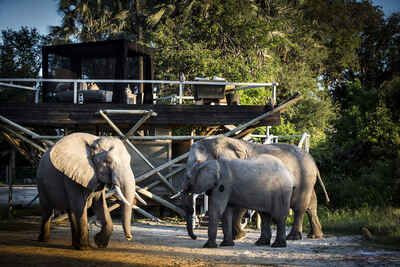About Abu Camp (currently closed)
Located on the edge of a permanent lagoon in a grove of towering hardwood trees, Abu Camp is one of the most ...
... luxurious and expensive camps in Botswana. For many years it was owned and sporadically run by its founder, the charismatic Randall Jay Moore. During this time it gained a reputation as the place to ride African elephants in a pristine wilderness environment, and attracted the world's glitterati.
However, we’re very pleased to say that as of 31 December 2016, Abu stopped all riding of the Abu Herd and in mid 2021 they also stopped walking and other close interactions with the Abu herd. Their elephant programme now focuses on elephant conservation, observing them in the wild and getting to know their individual characters on a 4 x 4 game drive.
With just six tented suites, Abu Camp is very exclusive, and offers high levels of service – it really is a cut above most other camps. Opulence and service aside, the camp's major attraction is walking with the resident herd of habituated elephants, a unique experience which, if budget allows, is amazing. Note, however, that aside from the elephants, wildlife attractions in the Abu reserve don't match those in the better areas of the Okavango Delta.
Our view
With just six tented suites, Abu Camp is very exclusive, and offers high levels of service – it really is a cut above most other camps. Opulence and service aside, the camp's major attraction is walking with the resident herd of habituated elephants, a unique experience which, if budget allows, is amazing. Note, however, that aside from the elephants, wildlife attractions in the Abu reserve don't match those in the better areas of the Okavango Delta.
Accommodation
Six Tented Suites
Children
Best for 12+
Open
All year
Activities

4WD Safari

Birdwatching

Boat trip

Elephant encounter

Fishing

Guided walking safari

Helicopter

Mokoro

Night drive

Private activities
Traveller reviews of Abu Camp
2 real, un-edited reviews from Expert Africa's travellers.
Arrived 11 Jul 2016, 1 nights
"Wonderful experience"
Overall rating: Excellent
Arrived 25 Oct 2011, 3 nights
"A diasppointing experience."
Overall rating: Poor
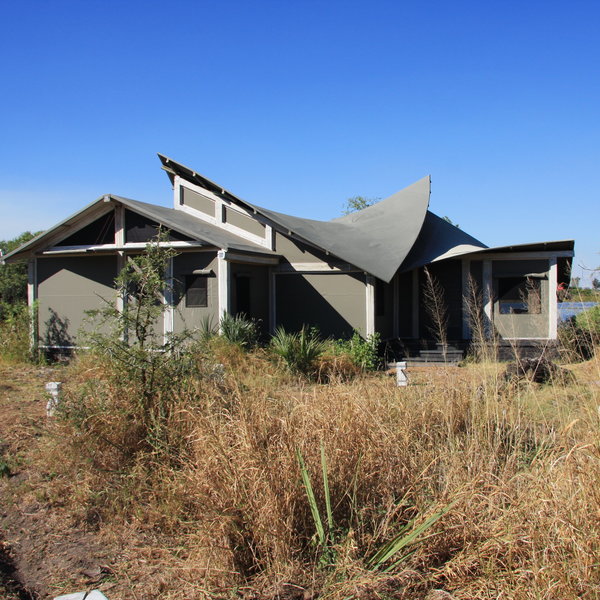
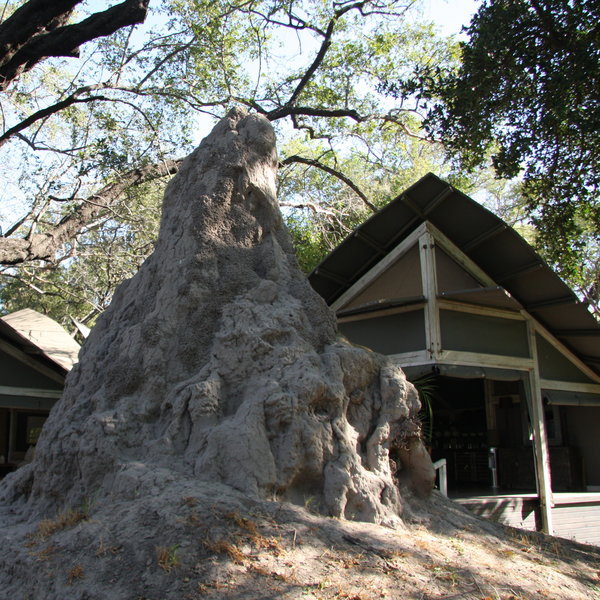
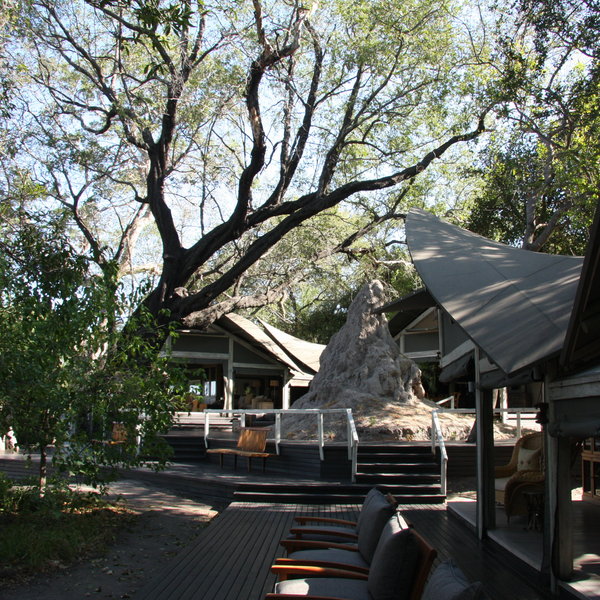
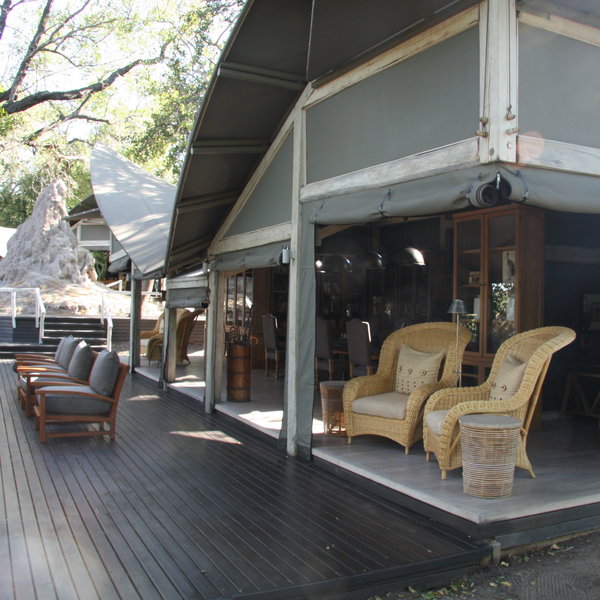
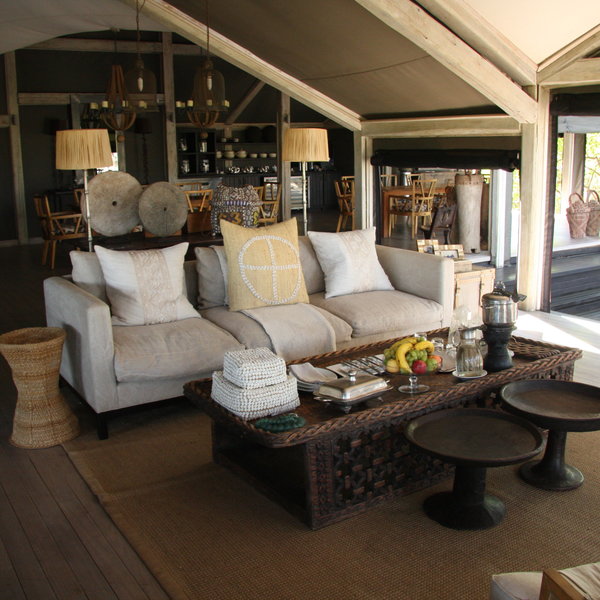
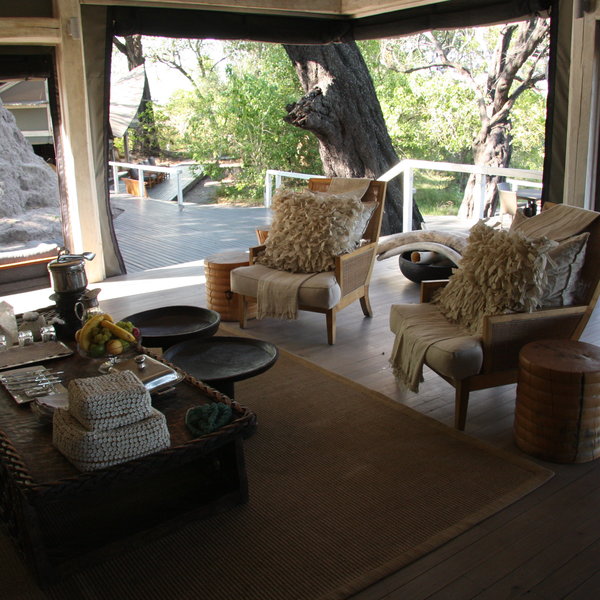
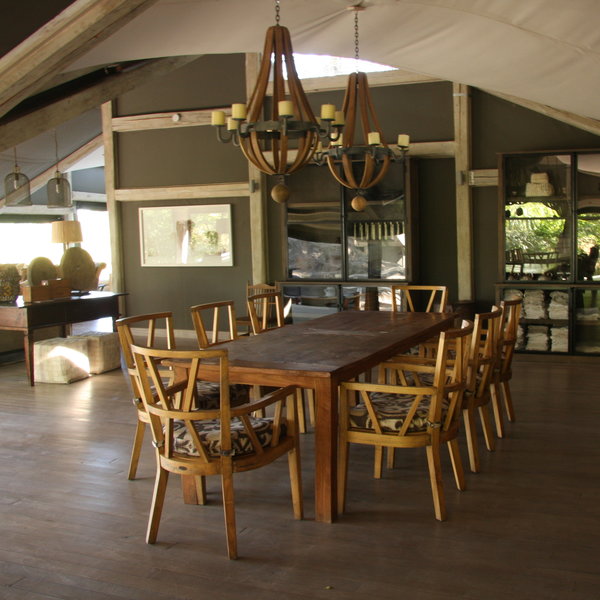
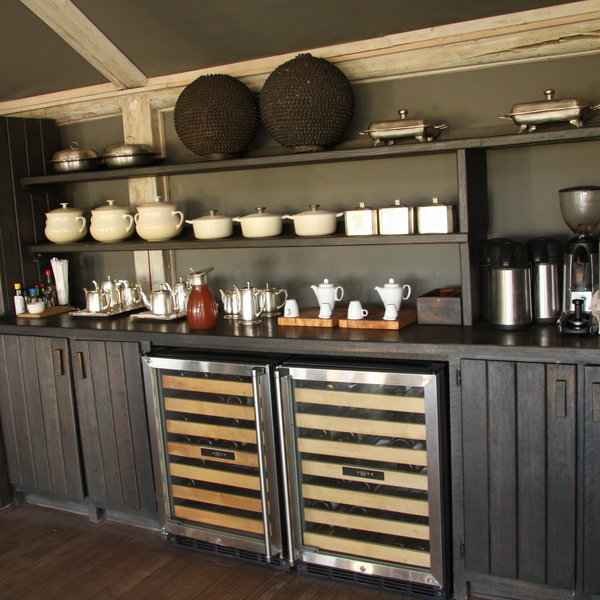
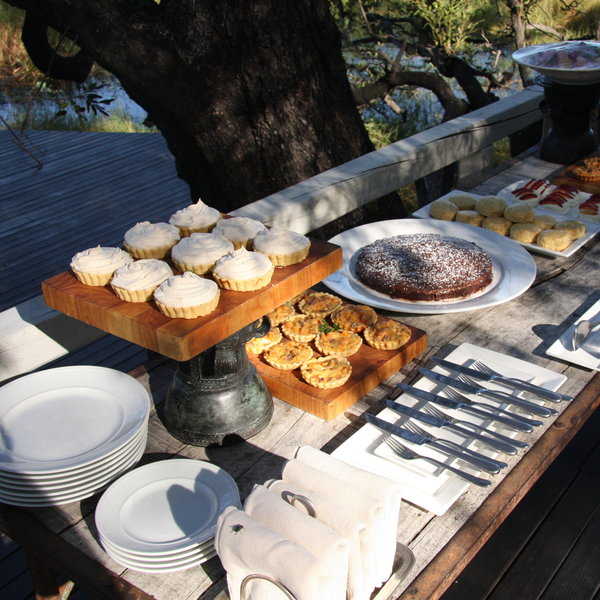
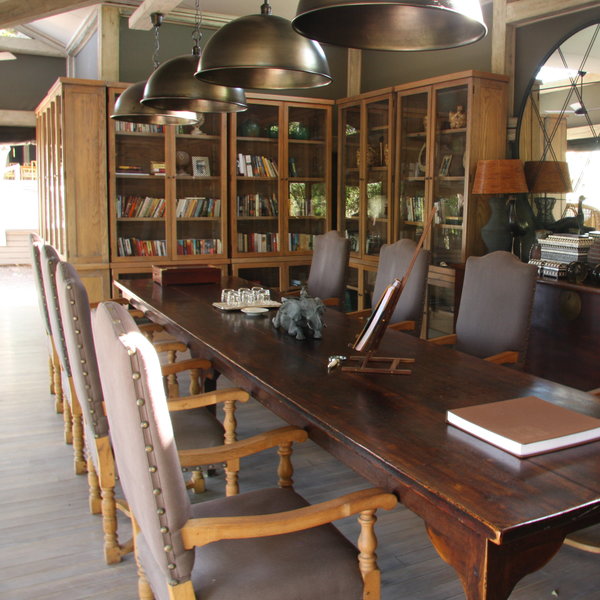
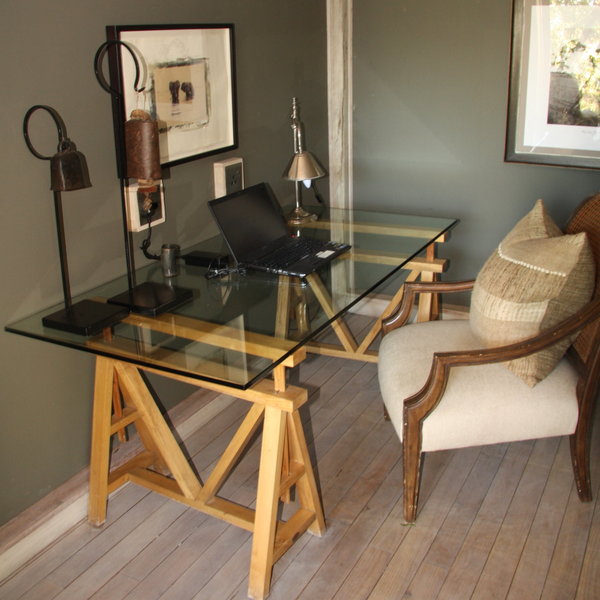
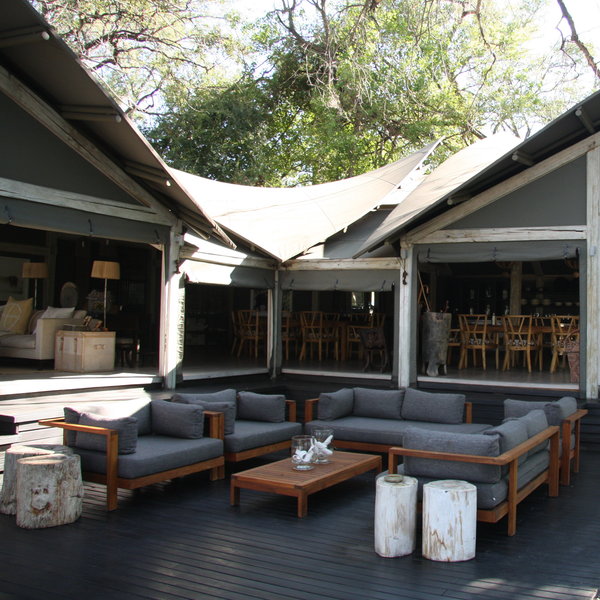
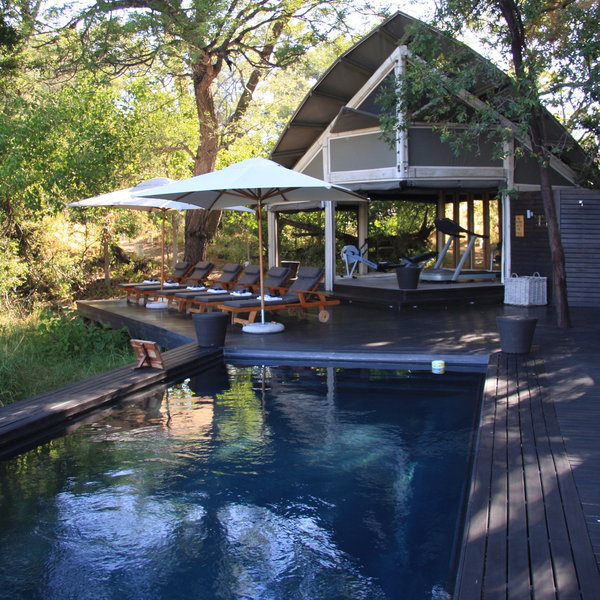
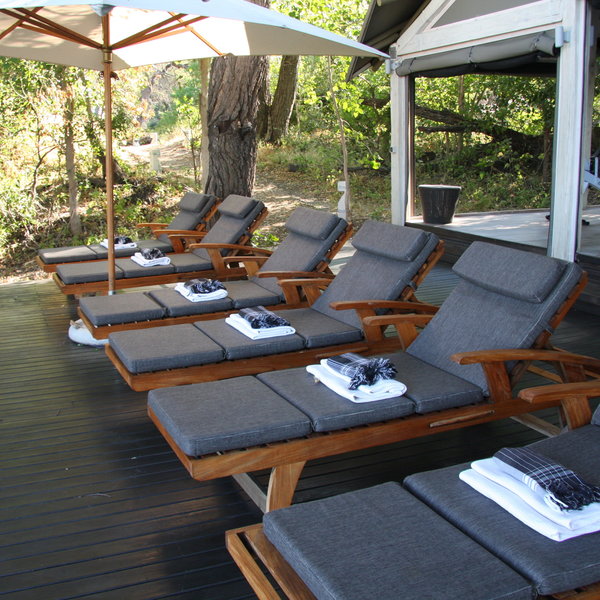
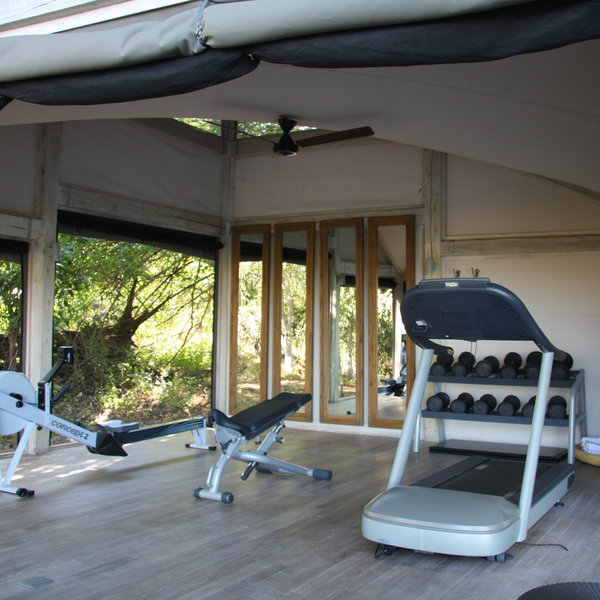
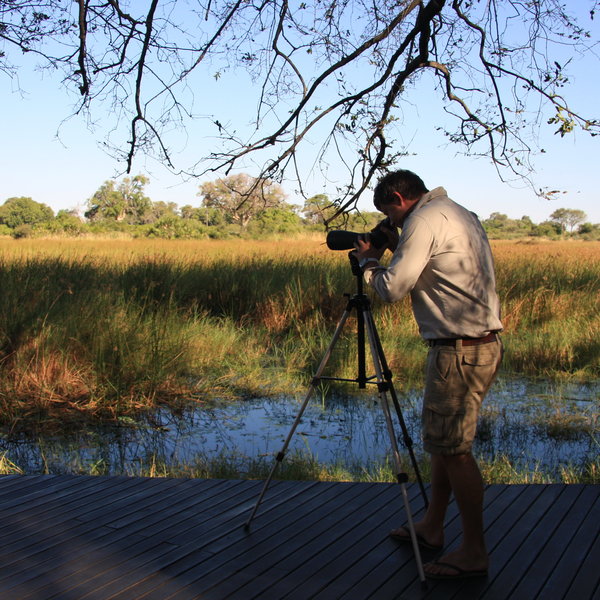
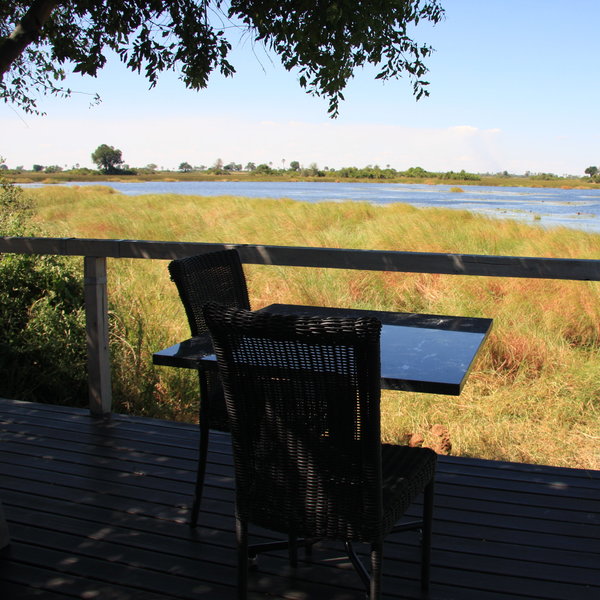
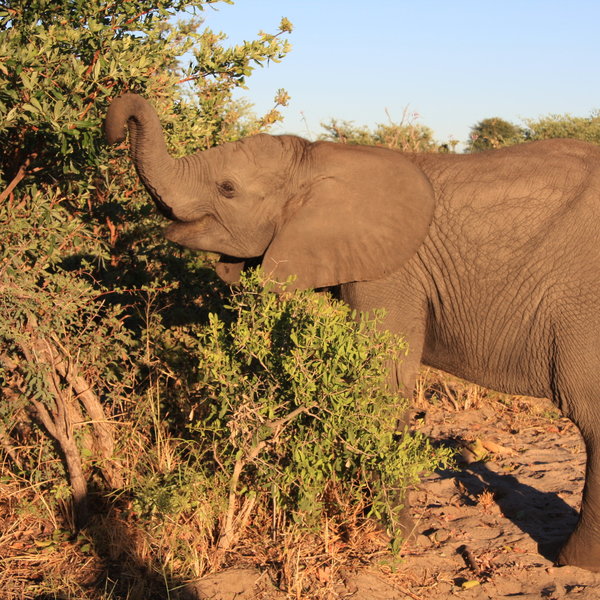
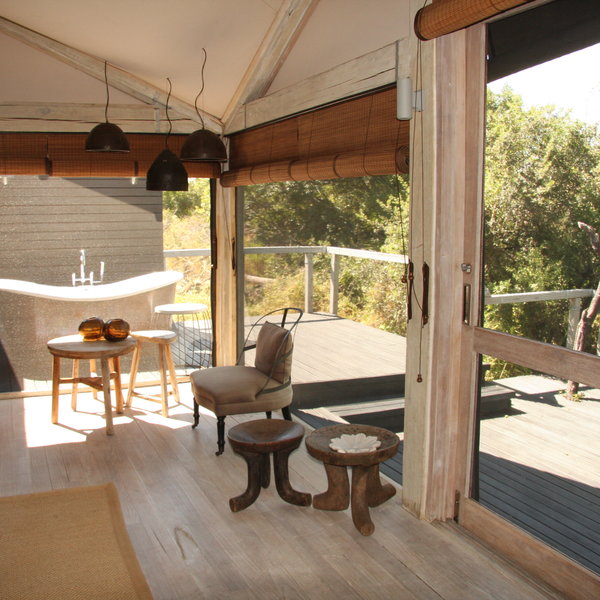
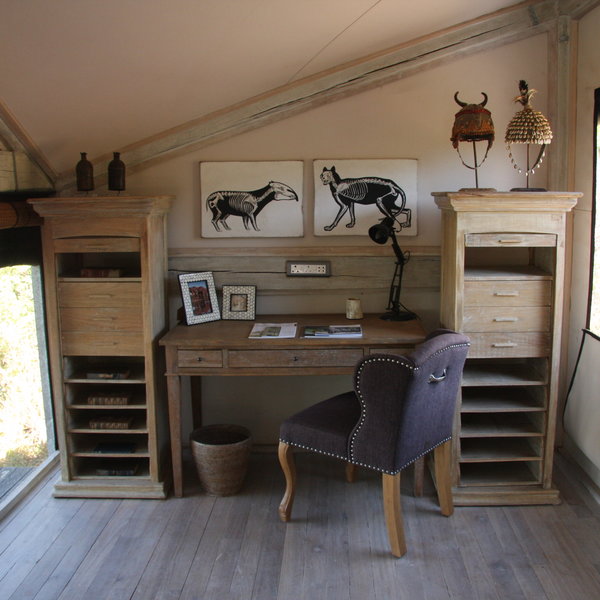
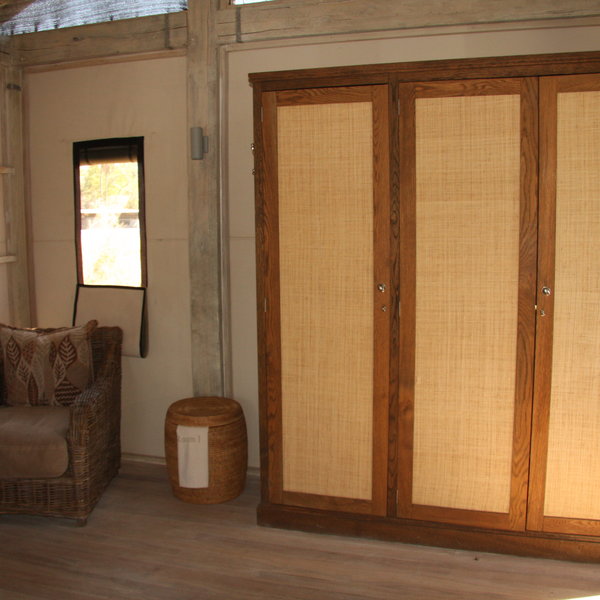
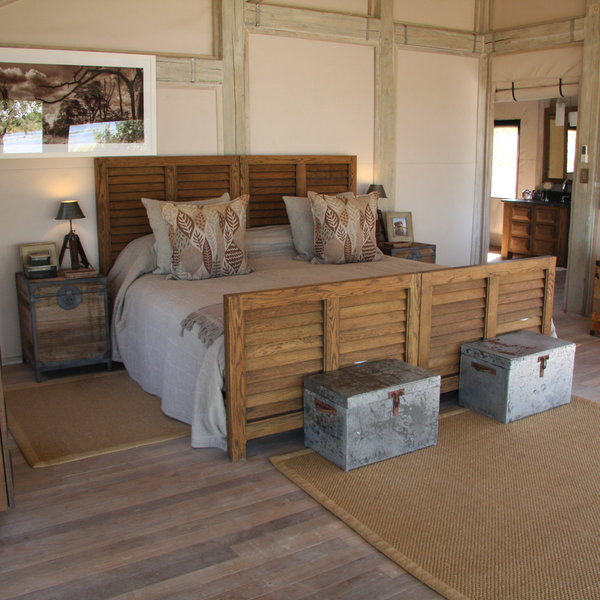
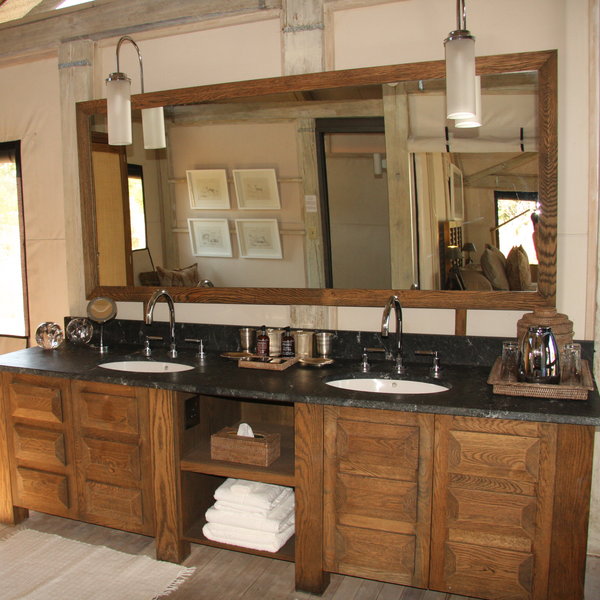
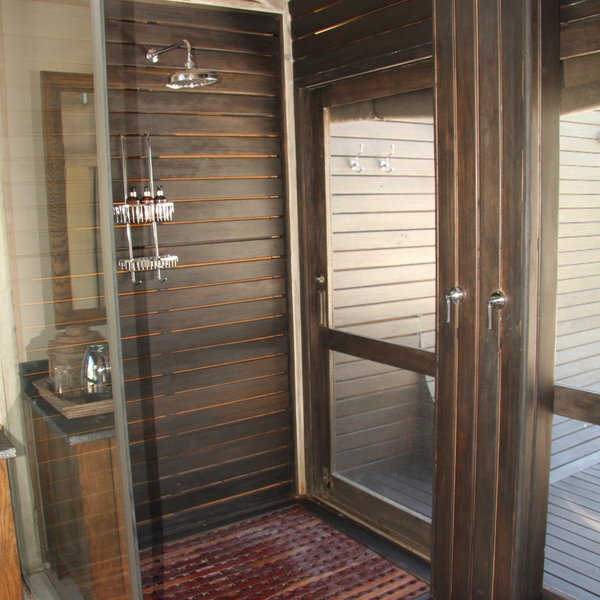
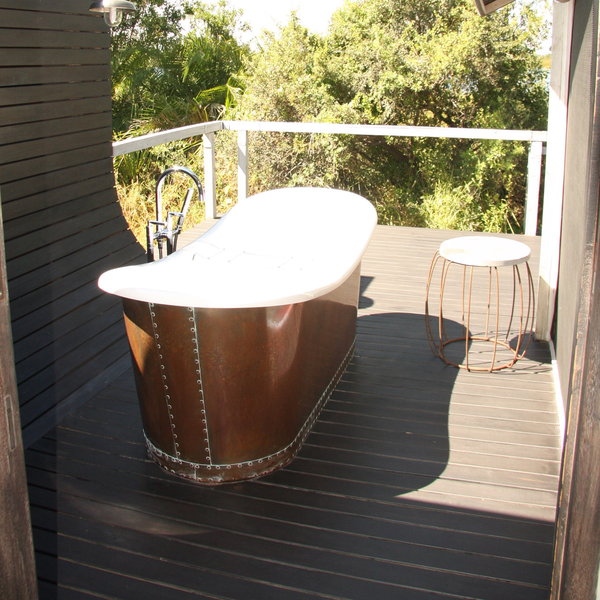
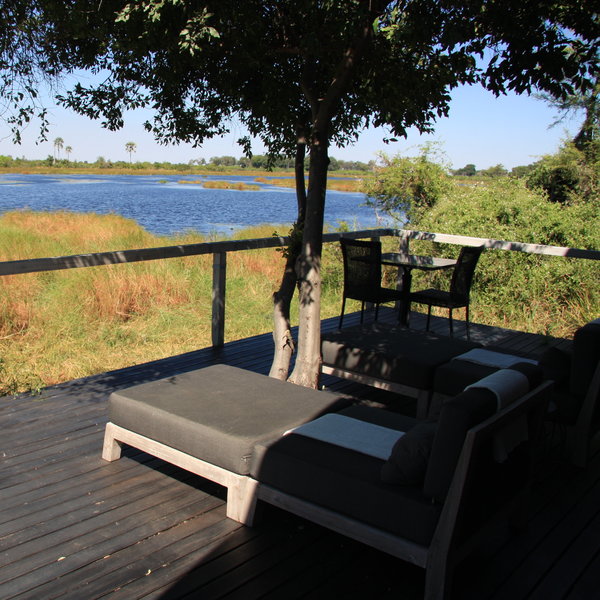
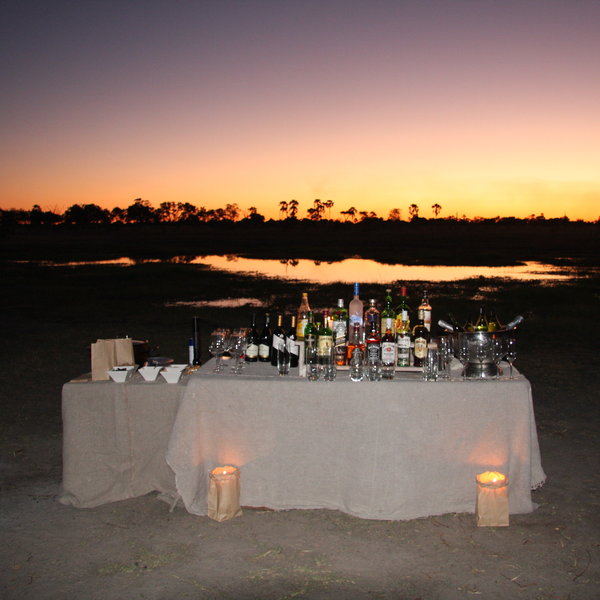
Expert Africa's gallery
When we travel we take lots of photos ourselves to give you a real and un-edited view of the safaris. See our 61 pictures and 3 videos of Abu Camp to get the candid view.
View galleryAbu Camp: Our full report (currently closed)
Located on the edge of a permanent lagoon in a grove of towering hardwood trees, Abu Camp is one of the most ...
... luxurious and expensive camps in Botswana. For many years it was owned and sporadically run by its founder, the charismatic Randall Jay Moore. During this time it gained a reputation as the place to ride African elephants in a pristine wilderness environment, and attracted the world's glitterati.
However, we’re very pleased to say that as of 31 December 2016, Abu stopped all riding of the Abu Herd and in mid 2021 they also stopped walking and other close interactions with the Abu herd. Their elephant programme now focuses on elephant conservation, observing them in the wild and getting to know their individual characters on a 4 x 4 game drive.
Randall Moore has now moved on to pastures new but we don't envisage the upmarket nature (or the price tag) of Abu disappearing any time soon, given that the camp is now part-owned by Paul Allen (of Microsoft fame) and managed by Wilderness Safaris.
The whole of Abu Camp was rebuilt and refurbished in early 2011 and on our last visit, we were really impressed with this now immaculately designed safari lodge, with rooms the size of small apartments finished to the highest specifications, with quality furnishings and service of the very best standard.
Accommodation at Abu Camp consists of just six tented suites which all face out onto the lagoon. Their basic design – of timber frames with canvas walls and with large mesh windows that keep insects out but let the breeze in – is relatively typical of many other safari camps in the Okavango Delta. Where Abu Camp's suites differ, however, is in their décor: each is unique.
Our team member's suite stretched linearly along the bank of the lagoon so that the bedroom, study area and bathroom all faced out onto the water. The study area, with a writing table and comfortable leather deckchair, offers an excellent place from which to update your travel journal or to relax and read one of the old books provided (circa 1870). Perhaps what most impressed us though were the glass cabinets set either side of the desk, each containing various local artefacts as well as samples of rocks and minerals found in southern Africa – it was like having your own small museum. More practically, the study area also boasts a good selection of power points for both European and US plugs.
The other side of each suite is taken up with a king-sized bed and a couple of chairs, plus a cabinet containing a minibar and tea and coffee station. There's no air-conditioning at Abu but it's hardly needed given the open nature of the suites. When it does get really hot, a couple of ceiling fans, one right above the bed, do a really good job of keeping the temperature down.
An open doorway, which can be screened by a drop-down canvas curtain, leads from the 'bedroom' to the en-suite bathroom. In our suite the bathroom consisted of twin basins set in a black marble unit beneath a large mirror. There was a large walk in shower here, too, as well as a lot of hanging space and a luggage rack, while a separate room with a door housed the toilet. A sliding door from the shower opened onto the L shaped veranda, where there was a clawfoot bathtub. As at most camps, there are some complimentary toiletries provided, plus there is a hairdryer.
Around the corner from the bathtub, the wooden veranda extends to the front of each suite, which, depending on the water levels has water from the lagoon lapping right up to its stilts. With some really comfortable sala beds, this is a great place to relax and take in the birdlife. Guests in the honeymoon suite have their own private plunge pool, too.
Making good use of a natural resource, the suites are linked by elephant dung pathways. This may sound unpleasant but when compacted it makes for a soft, comfortable and pleasant walk as opposed to dust and sand.
Abu Camp's split-level main area is very impressive indeed. We're told it was designed with 'free-flow' as its inspiration, and the colour scheme of beige and greys taken from the elephants. It is all very contemporary. The open nature of the camp means that its elevated position provides great views across the floodplains.
At the very heart of this is a massive termite mound – not surprisingly this is the first thing that catches your eye you when you enter camp! Next to this is a small, open-air lounge with several comfy sofas and chairs. From this central spot, the main camp facilities radiate out across decks at various levels, each with about three to four steps separating them. The upper most deck has a large lounge divided by the stylish yet comfortable sofas and chairs into several small private lounge spaces. It also has the main dining room to the back. Here tables can be laid out for one sociable gathering or very easily into individual tables for private dining – whichever is preferred. This is also where you will find a large tea and coffee station.
Another deck is usually used solely for private dining/seating. The lowest level leads to the fire pit where breakfast is often served. This is also a lovely spot for pre and post dinner drinks. A further deck protrudes out towards the floodplain where you will find the viewing scope and is also another spot used for dining.
Abu Camp has to be one of the most flexible and laid back, in terms of timings and locations for meals and drinks, that we know of in the Botswana!
Slightly away from the main area is the library. Often, when talking about 'libraries' at safari camps, we're referring to a glorified bookcase; not so at Abu Camp. Theirs is the most comprehensive collection of fact and fiction (of both Africana and more general literature) that we have ever seen at a safari lodge. Dining can also be arranged here. There is also a 'communications centre' room with a laptop discretely positioned to allow guests who wish to touch base with the outside world to do so, while those who do not wish to can put it out of their minds. As you might expect from a lodge part-owned by the co-founder of Microsoft, the internet connectivity is very good and those with their own portable device have access to WiFi throughout the main area. There is also a TV/DVD player descretely hidden away.
Down at ground level, and set to the side of the main area, is the swimming pool with a wooden deck set with a few recliners. Slightly further back there is also a simple gym with a treadmill, rowing machine and a few free weights, but almost as a reminder of more hedonistic pleasures, there's a large pizza oven just outside the door. Here, under the guidance of Abu's chef, guests can create their own masterpiece.
Activities at Abu Camp include game drives, night drives, boat trips, guided walks and mokoro trips.
Activities
4WD Safari
Birdwatching
Boat trip
Elephant encounter
Fishing
Guided walking safari
Helicopter
Mokoro
Night drive
Private activities
Families & children
- Attitude towards children
- Children of 12 years of age and over are accepted at Abu Camp. For children aged 8–12 a private vehicle must be booked in advance. Children under 8 years of age are usually not accepted but this can be considered on a case-by-case basis.
- Property’s age restrictions
- No children under 8 years of age (unless by prior arrangement).
- Special activities & services
- None
- Equipment
- None
- Generally recommended for children
- We don’t think that Abu is suitable for young children.
- Notes
- Abu is a very open camp and the elephants often wander through the camp and on the paths, so parents must supervise their children at all times.
Food & drink
- Usual board basis
- Full Board & Activities
- Food quality
- On our last visit to Abu Camp the food was excellent. Not only did it taste fantastic but it was also presented immaculately and always by someone with a smile.
A light breakfast is served at the elephants' enclosure or around the camp fire; cereals, fruit and a variety of muffins, croissants, pancakes and scones with jams and various spreads are all on offer.
Lunch began with a green-pea soup with freshly baked bread rolls. The main course was a tasty beef lasagna, accompanied by a green salad with plenty of dressing.
Tea was a feast to behold! Mini lemon meringue pies, butternut and leek tartlets, meringue cases filled with plums and cream, sumptuous chocolate cake, watermelon and a few other goodies, all accompanied by freshly made lemonade and iced tea. A real treat.
For dinner we started with the choice of a very tasty curried butternut soup or haloumi spring rolls. The main course was beef medallions, cooked to perfection, with rosti potatoes (or chicken with onion sauce and wild rice), both accompanied by carrots and broccoli. Dessert was a tarte tatin with vanilla ice cream.
The selection of wine at Abu is varied and lunch and dinner were accompanied by a well-suited vintage. - Dining style
- Mixture of group dining and individual tables
- Dining locations
- Indoor and Outdoor Dining
- Further dining info, including room service
- No, although private meals can be organised for special occasions on request.
- Drinks included
- Bottled water, soft drinks, local beers and spirits and a limited selection of (usually) South African red and white wines are included. Champagne and imported wines and spirits will cost extra and may need to be requested in advance.
Getting there
- Location
- Okavango Delta Safari Reserves, Botswana
- Ideal length of stay
- We’d recommend a stay of two nights at Abu, taking advantage of the elephant activity and perhaps getting out on the water to appreciate the spectacular landscape.
- Directions
- Abu is accessible only by light aircraft; the airstrip is roughly 20 minutes away from camp by 4WD vehicle.
- Accessible by
- Fly-and-Transfer
Special interests
- Wildlife safaris
- Abu Camp is renowned for its Abu elephant herd, which used to be an habituated herd but now mingles with other wild elephants.
- See ideas for Wildlife safaris in Botswana
- Luxury safaris
- Six opulent tents at Abu Camp are individually designed and decorated, all featuring an outdoor copper bathtub and plunge pool.
- See ideas for Luxury safaris in Botswana
Communications
- Communications
- There is Wi-Fi in the main area and a ‘communications centre’ with a laptop linked to the internet available for guests’ use. Internet connectivity is very good here.
- TV & radio
- There is a TV kept discretely in the main area of the camp which receives a number of satellite channels and can be used to show DVDs from the library.
- Water supply
- Borehole
Health & safety
- Malarial protection recommended
- Yes
- Medical care
- There are trained first-aiders on site and for serious incidents there’s a medical air-evacuation system in place. Please note that it is only possible to fly out of camp during daylight hours as the bush airstrips do not have any lighting at night.
- Dangerous animals
- High Risk
- Security measures
- Guests are escorted to and from their rooms after dark as dangerous wildlife is known to wander through the camp. A thorough safety briefing is given on arrival. A fog-horn in each tent is available to summon help in case of a medical emergency.
- Fire safety
- There are fire extinguishers around camp and fire assembly points are identified to guests when they first arrive.
Useful info
- Disabled access
- Not Possible
- Laundry facilities
- Included
- Money
- No exchange facilities are offered at Abu. There are small safes in all the rooms, as well as a larger one in the office.
- Accepted payment on location
- MasterCard and Visa credit cards are accepted; Diners and Amex are not. Cash in the form of South African rand, GB sterling, US dollars, euros and Botswana pula is accepted.
Plan and book your trip with Expert Africa
All of our trips are tailor-made, so we'll always adapt them to suit you. Talk to an Expert and let us plan and arrange your perfect trip.

Talk to an Expert
Call or email us now! We’ll match you with the Specialist in our team who is best suited to help you. Then together we can start planning your trip.

Set up your itinerary
Based on our experience and your ideas, your specialist will create a detailed, costed itinerary. We’ll refine it together, until we have a trip that you’re perfectly happy with.

Prepare for your trip
The same Specialist will make the seamless arrangements for your trip, send you detailed travel documents, and be available to answer any questions before you depart.

Travel with peace of mind
After you set off, you’ll be cared for by our partners in Africa, most of whom have worked with Expert Africa for decades. And if you ever need us urgently, we’re available 24/7.

When you return
We love to learn about your trip, and so will always be grateful if you’ve the time to give feedback to your Specialist when you return.
Abu Camp's location
Look closer at the environment and surroundings of Abu Camp.
Excursions from Abu Camp
Optional extra day-trips and excursions possible whilst you're staying at Abu Camp. Talk to us: these are usually best arranged before you go.
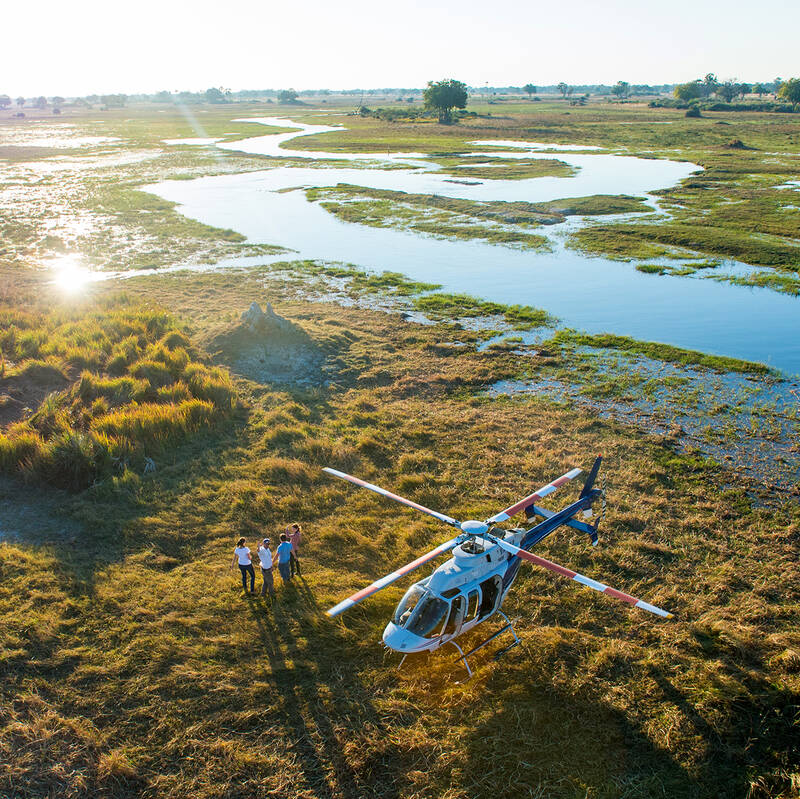
Helicopter Flight - Botswana
Various: from 30 minutes to half a day.
Low-flying, agile and offering superb views, helicopters are an ideal way to move around the Okavango Delta.You can use them instead of fixed-wing inter-lodge transfers or as an addition to other wildlife watching activities, and of course, helicopters can hover to allow that perfect pic, whereas fixed-wings can’t.
More about Helicopter FlightOther lodges in Okavango Delta Safari Reserves
Alternative places to stay in this same area.
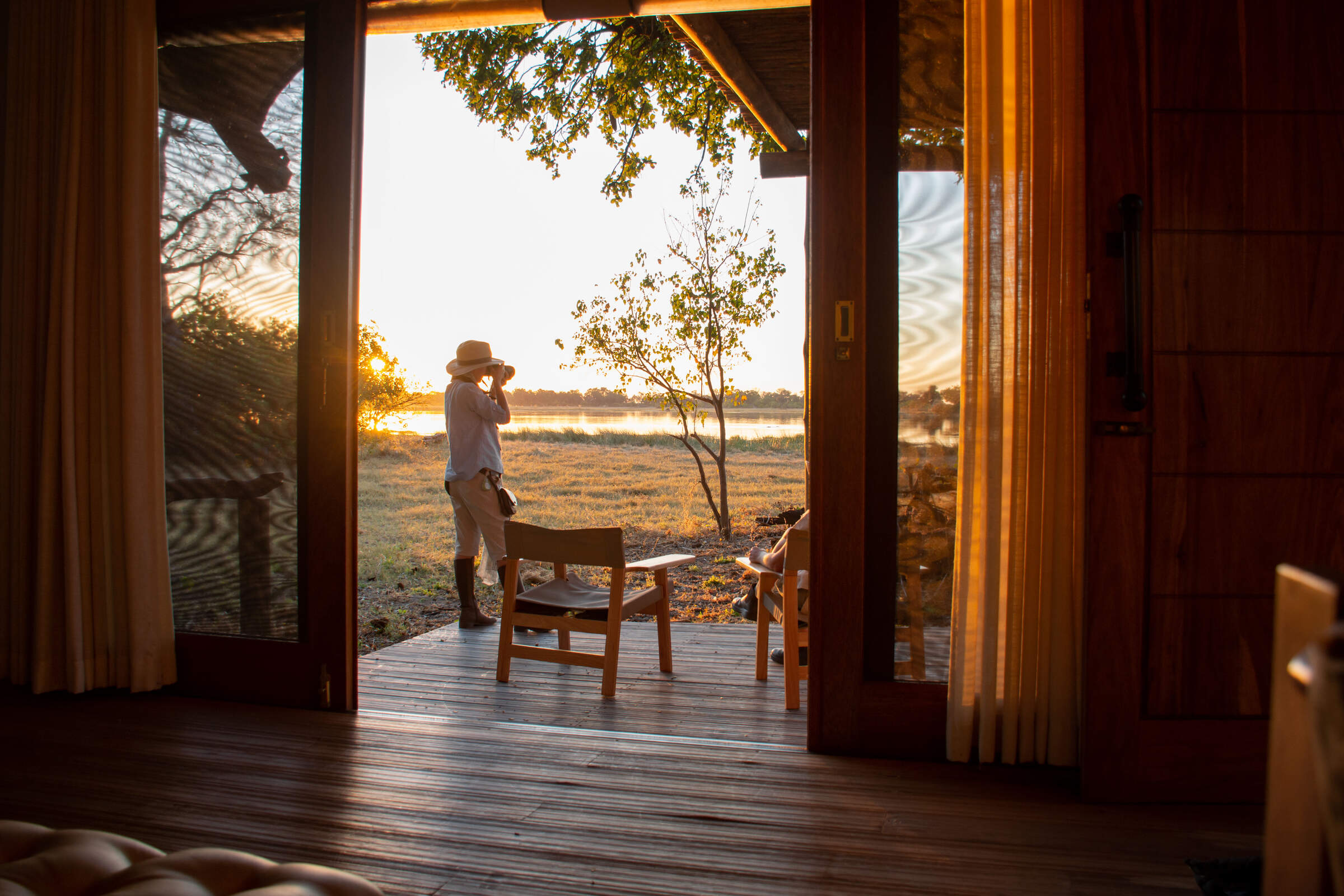
Kwara Camp
Kwara Camp's private reserve boasts land and water activities year-round, with excellent game-viewing opportunities and access to permanent channels of the north-east Okavango Delta.
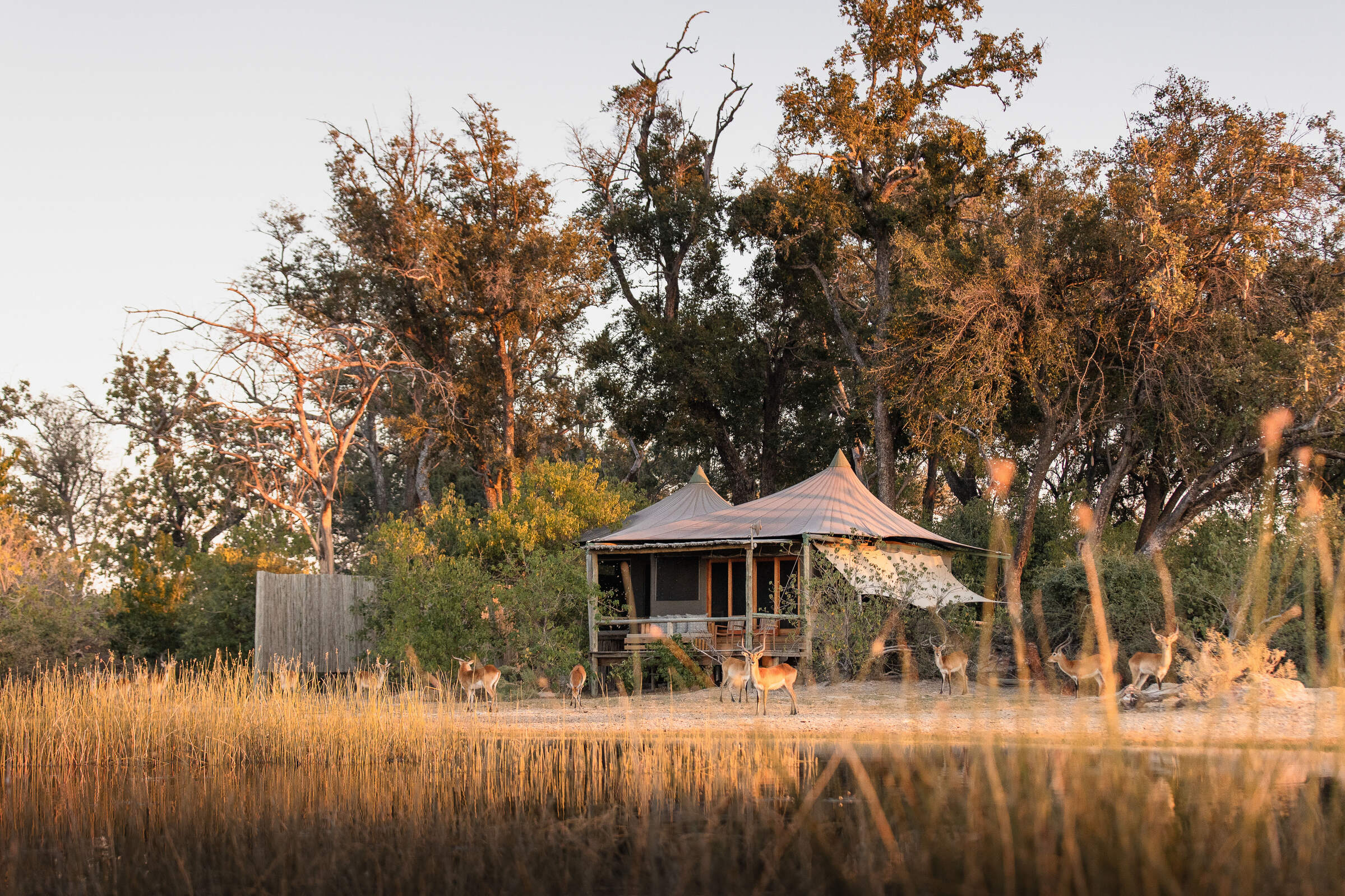
Little Vumbura
On a secluded island within a private reserve, Little Vumbura combines superb game viewing with a broad diversity of habitats in a truly picturesque setting.
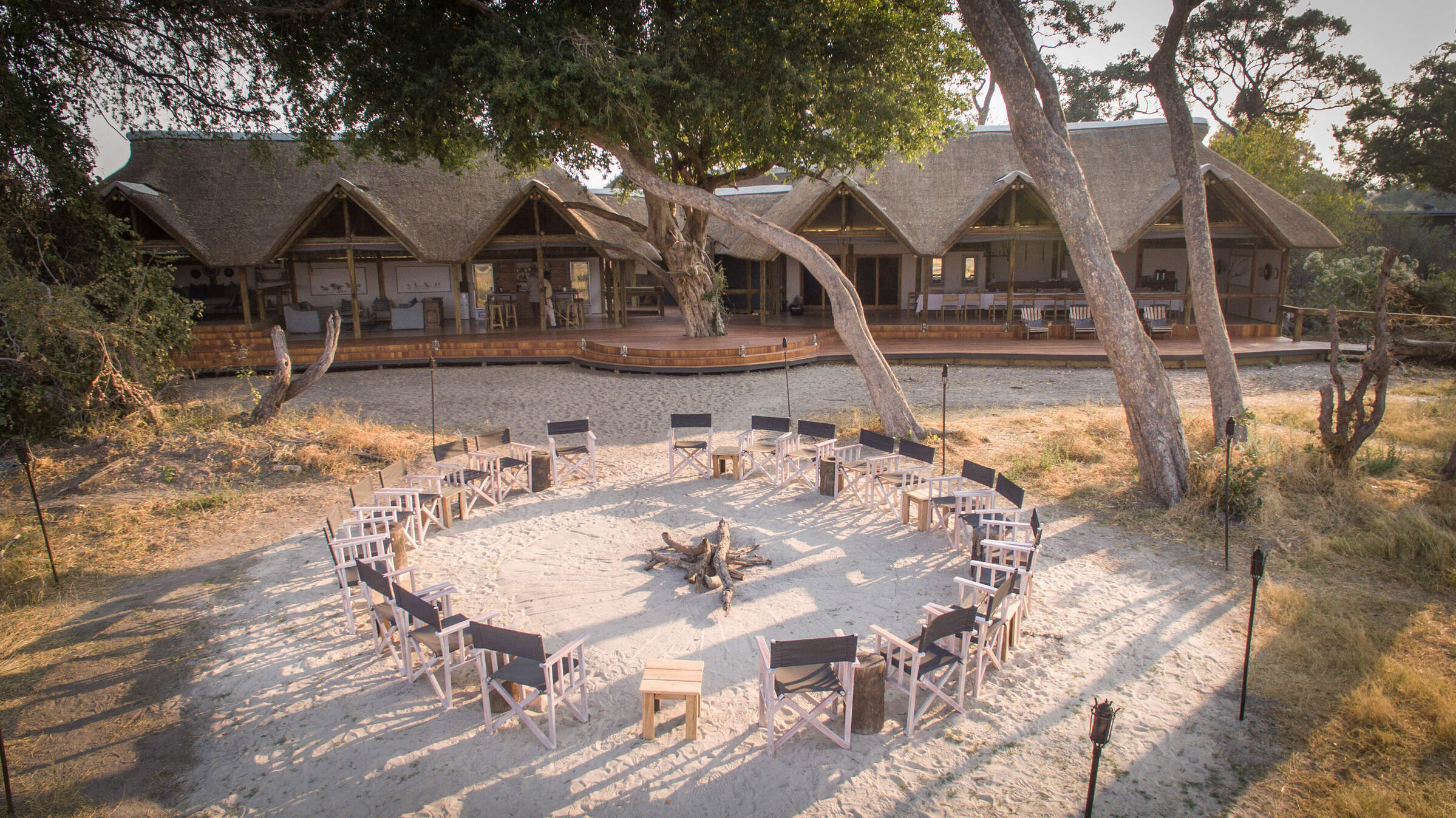
Splash Camp
Set in the Kwara Reserve, offering superb wildlife viewing year-round, Splash offers both land and water activities led by guides with a particular knack for tracking big game.
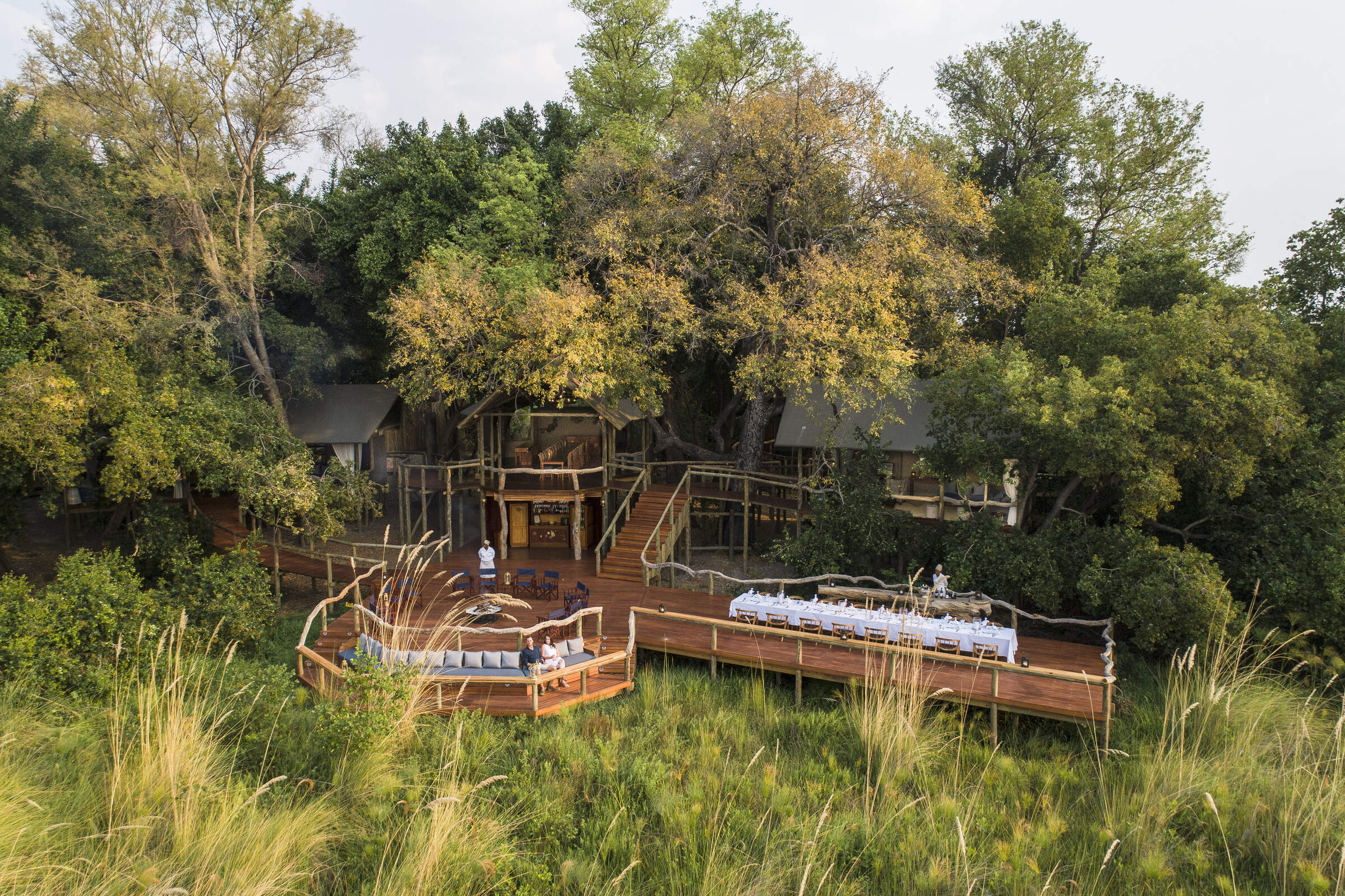
Shinde Camp
With experienced staff and a wealth of activities, Shinde offers a traditional safari in an exceptionally varied and wildlife-rich environment.
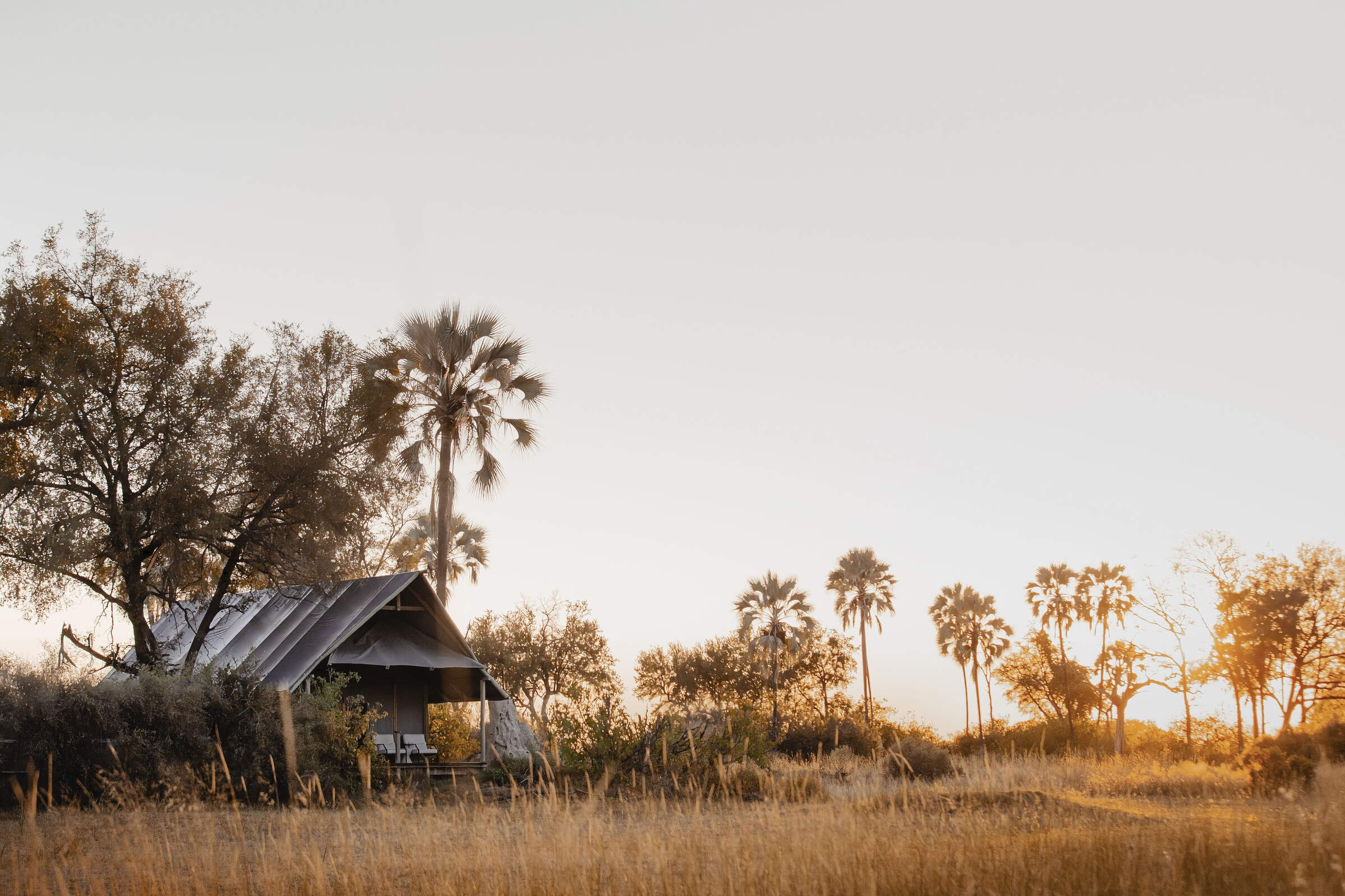
Chitabe Lediba
Chitabe Lediba, in Botswana's southern Okavango Delta, is a small family friendly safari camp; it offers great dry-land safaris and in our experience consistently delivers good game sightings.
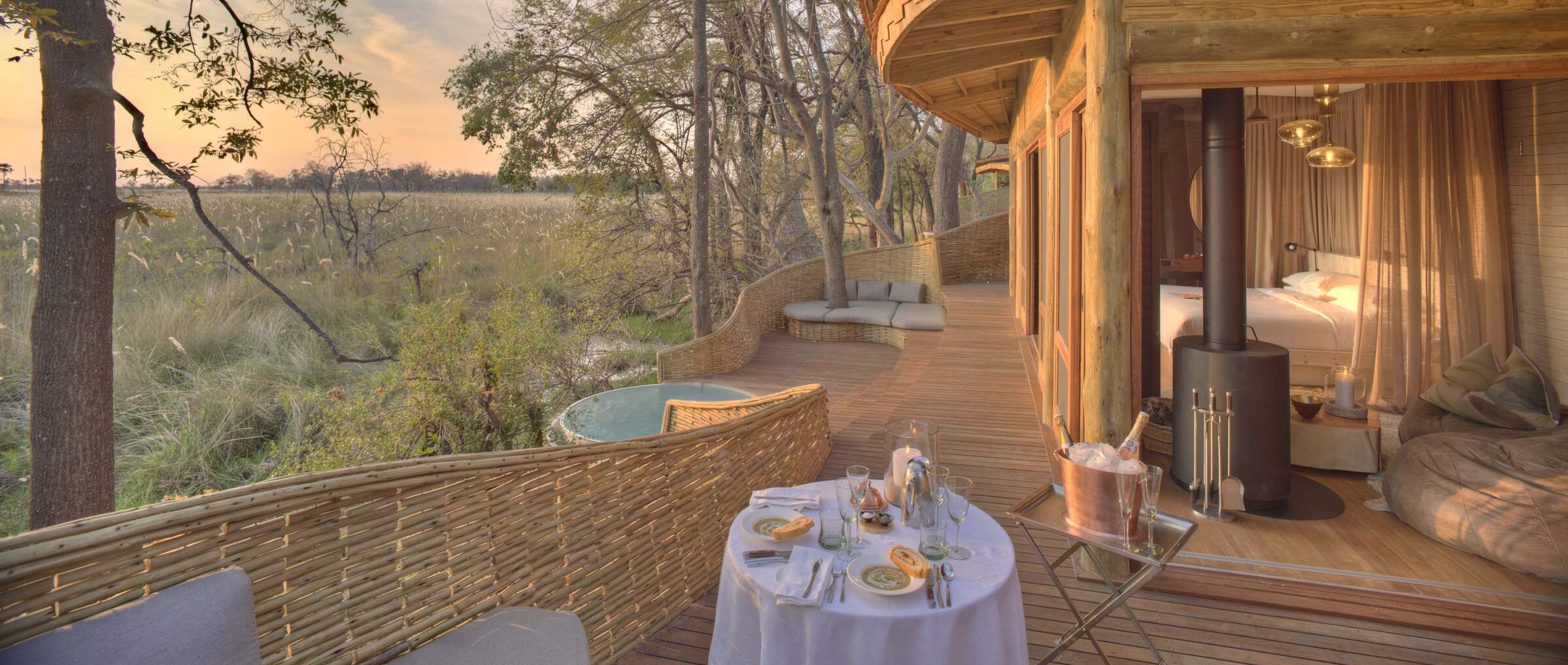
Sandibe Safari Lodge
The luxurious Sandibe Okavango Safari Lodge lies in a private concession in the heart of the Okavango Delta, beside Moremi Game Reserve, with superb big-game viewing.
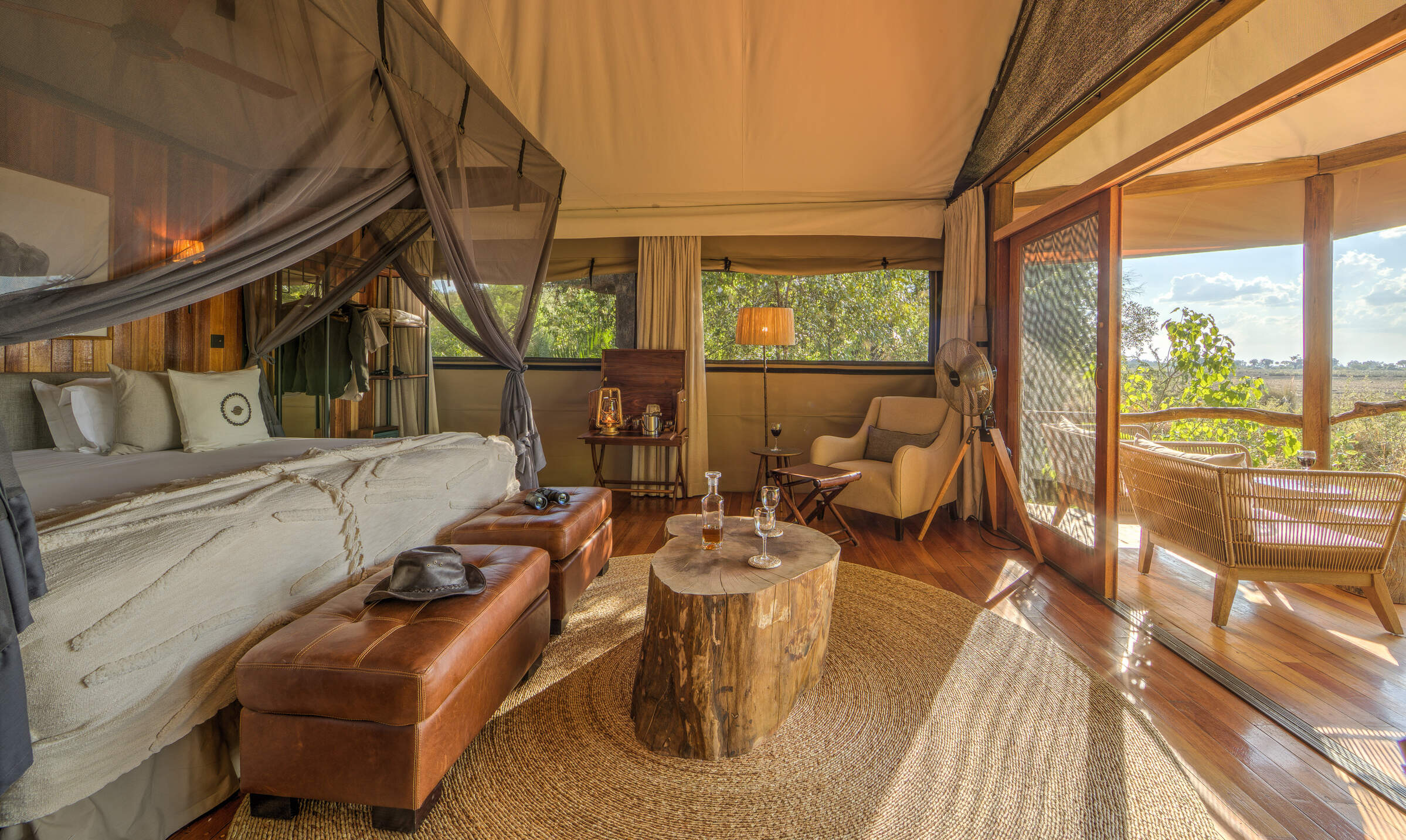
Kanana
In a beautiful part of the Delta, Kanana focuses on fantastic water activities and birding – including exclusive access to an impressive heronry.
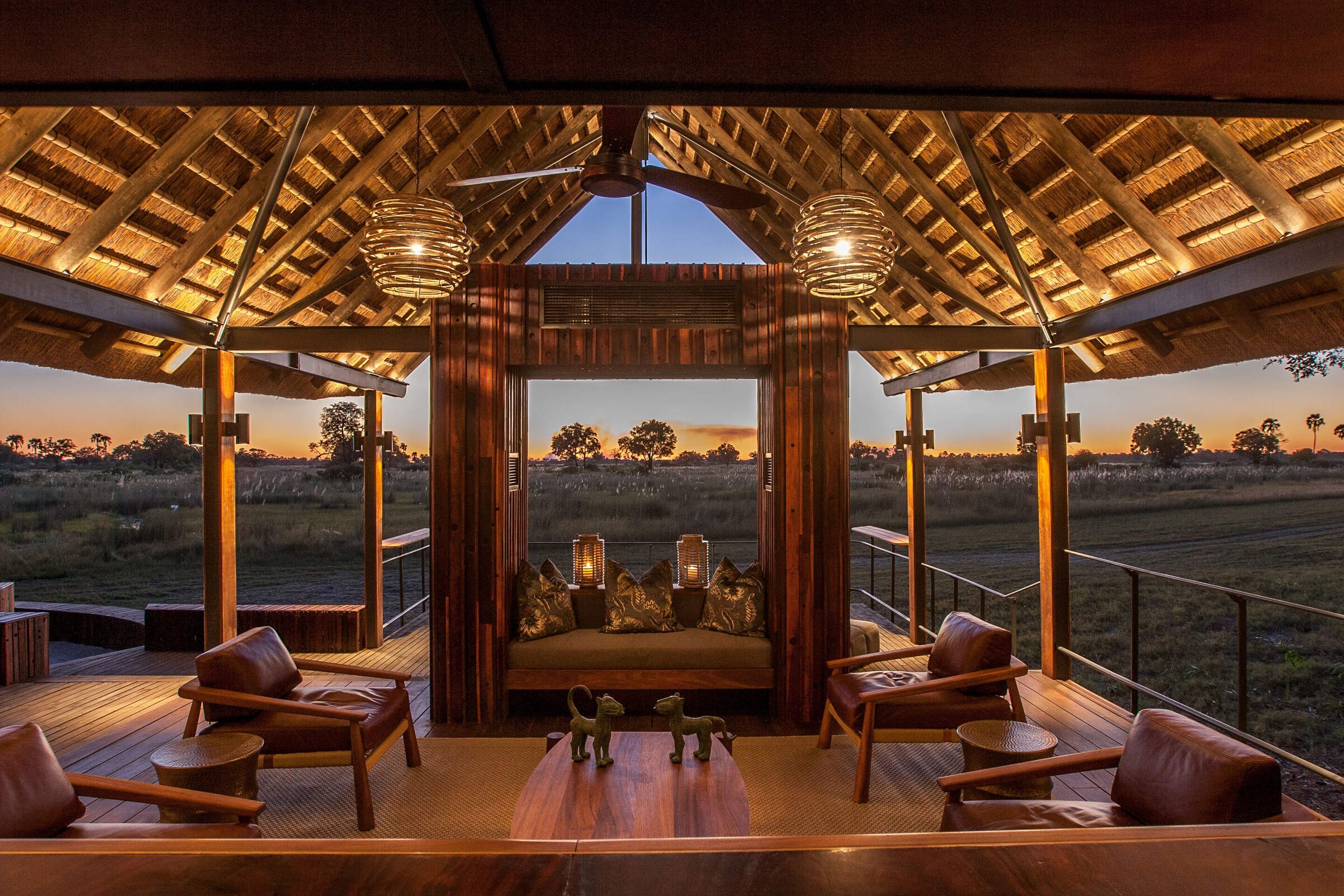
Chitabe Camp
In the southern Okavango Delta, the excellent Chitabe Camp concentrates on dry-land safaris in an area that we've found particularly good for wild dog sightings.
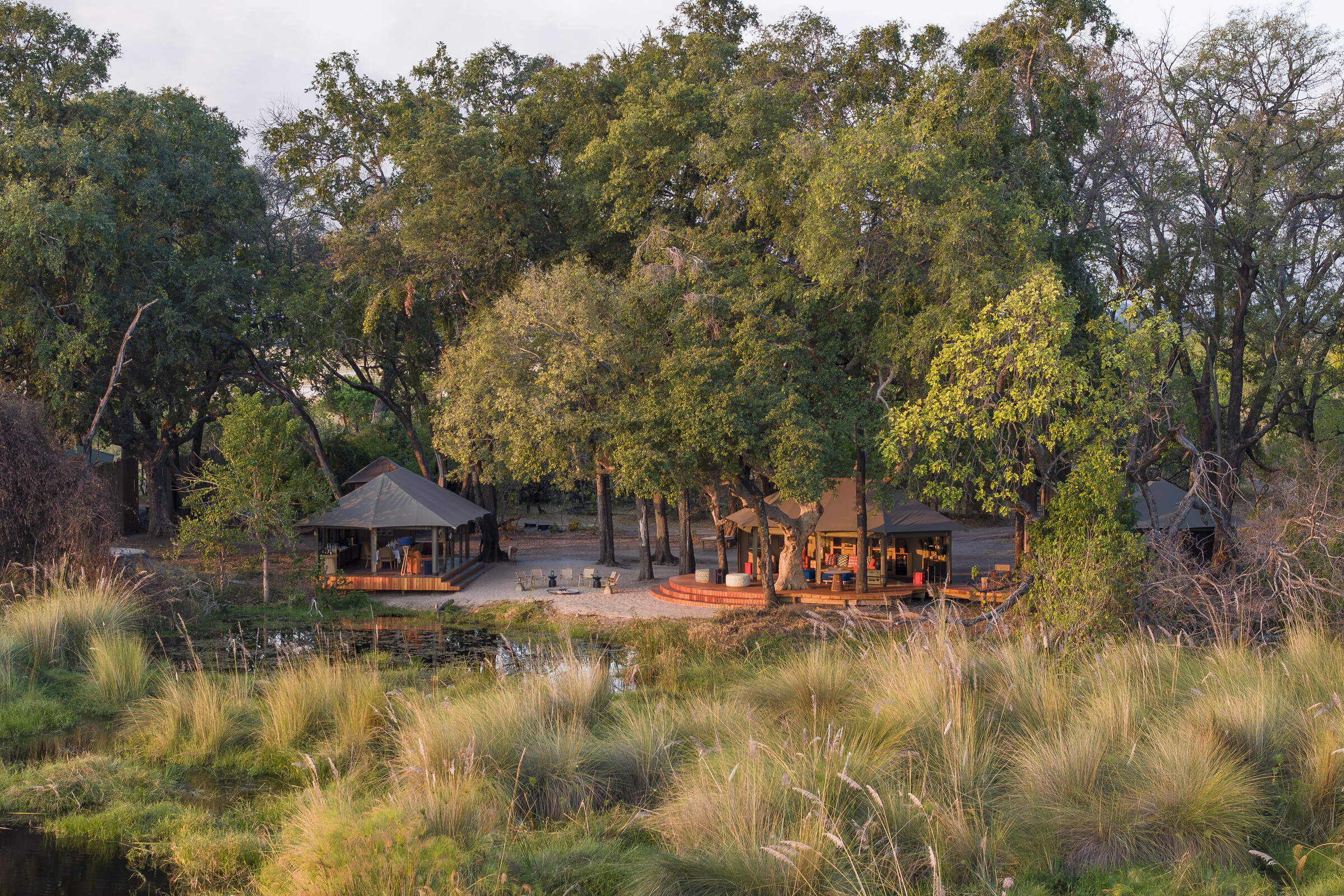
Shinde Footsteps
Small and simple, but comfortable, Shinde Footsteps focuses on walking safaris as well as game drives; it also runs a special children's programme so is particularly suitable for families.
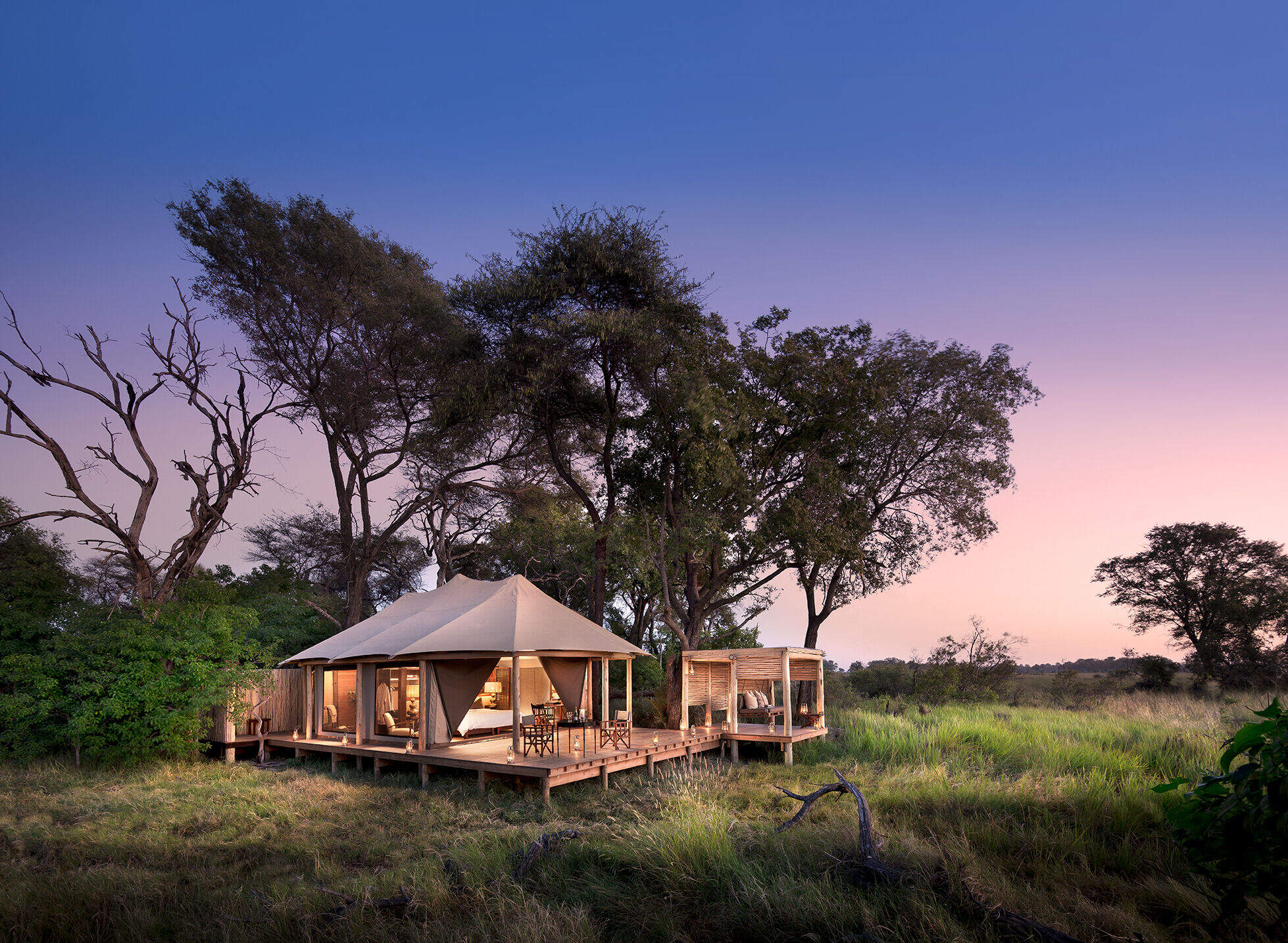
Nxabega Tented Camp
Nxabega offers a selection of both land- and water-based activities, plus very good guiding, food and service, but game viewing can be somewhat erratic.
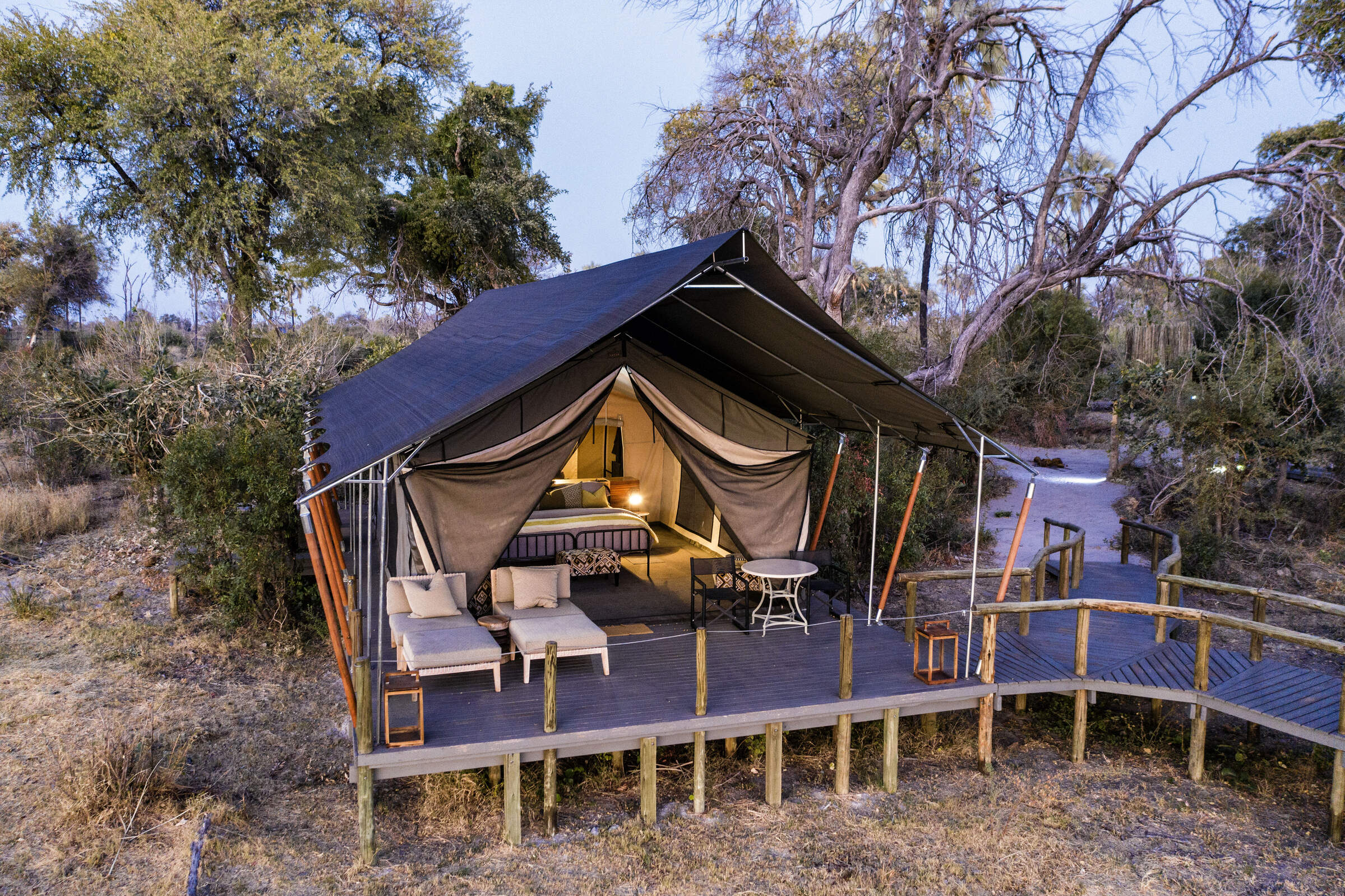
Gomoti Plains
Overlooking a tributary of the Gomoti River, Gomoti Plains Camp is a classically designed camp with very comfortable tents in a good game-viewing area.
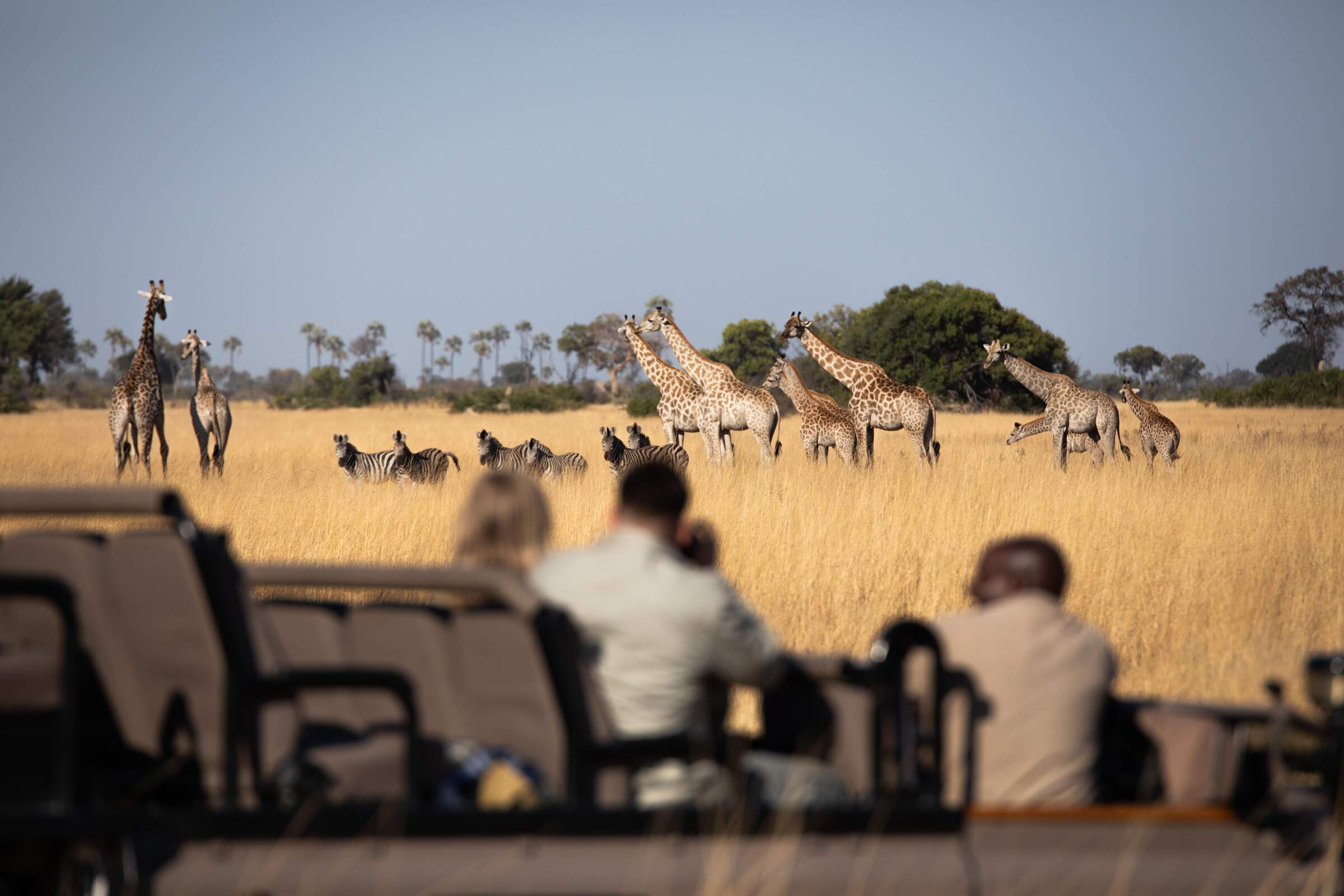
Tubu Tree Camp
A traditional tented camp with a distinctive tree-house feel, Tubu Tree offers some of the best game viewing in the Jao Reserve.
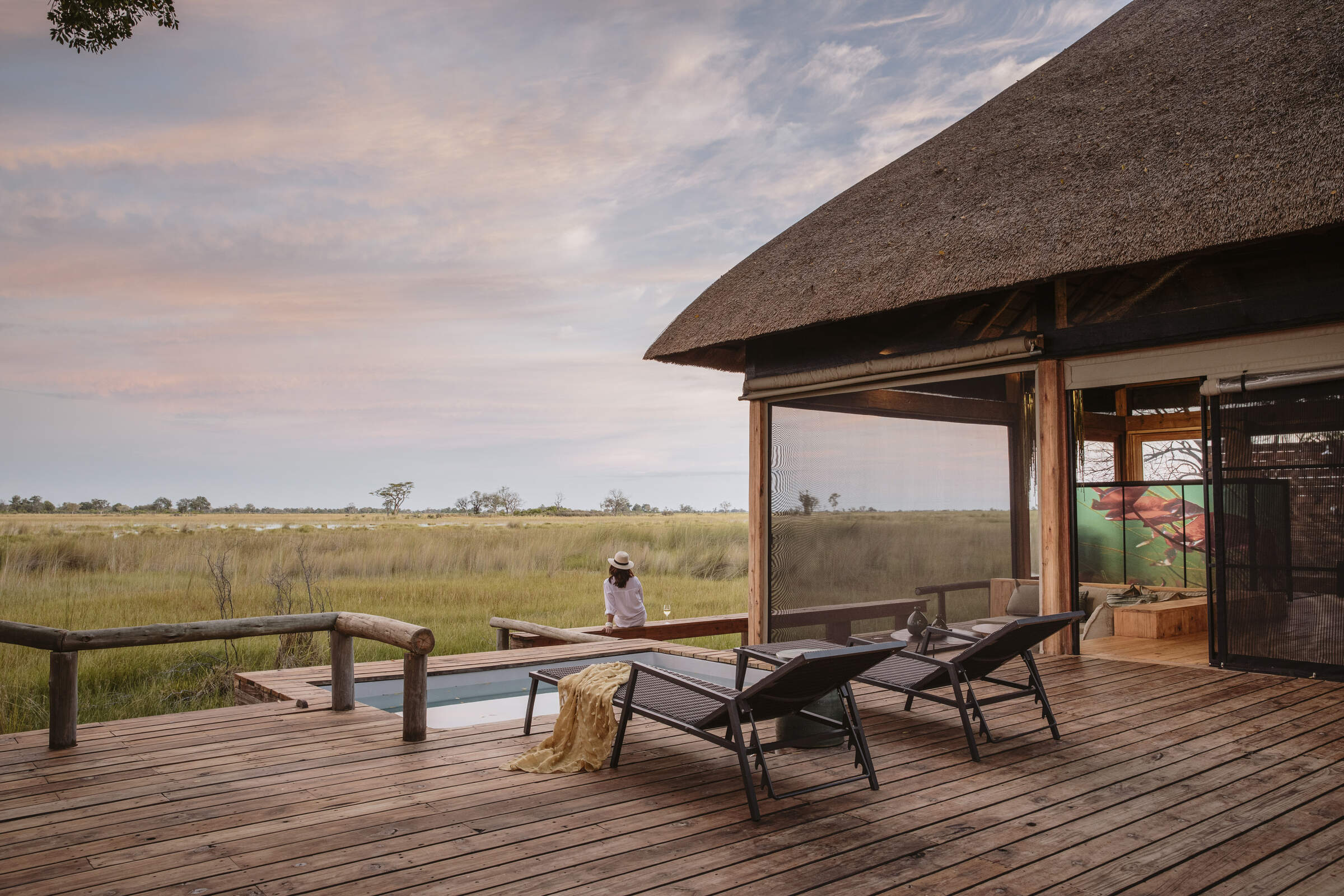
Vumbura Plains
Indulgently stylish and luxurious, Vumbura Plains offers superb game viewing and birding on an exceptionally varied private reserve.
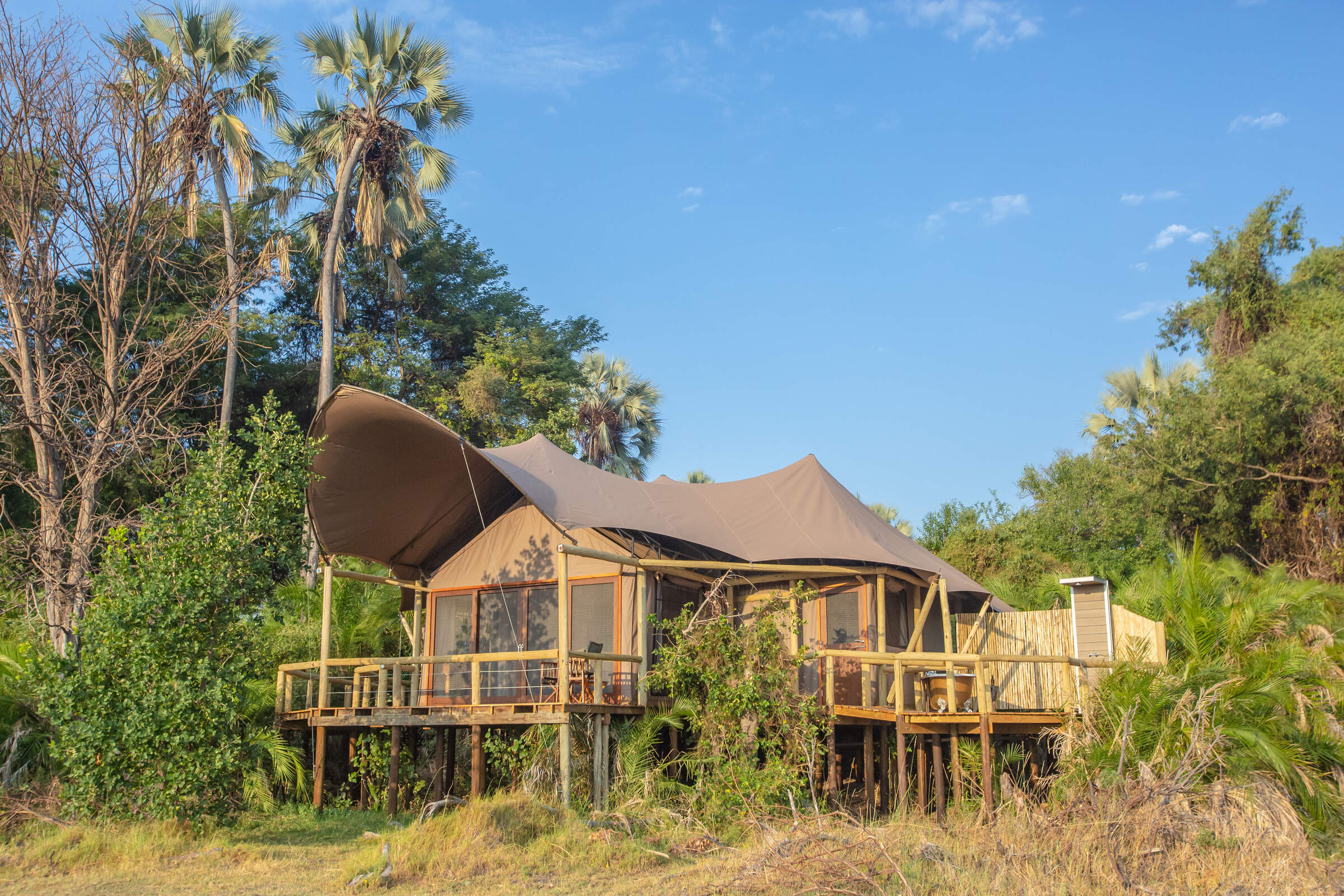
Jacana Camp
Jacana Camp is a small safari camp with an informal island feel; it is ideal for water-based activities in the Delta and offers excellent birdwatching.
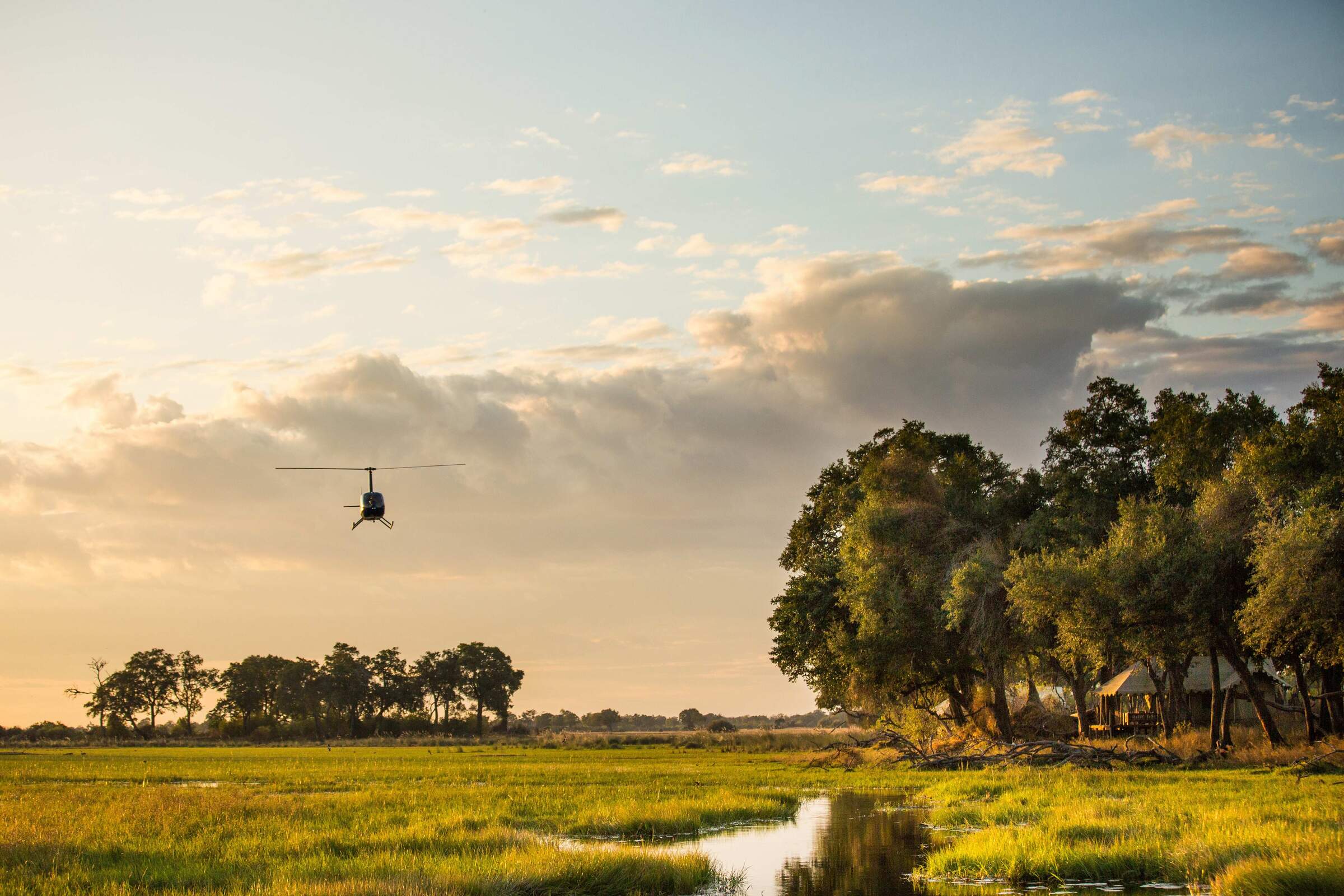
Duba Explorers Camp
Intimate and elegant, Duba Explorers Camp promises a firm safari focus in a remote corner of the Okavango, led by a team who value the highest guiding and hosting standards.
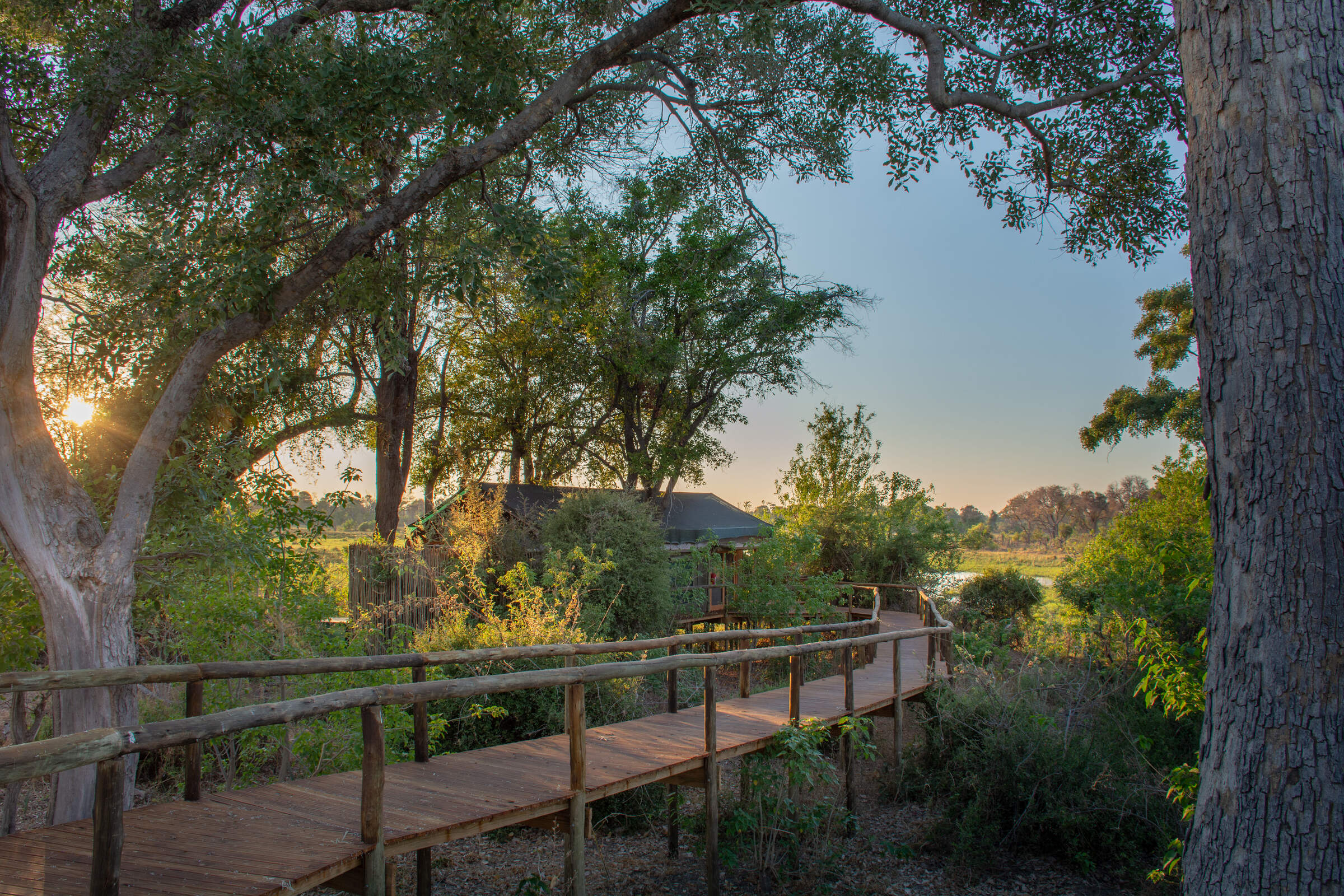
Mma Dinare
Beautifully located in a private concession overlooking the Gomoti River, the traditional Mma Dinare is very well-priced for the Okavango Delta.
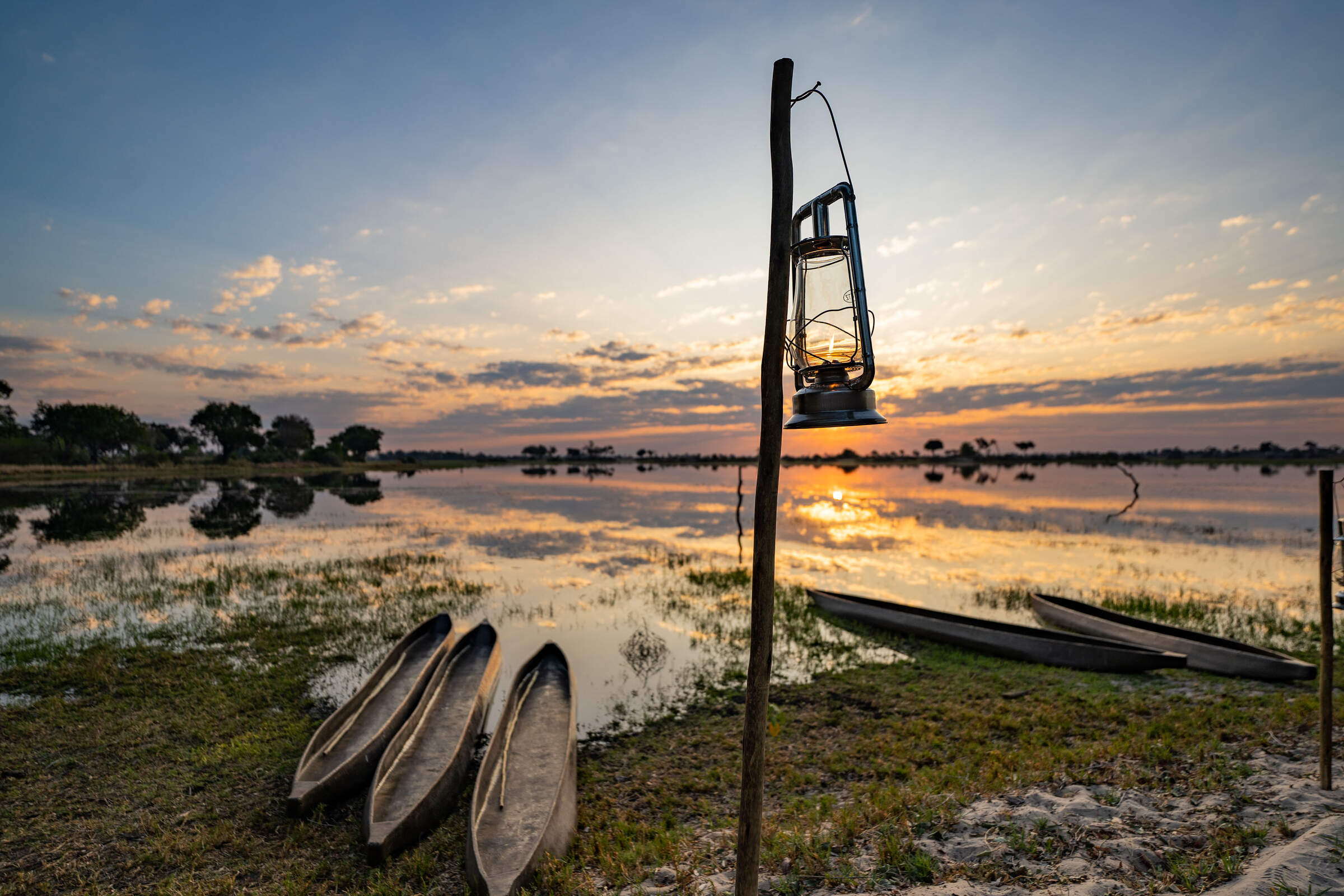
Pom Pom Camp
Amidst stunning Okavango Delta scenery, Pom Pom offers idyllic mokoro trips in season, great birdwatching, and increasingly good big-game sightings, especially leopards.
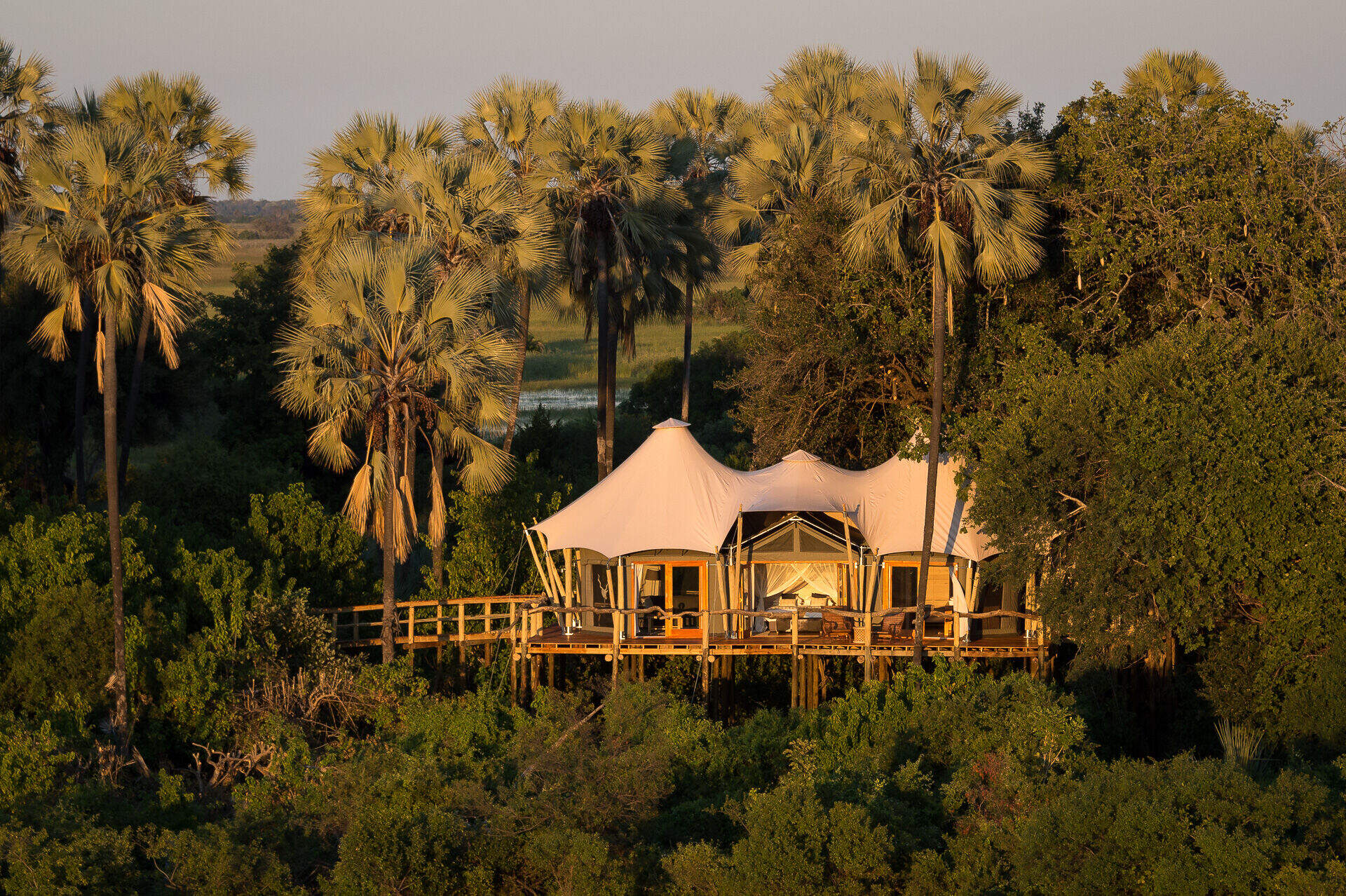
Kwetsani Camp
Deep in the Delta, overlooking a floodplain, Kwetsani Camp is a small, high-end camp with good access to areas for land and water-based activities.
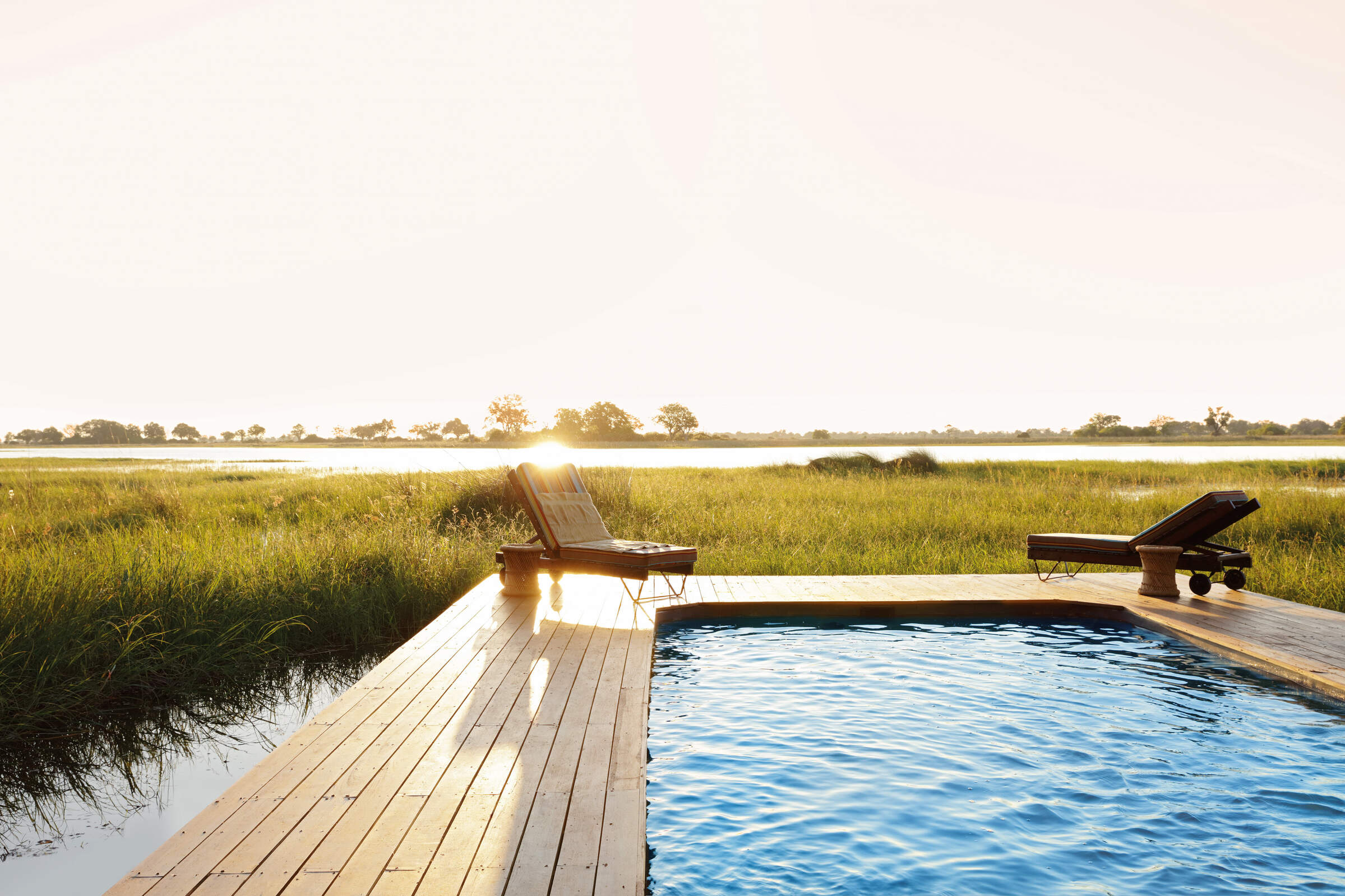
Mapula Lodge
For an affordable yet varied safari encompassing a range of eco-systems, the traditional Mapula Lodge takes a lot of beating.
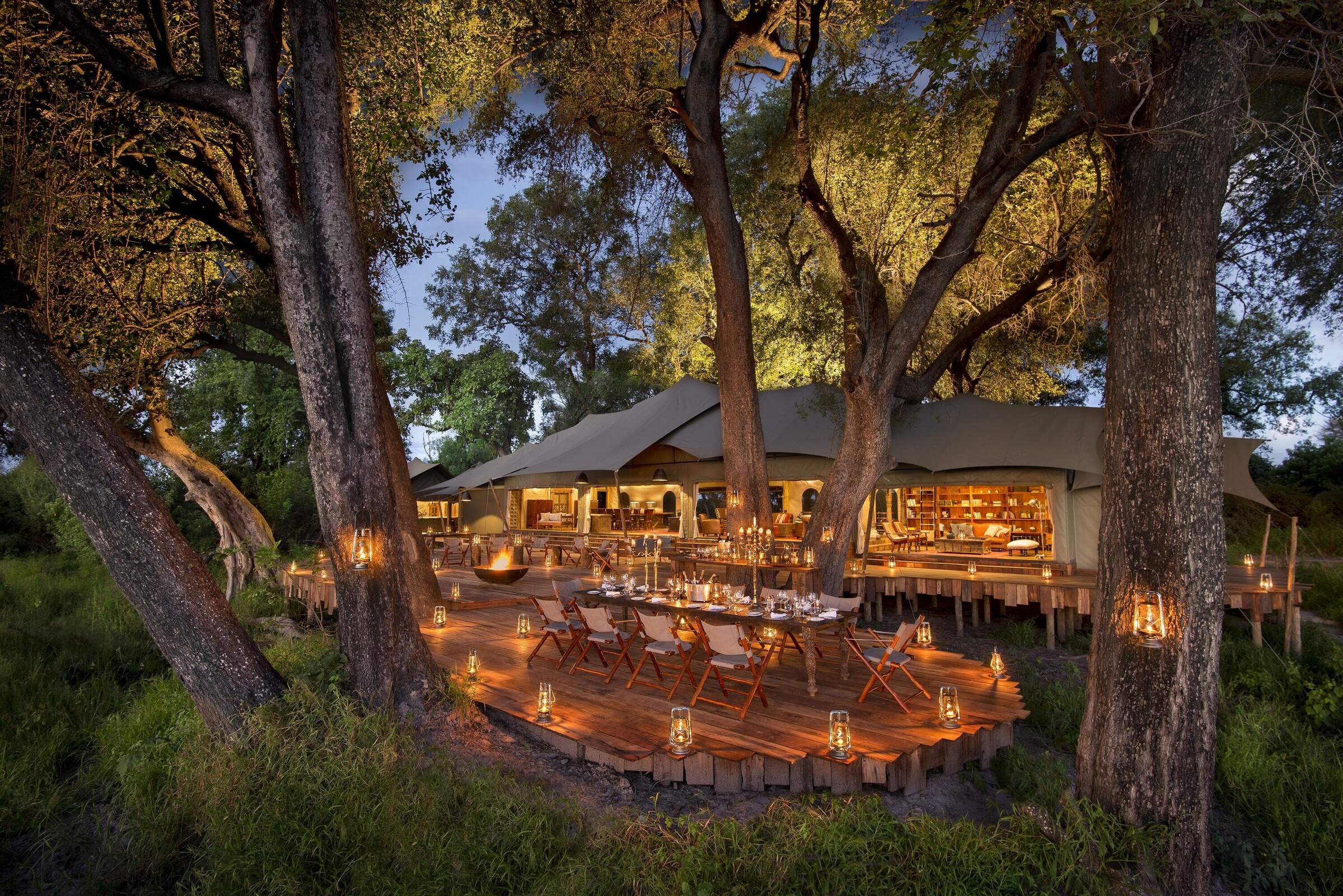
Duba Plains Camp
Duba Plains Camp is a traditional yet luxurious safari camp, best known for the thrilling lion behavior interaction that is often see during the day.
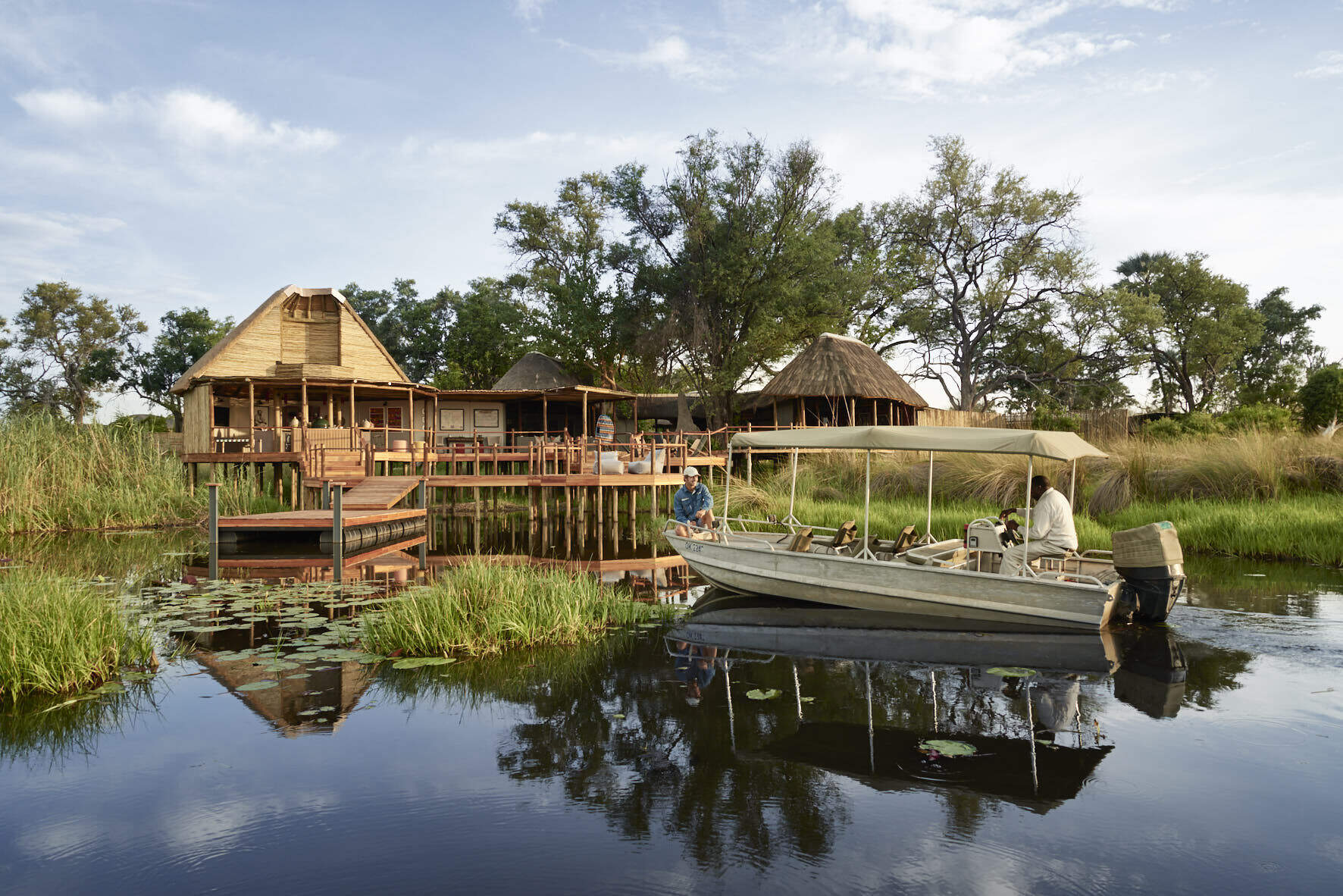
Baines' Camp
Baines' Camp is a well-run, intimate camp in a pretty part of the Okavango, offering a range of activities and the option to spend a morning walking with elephants.
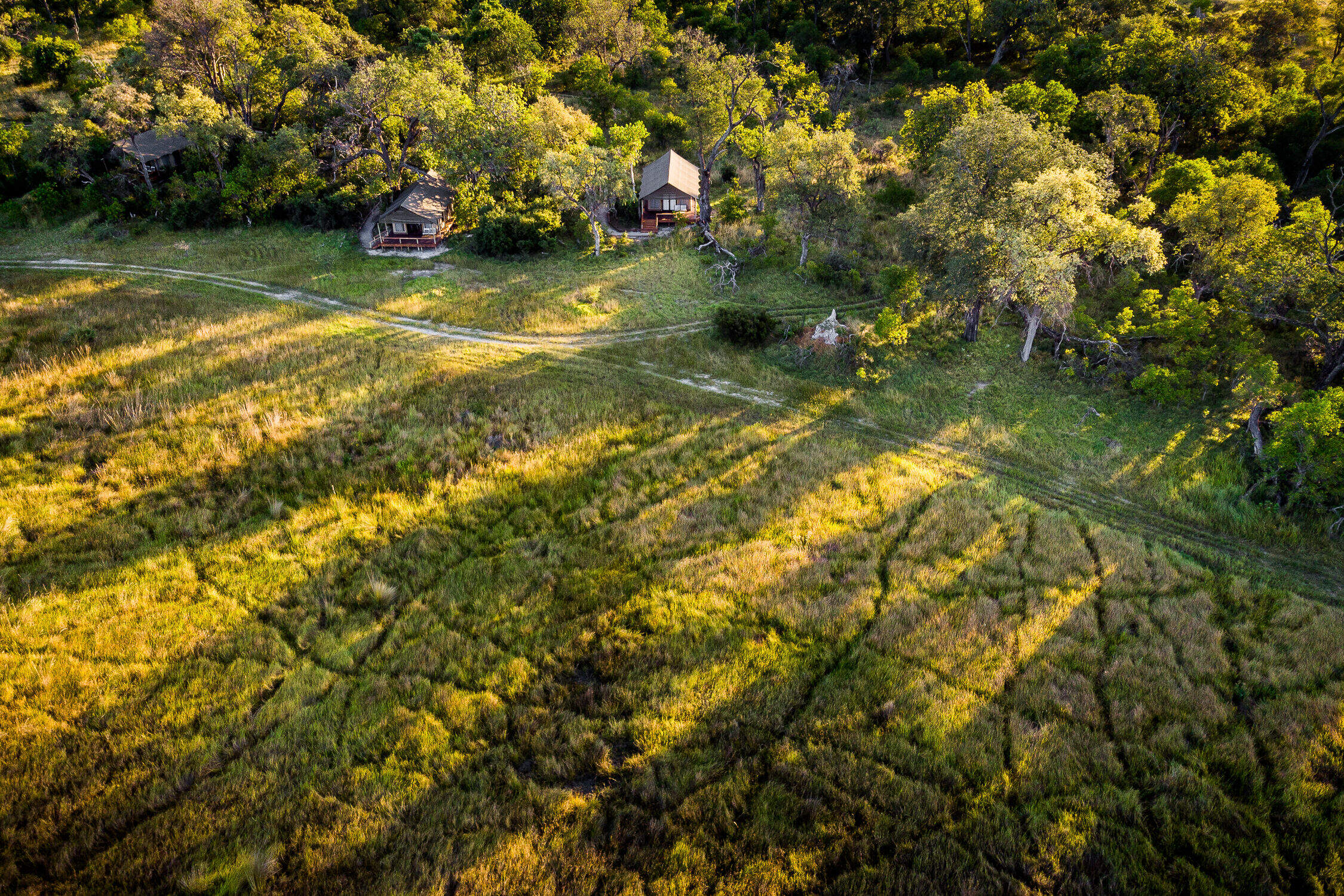
Stanley's Camp
In a private concession south of Moremi Game Reserve, Stanley's Camp offers 4WD game drives, seasonal water activities and a superb elephant interaction.
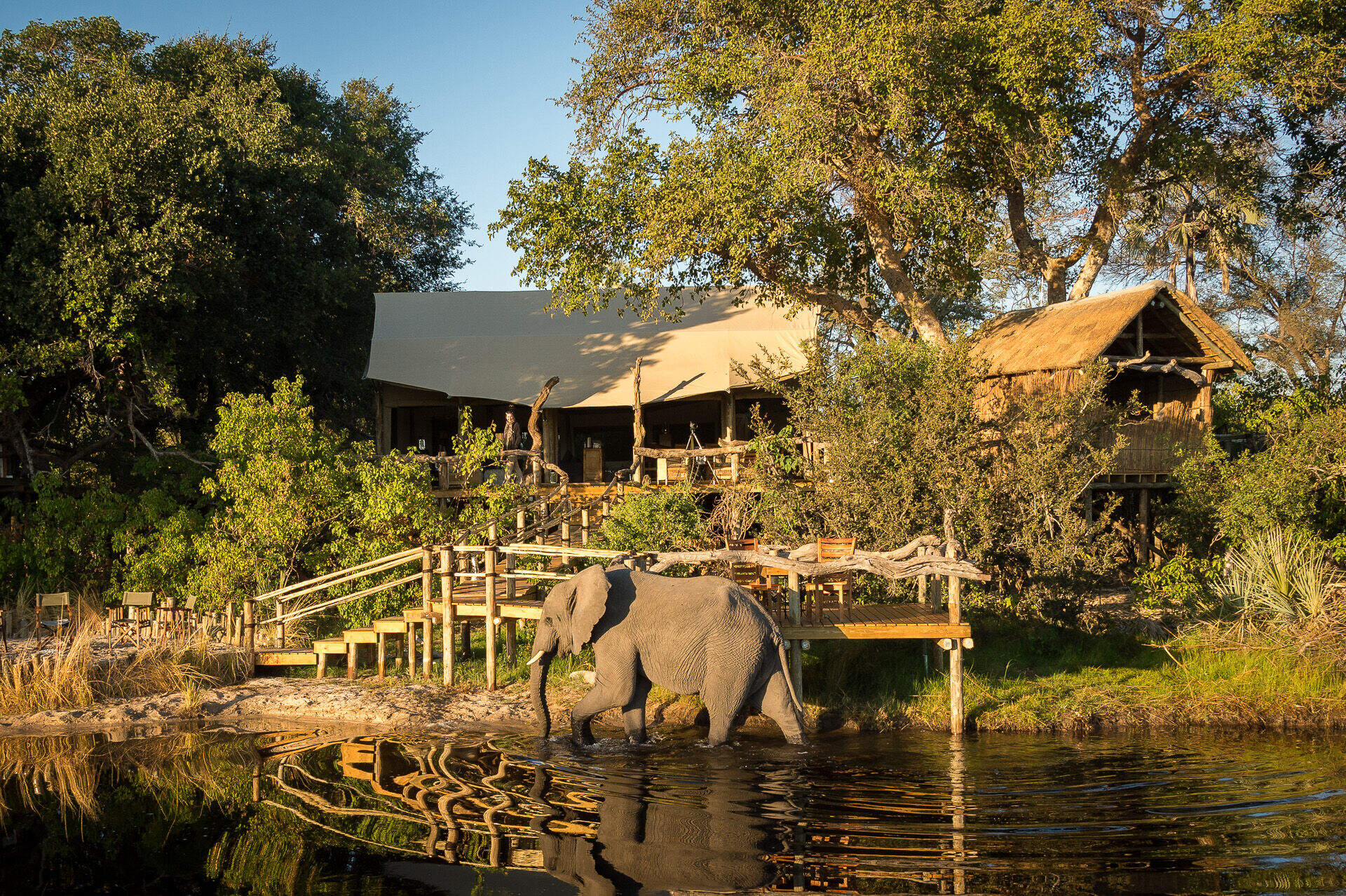
Little Tubu
Little Tubu is a new, traditional camp with just three tented chalets and a distinctive tree-house feel. The areas around it can be explored by water and land-based activities year round.
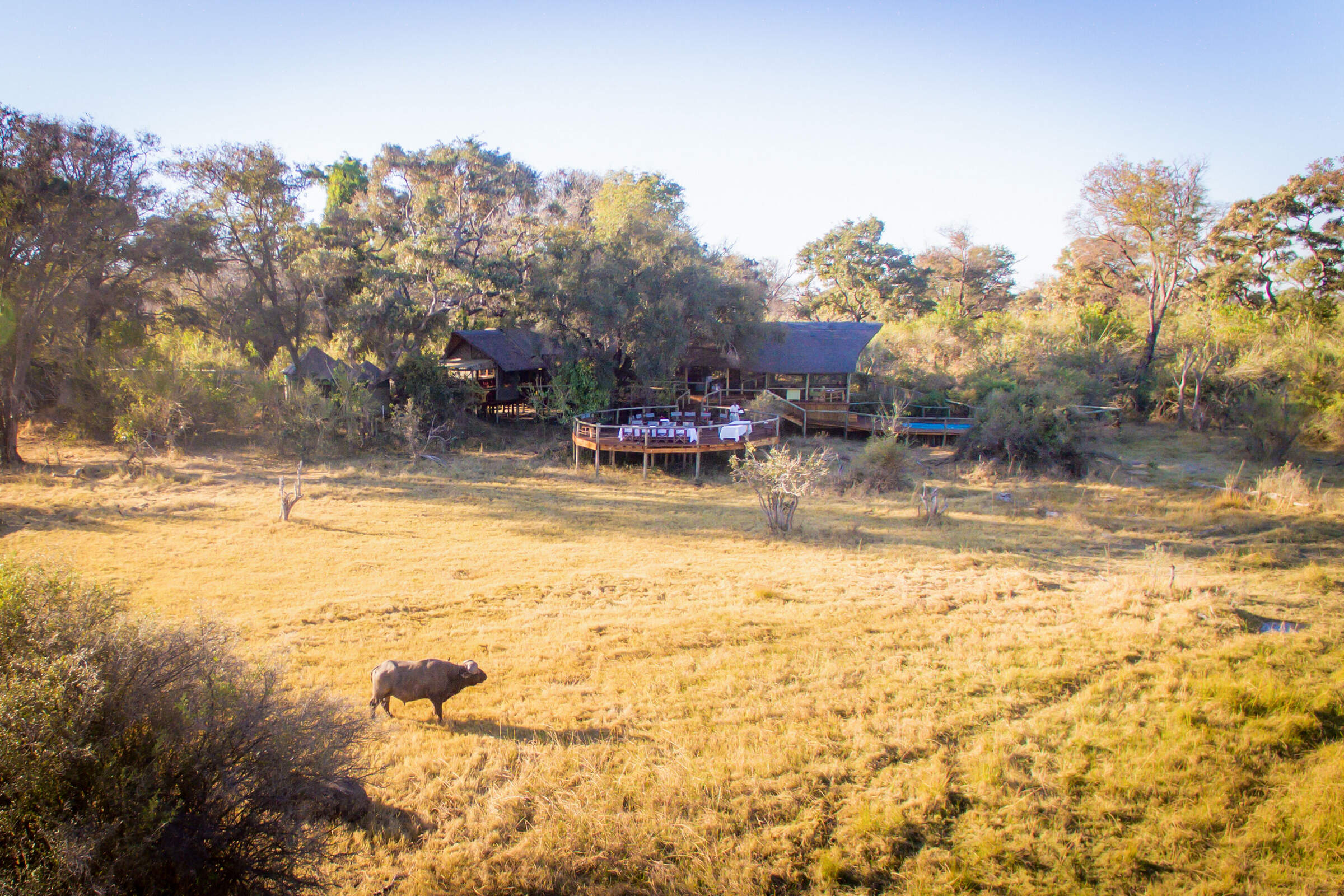
Rra Dinare
Located in a private concession in the southern reaches of the Okavango Delta, overlooking the Gomoti River, Rra Dinare is a traditional-style, well-priced camp.
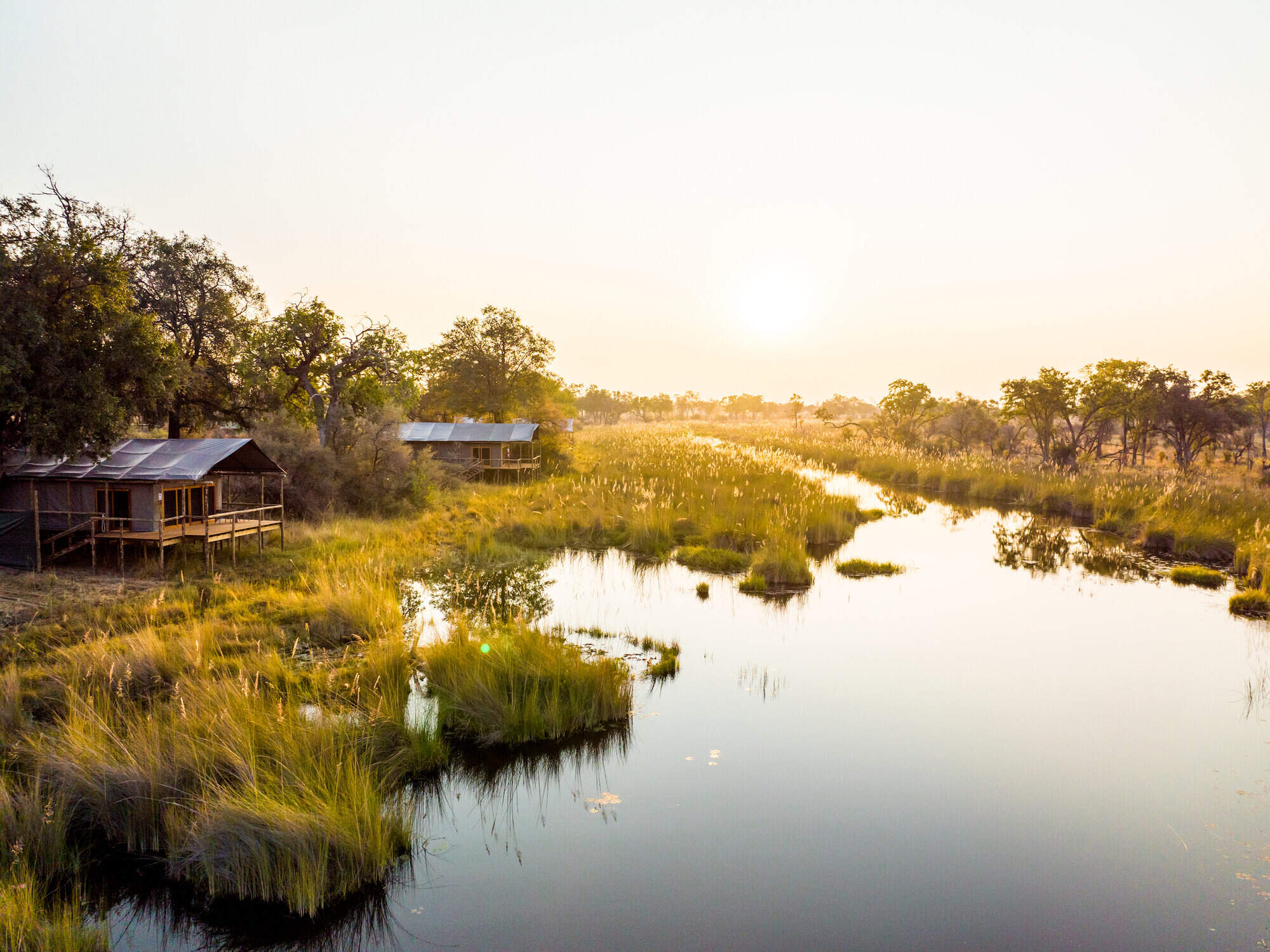
4 Rivers
4 Rivers is a new camp in a previously in accessible area of the excellent Kwara concession.
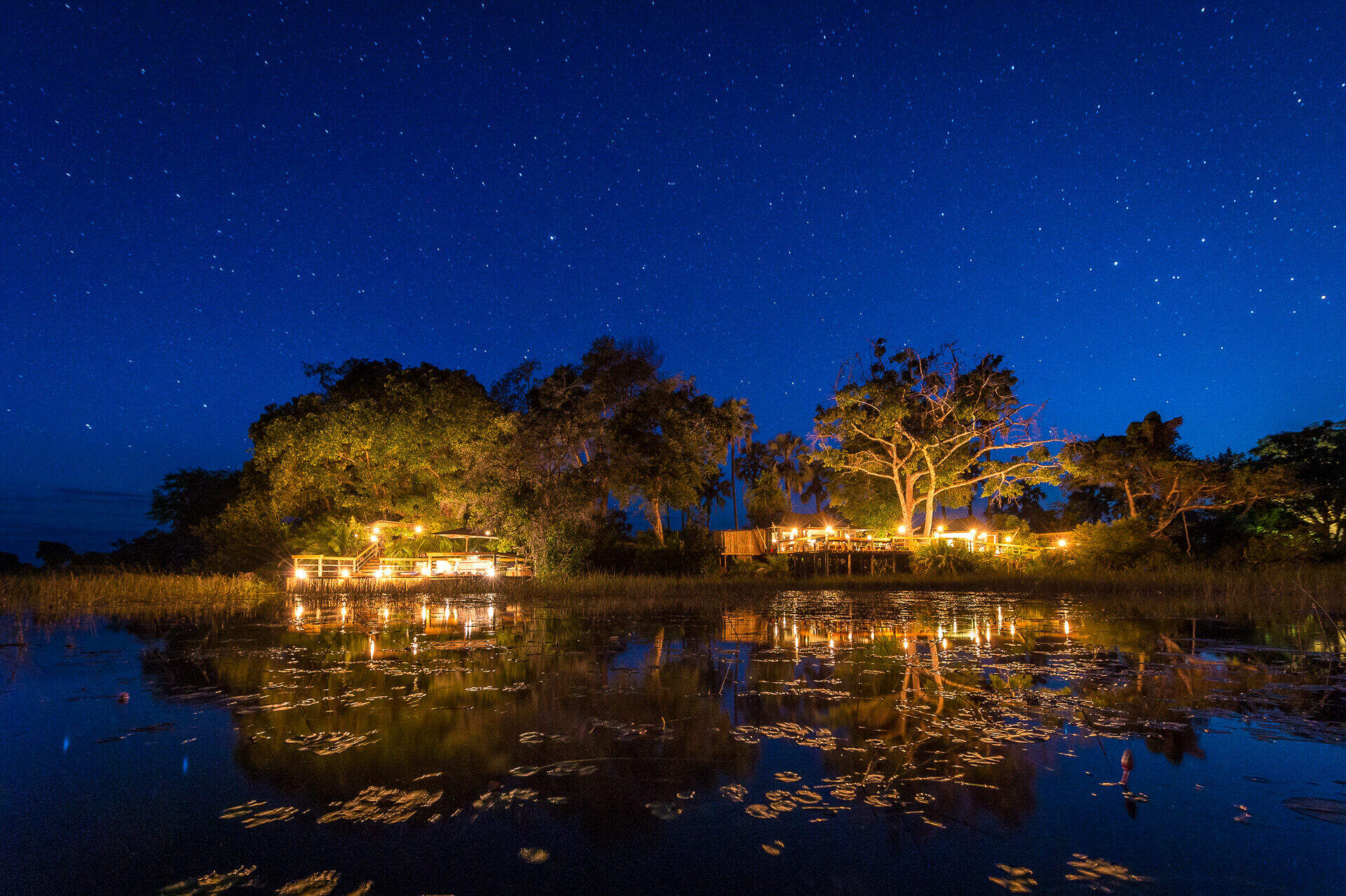
Pelo Camp
In a pristine wilderness environment deep in the Okavango Delta, the seasonal Pelo Camp is tented yet comfortable, with activities focusing on excursions by mokoro.
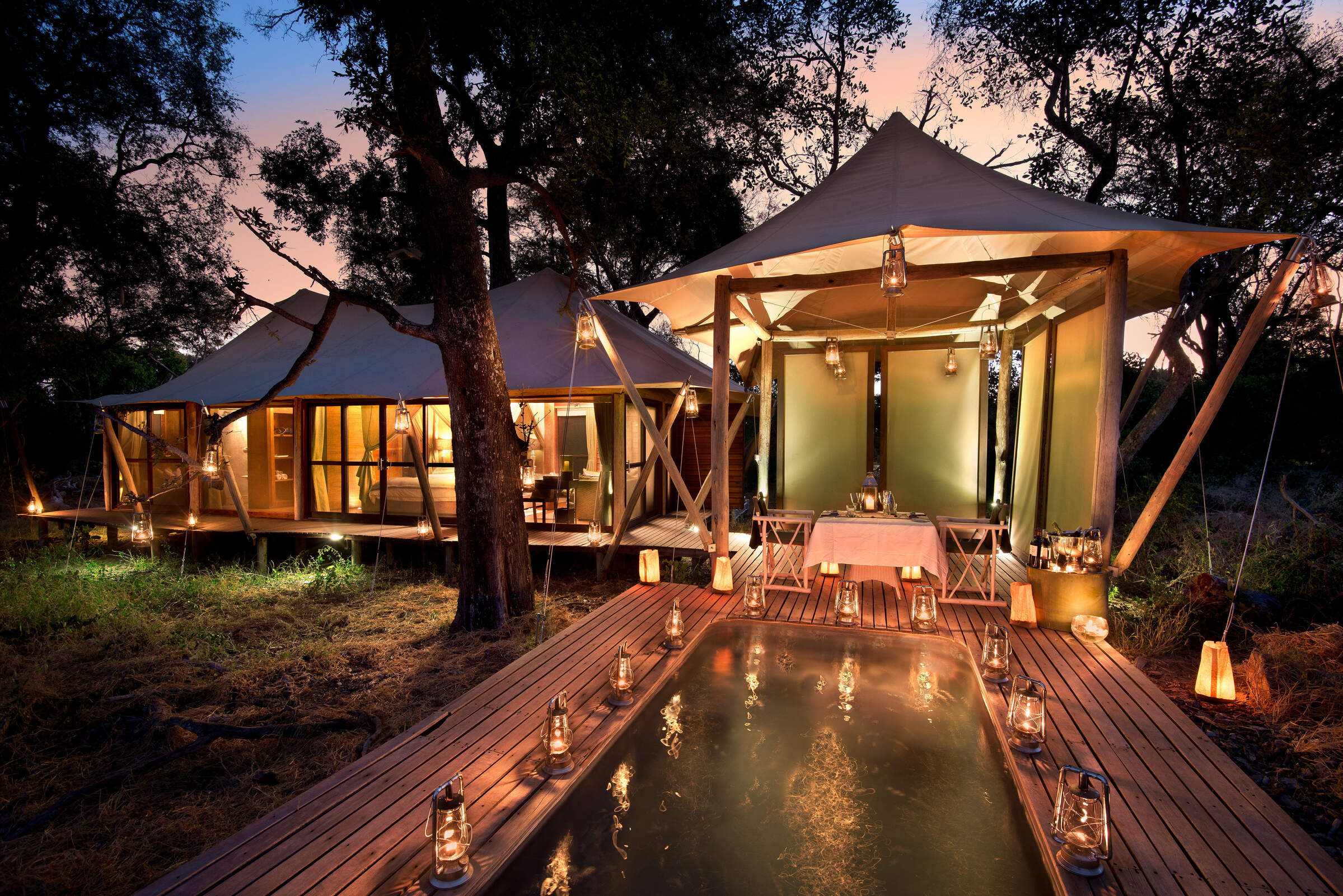
Xaranna
Xaranna is a plush tented camp amongst the idyllic waterways and islands of the Delta. Each air-conditioned tent has a plunge pool. Water activities and pampering are the focus here.
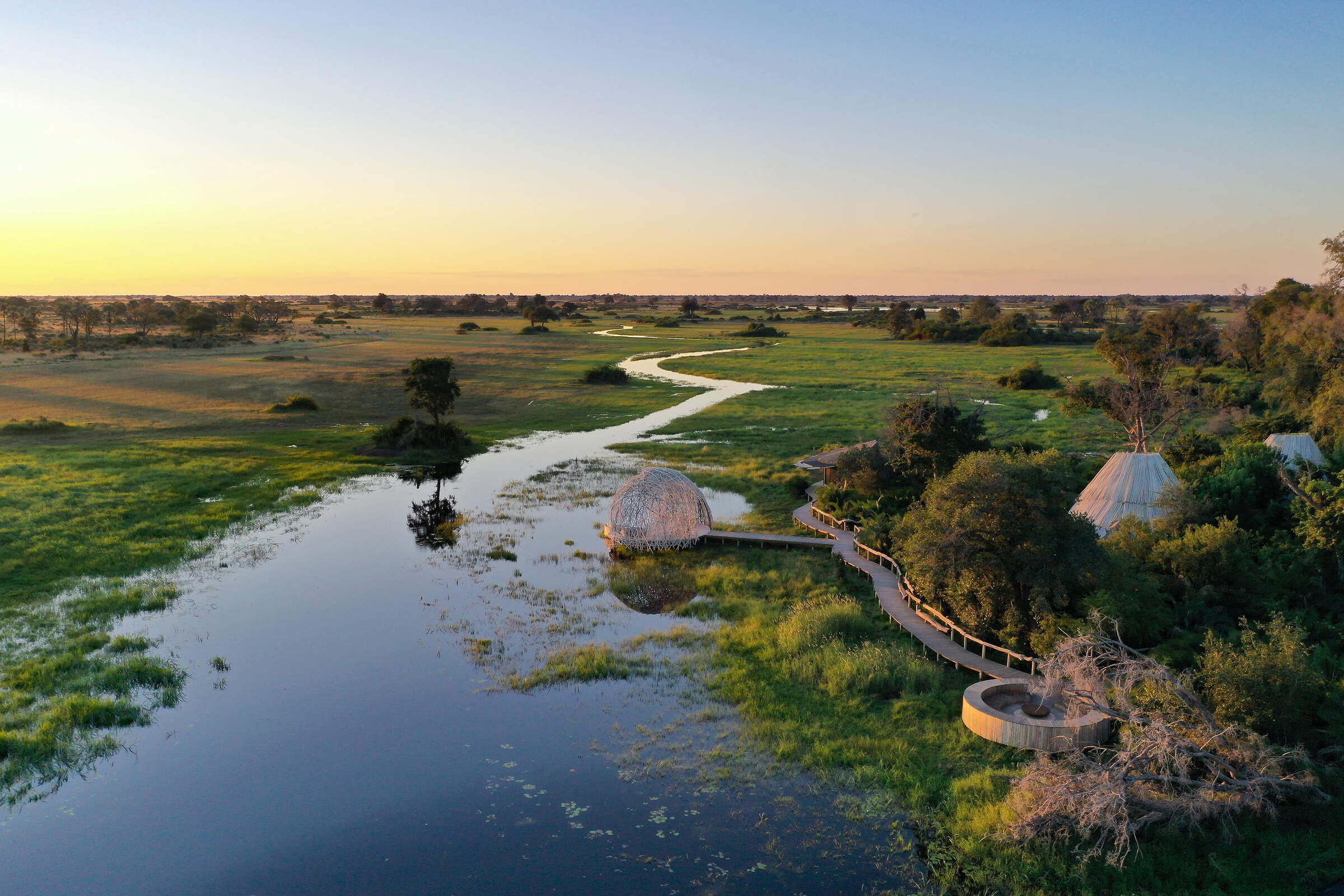
Jao Camp
In a beautiful area with fantastic water activities, Jao combines an idyllic location with high levels of luxury and service, and a top-end spa.
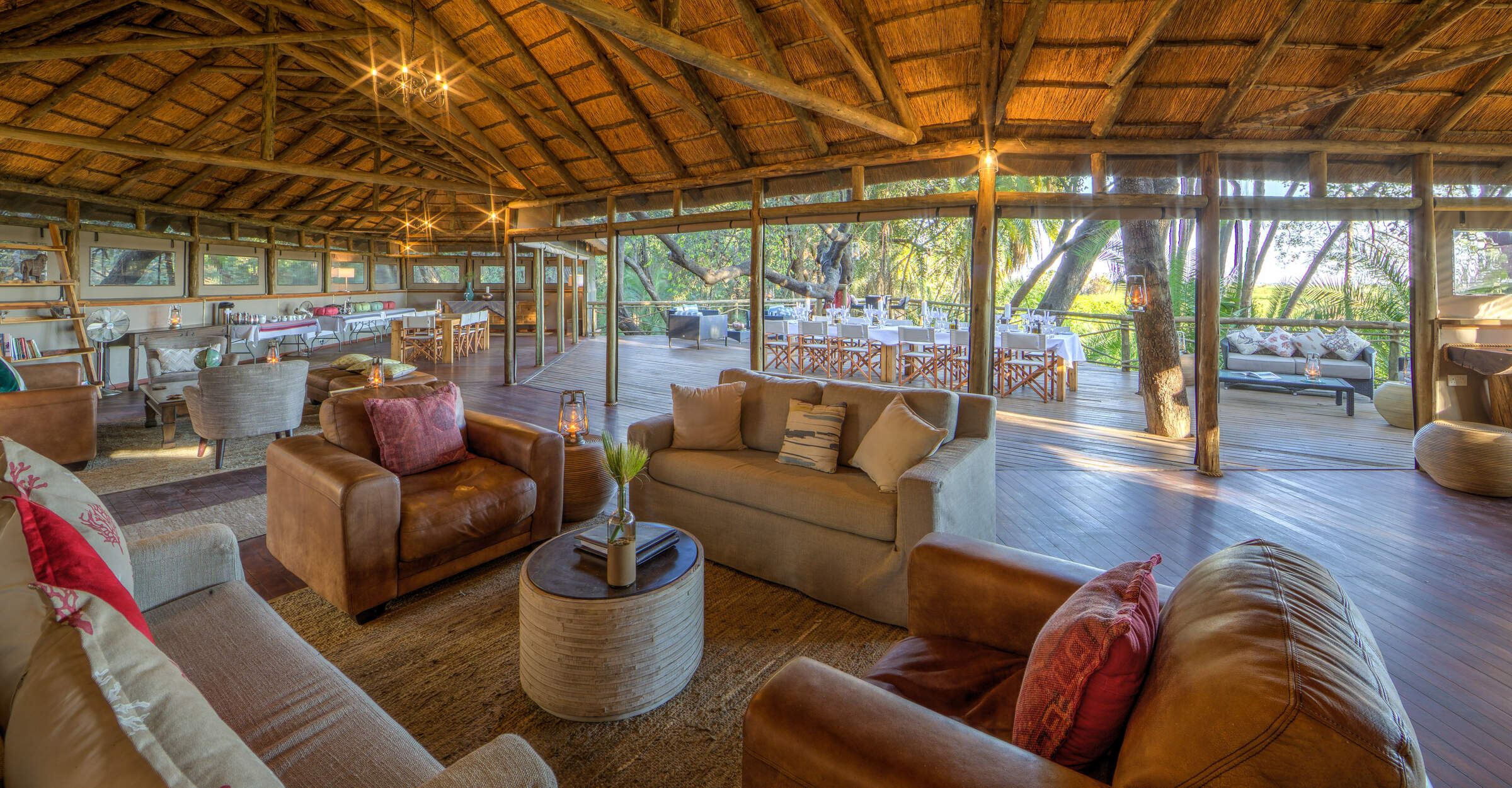
Setari Camp
Setari Camp stands on an island dotted with palm trees, close to the base of the Okavango's 'Panhandle", offering primarily water-based activities.
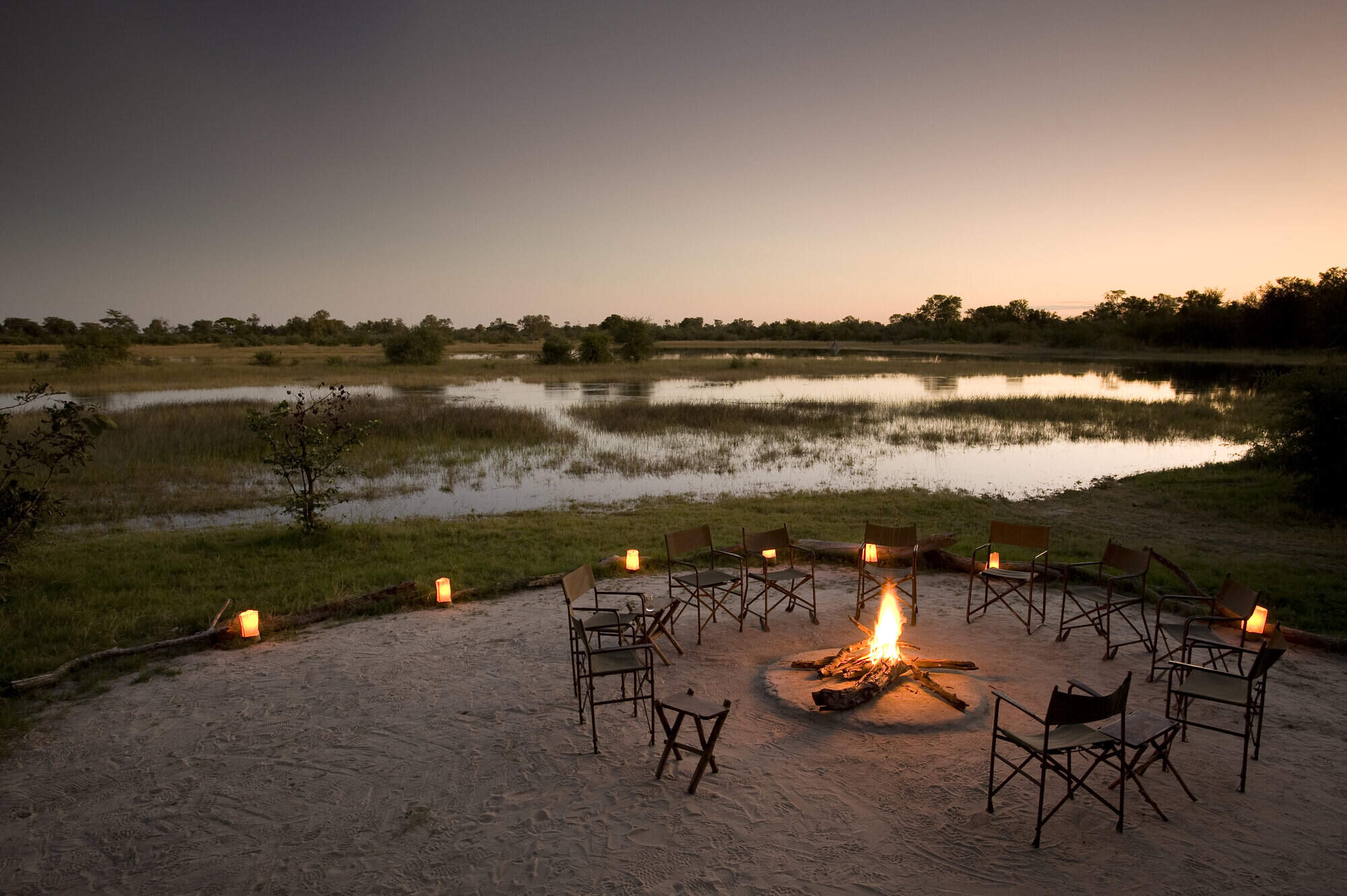
Okavango Explorers
The traditional, tented Okavango Explorers Camp offers a mix of walking, canoeing and game drives led by great guides in a wildlife-rich area.
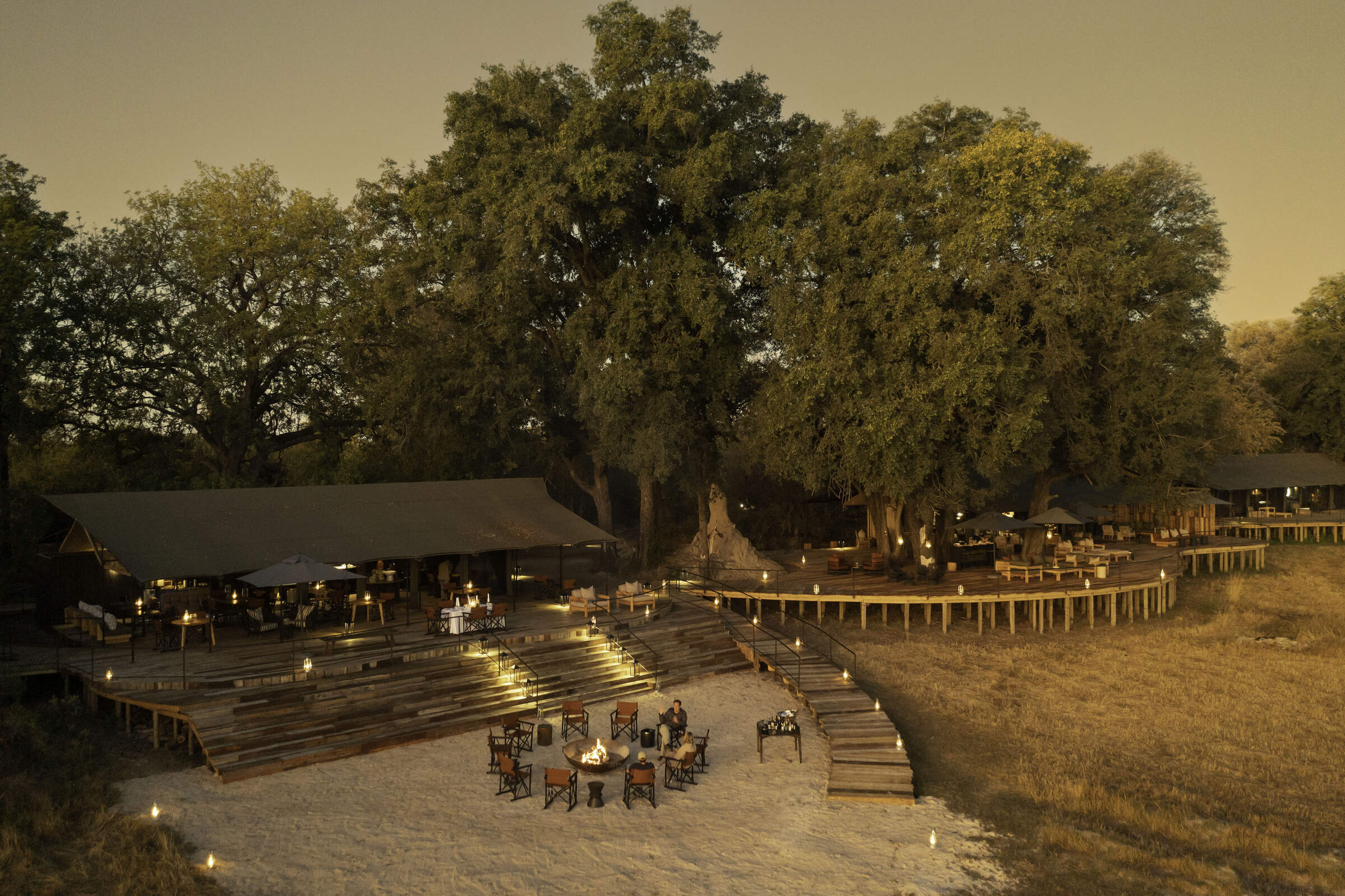
Kiri Camp
Kiri Camp is the latest Okavango offering from the excellent team behind Machaba. In an exciting new location in the heart of the Delta we cannot wait to visit this new camp.
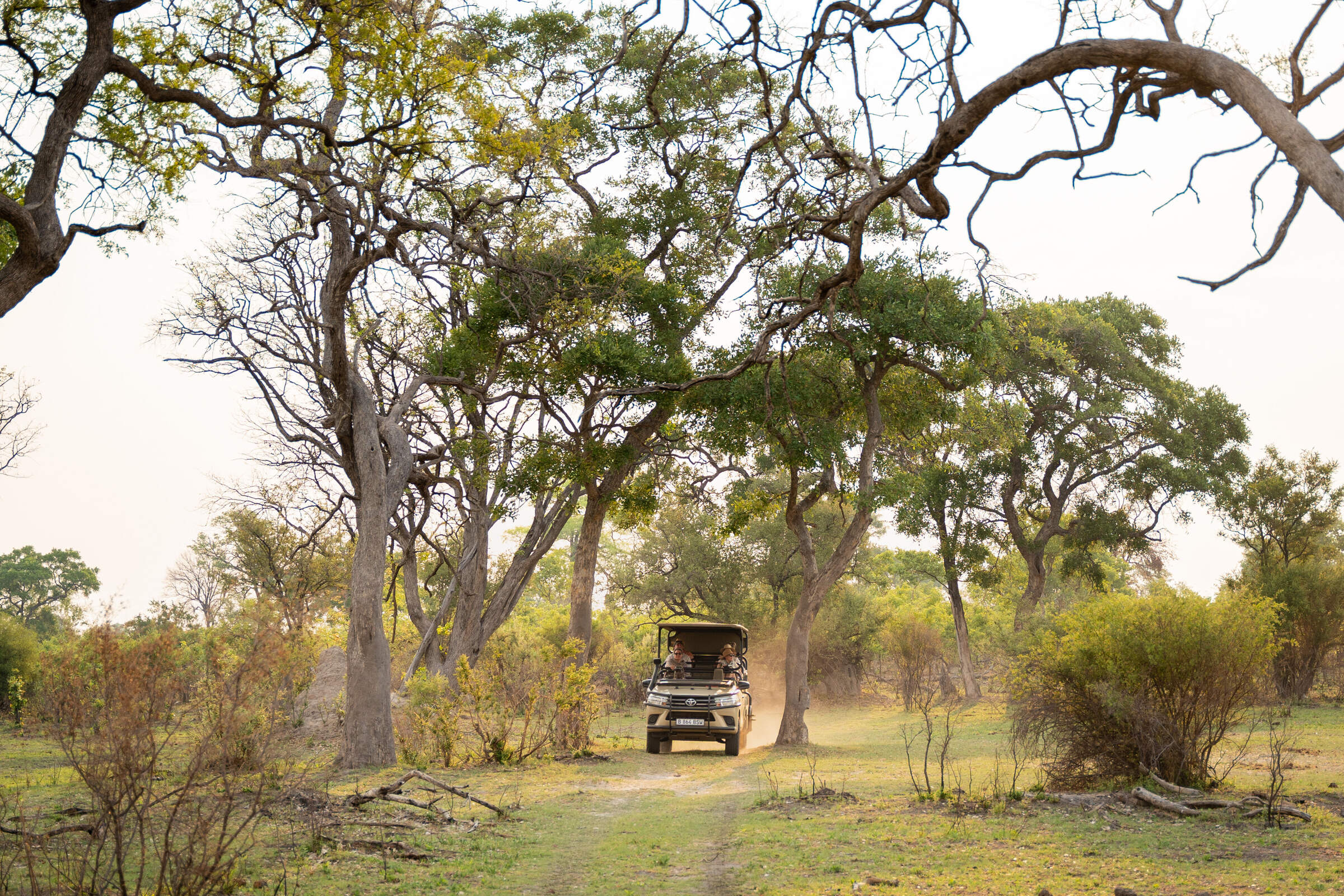
Karangoma
New for 2024, Karangoma is a classic, tented camp offering walking, canoeing and game drives, in partnership with the local Bukakwe San clan.
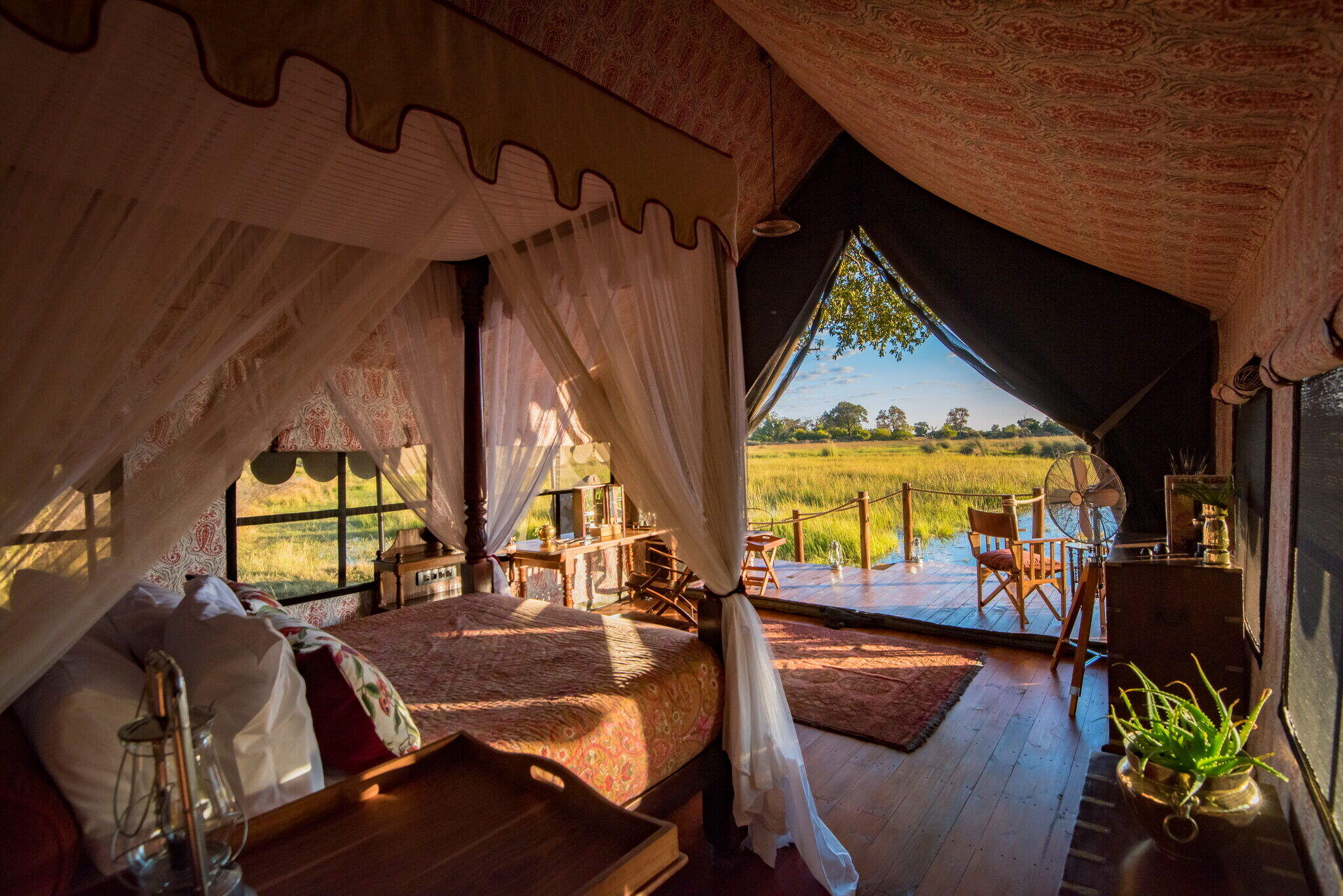
Duke’s Camp
On a remote island within a large concession, the romantic Duke's Camp and smaller Duke’s East are nestled among mature trees overlooking wildlife-rich plains and waterways of the Okavango.
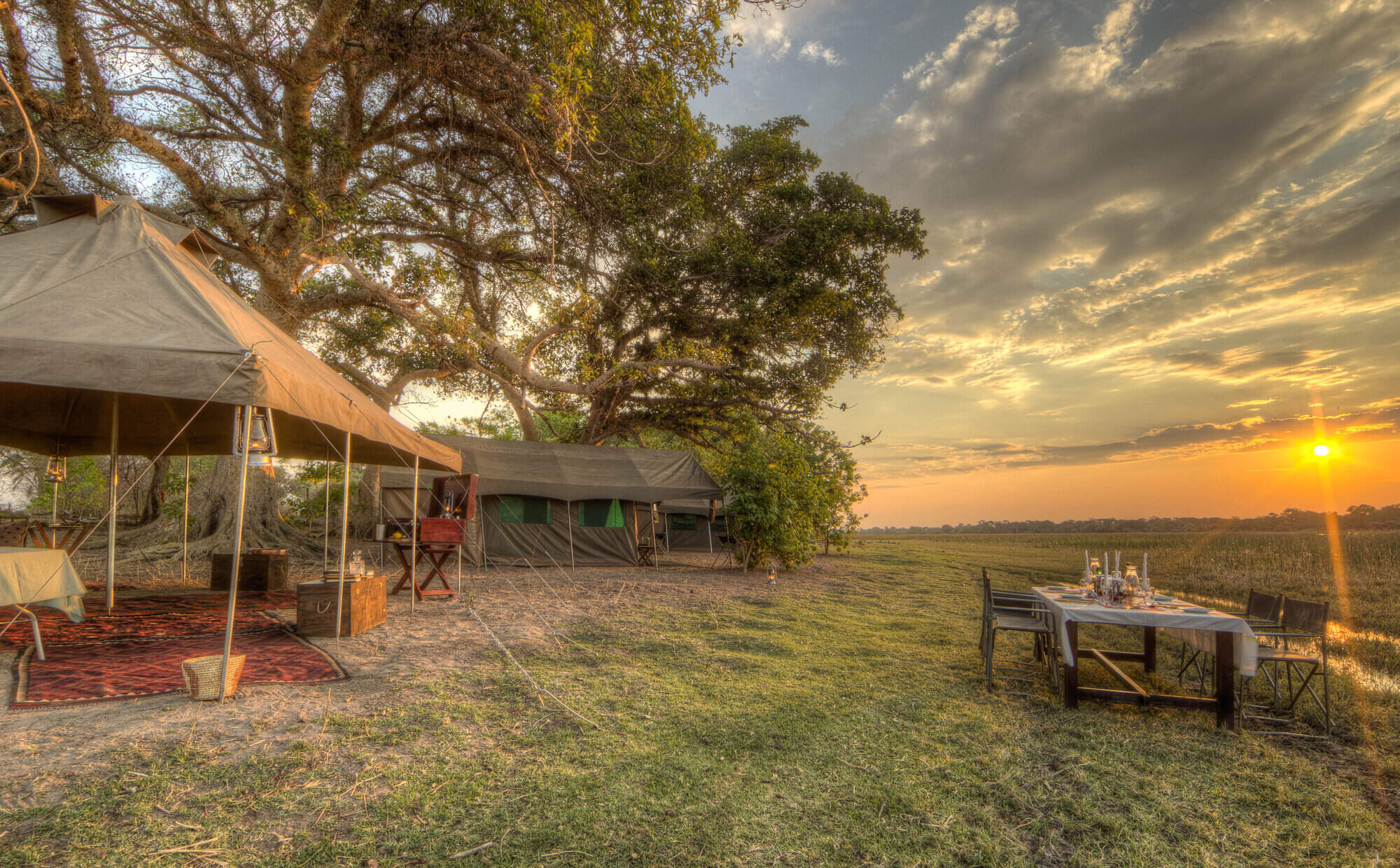
Okavango Walking Safari
The Okavango Delta Walking Safari camps in a secluded Okavango Delta Reserve where there are few roads; the ideal location for a walking trail led by an expert guide.
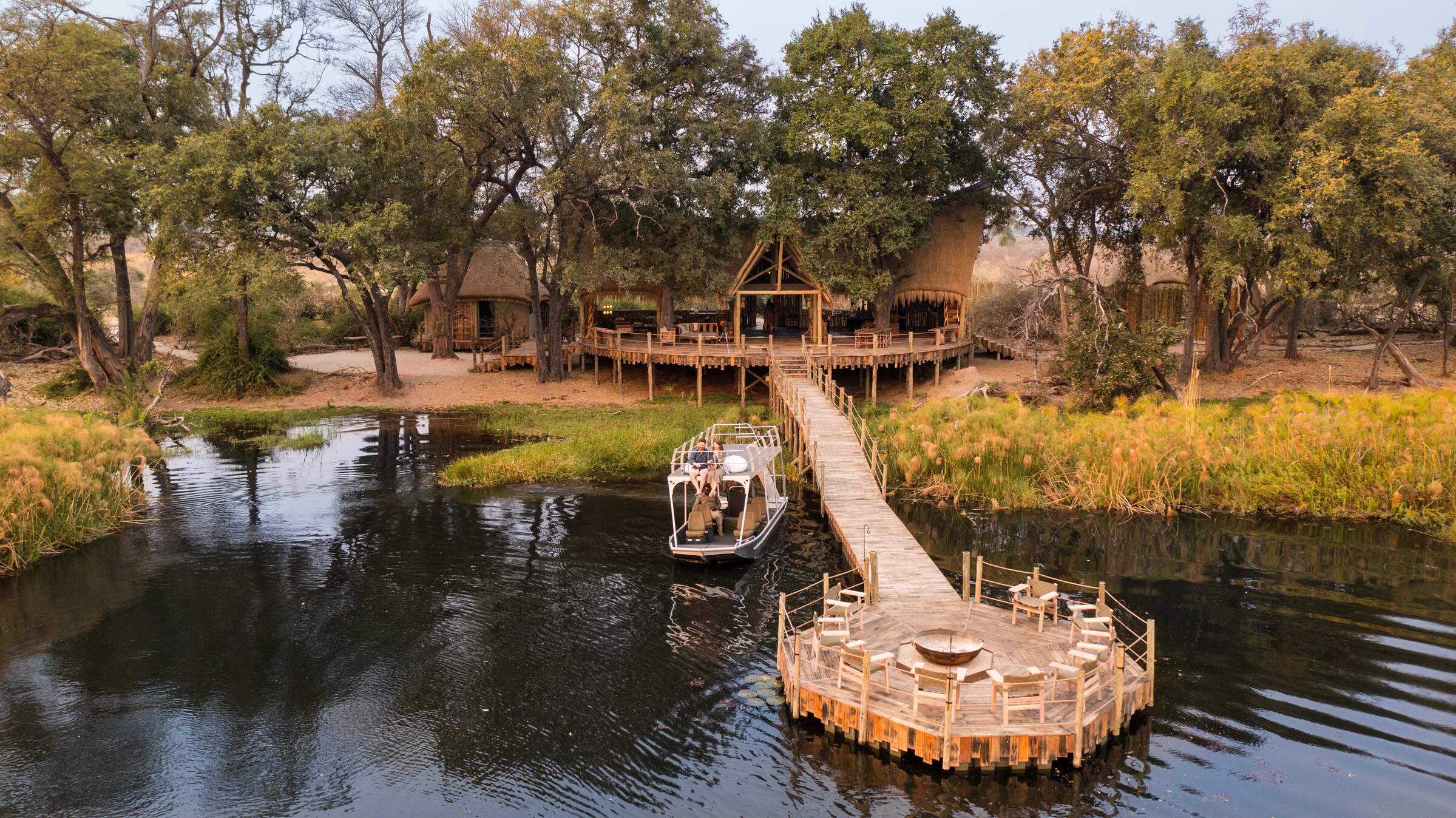
Sitatunga Island Camp
Tucked away in a pristine corner of the Okavango Delta, the exclusive Sitatunga Private Island is a water-based camp offering boating, mokoro trips and fishing.
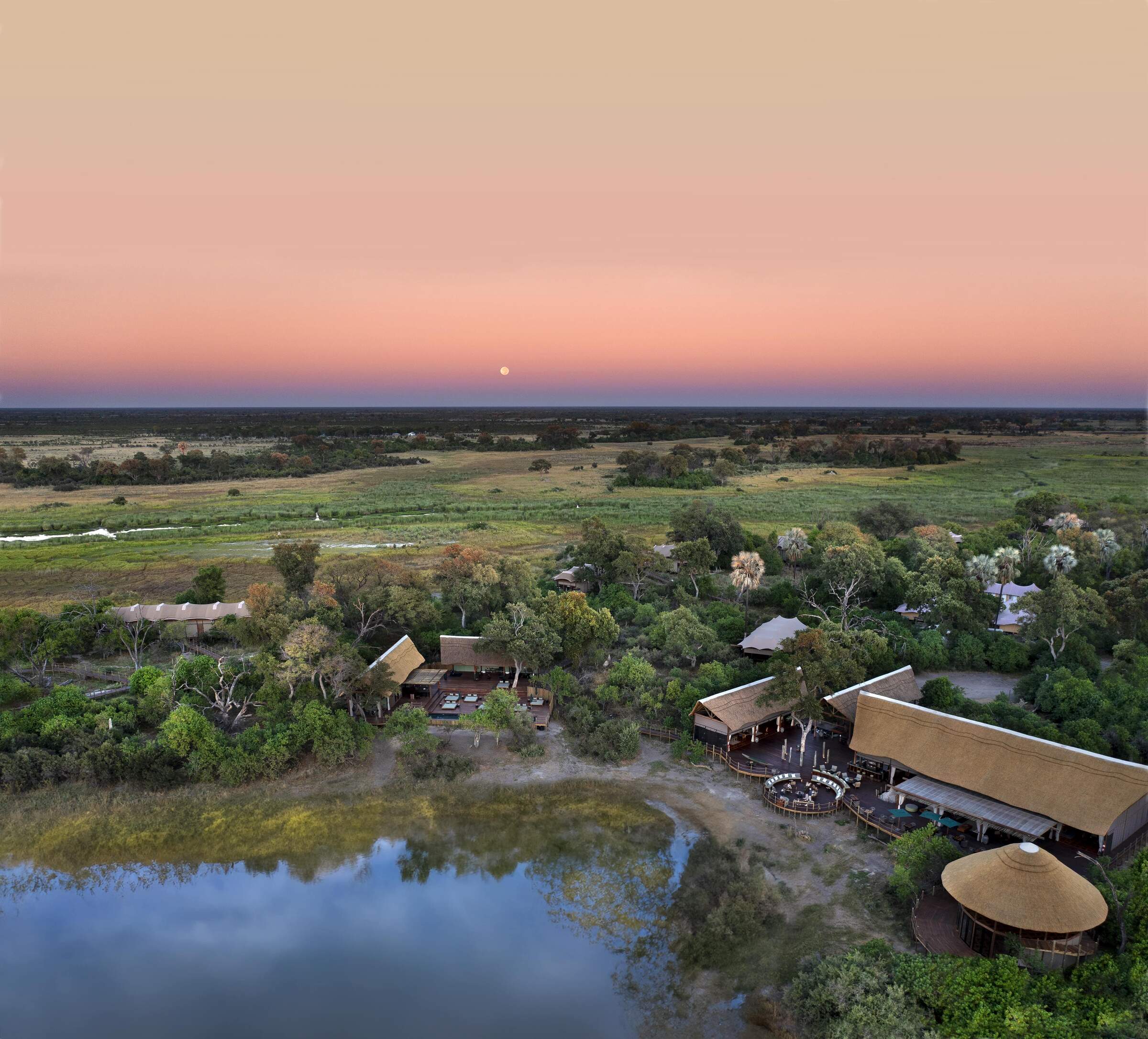
Atzaro Okavango
With a high level of tasteful luxury promised at Atzaro, we think it will be best suited to travellers seeking a touch of pampering alongside their safari.
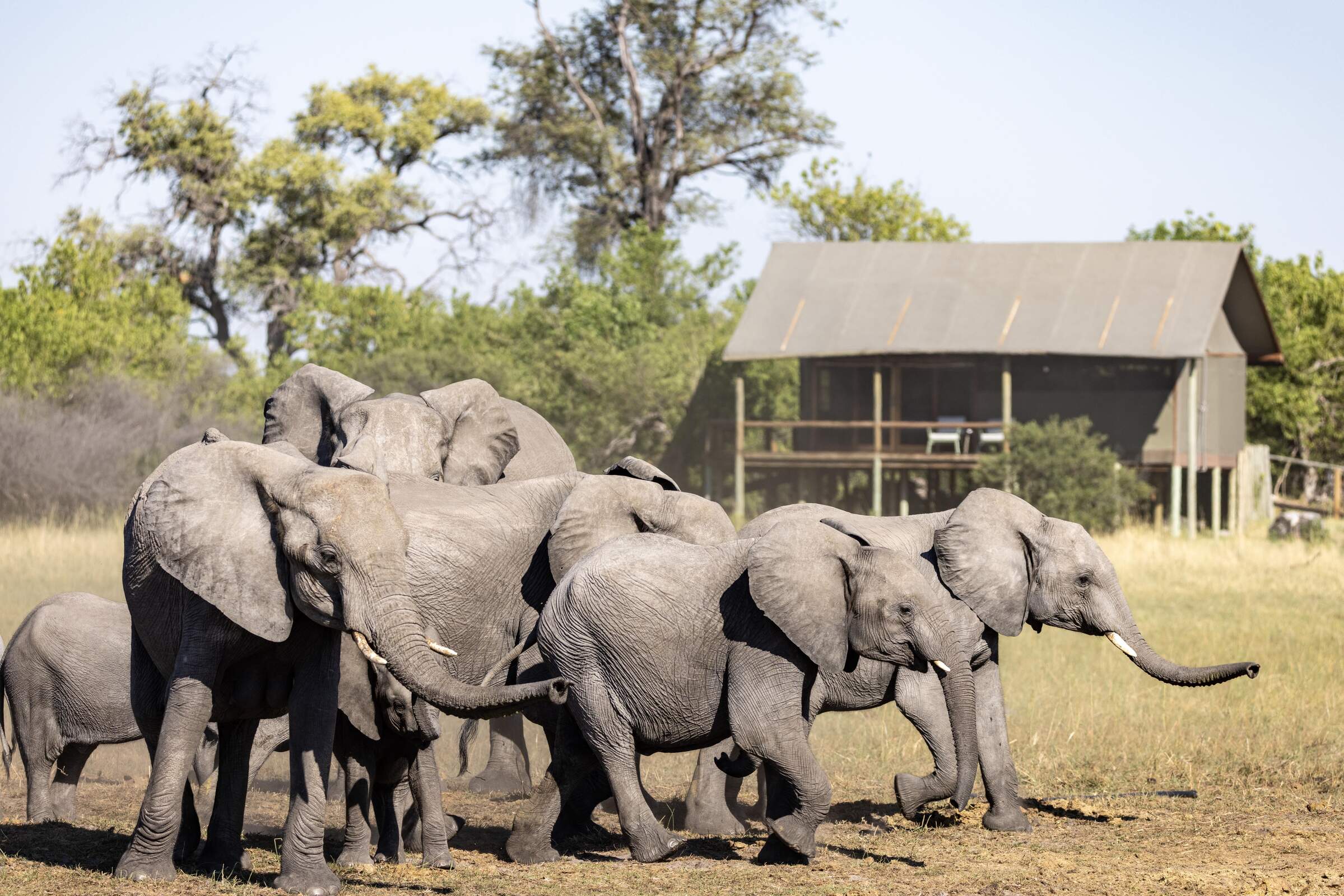
Mokolwane
Deep in the heart of the Okavango, the simple Mokolwane focuses on wildlife viewing in a large, untouched area.
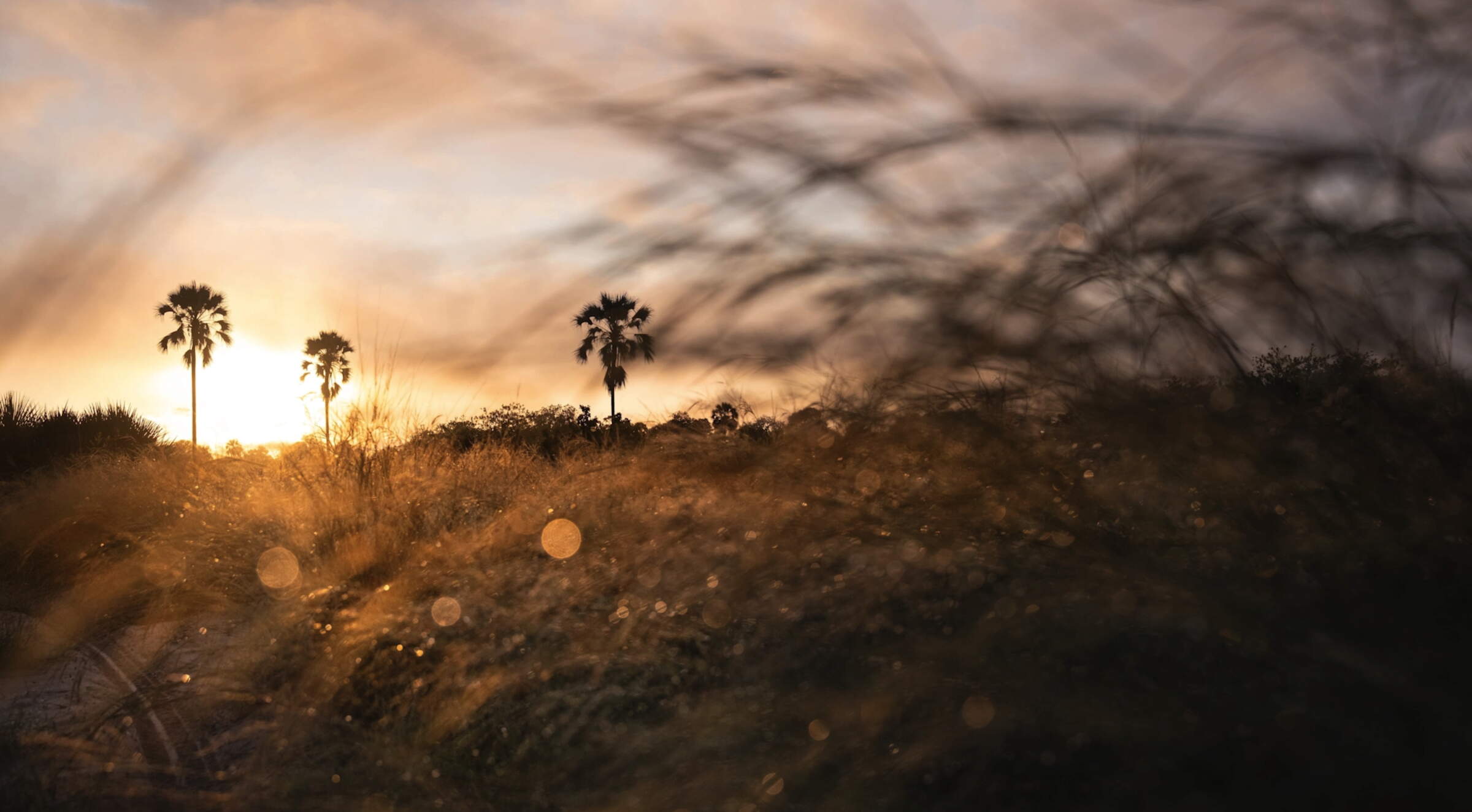
Singita Elela
Singita Elela is an exclusive safari camp on the western side of the Botswana's Okavango Delta - offering superb wildlife and water based opportunities depending on the seasonality.
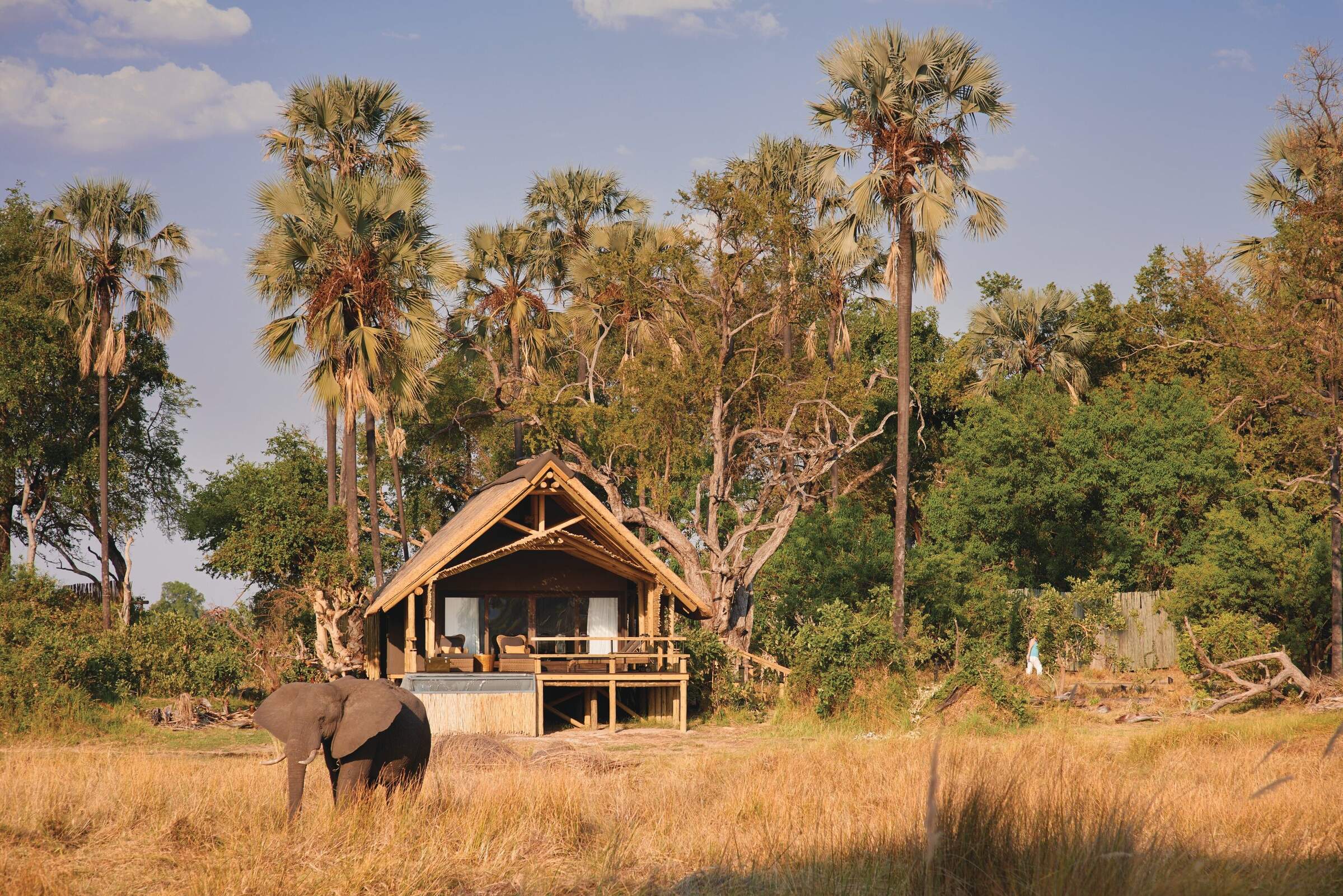
Eagle Island Lodge
Eagle Island Lodge is a luxurious camp with international-style facilities including air conditioning and intercom in each room; offering water based activities in the Okavango Delta.
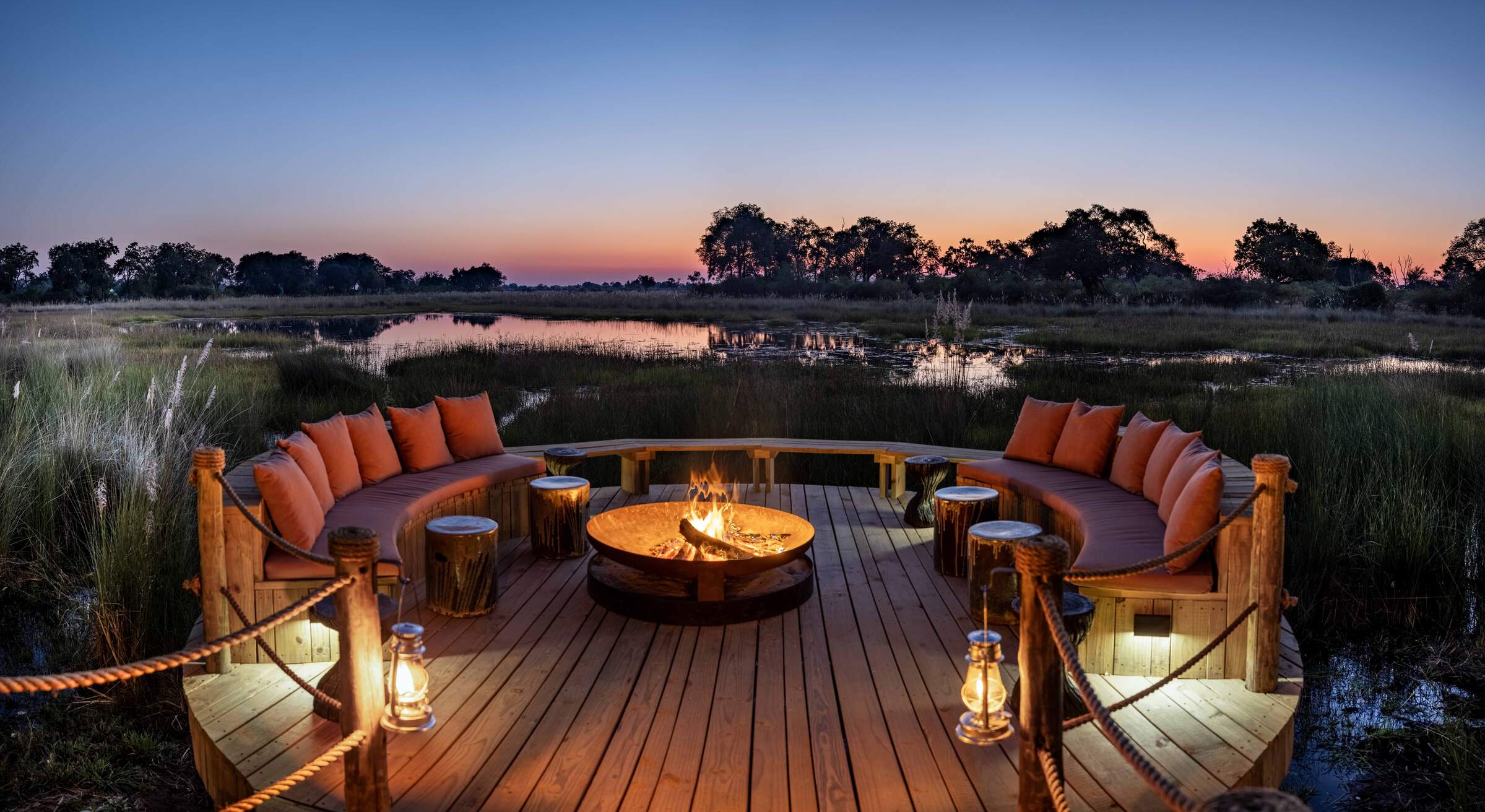
North Island Okavango
Deep in quintessentially “Okavango” territory, between deep-water and dry-land habitats, North Island focuses on a luxury safari experience with very good wildlife viewing opportunities.
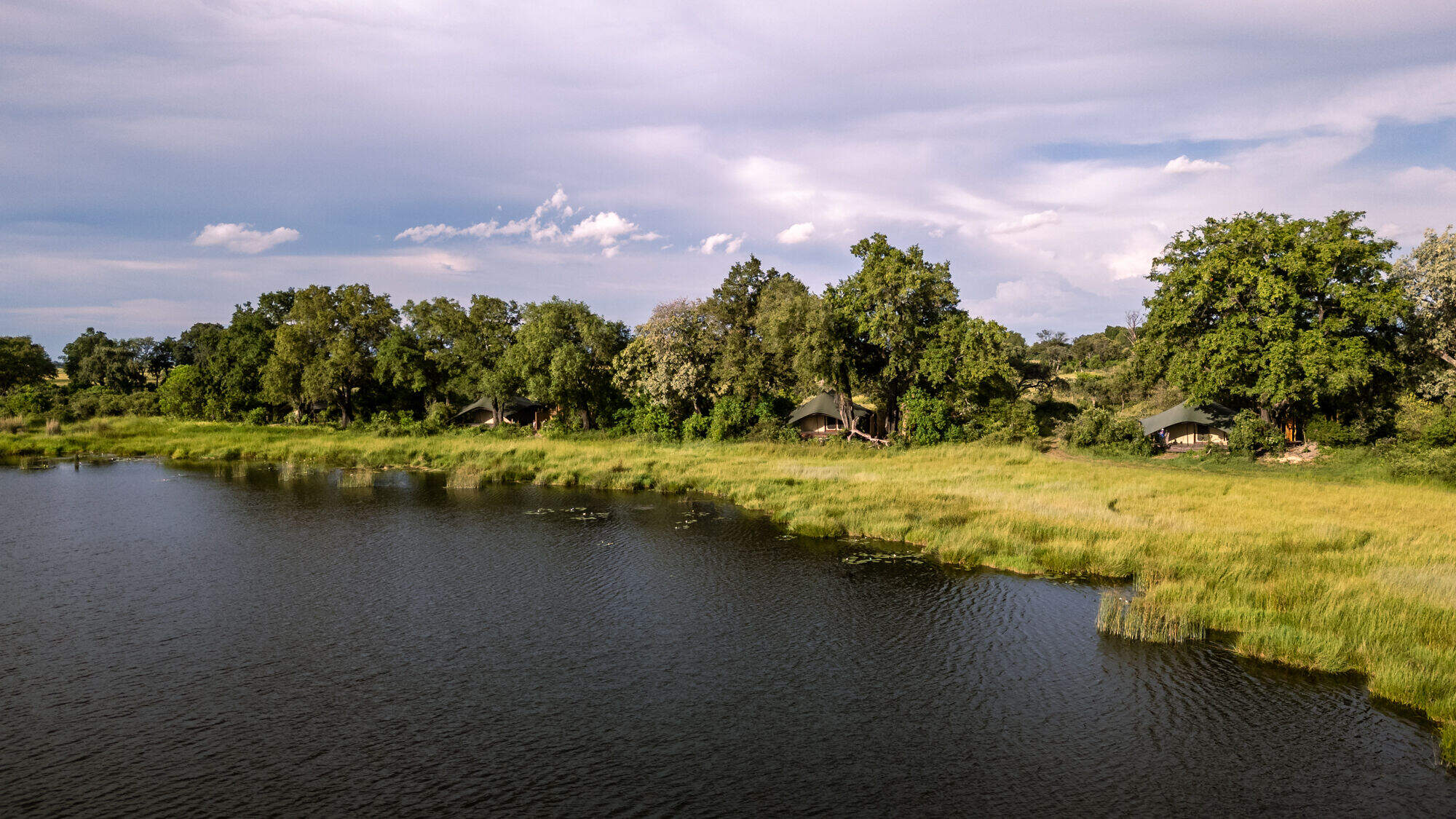
Maxa
Overlooking the permanent Maxa Lagoon, Maxa has a range of activities on offer, combining understated luxury with comfort in a remote location.
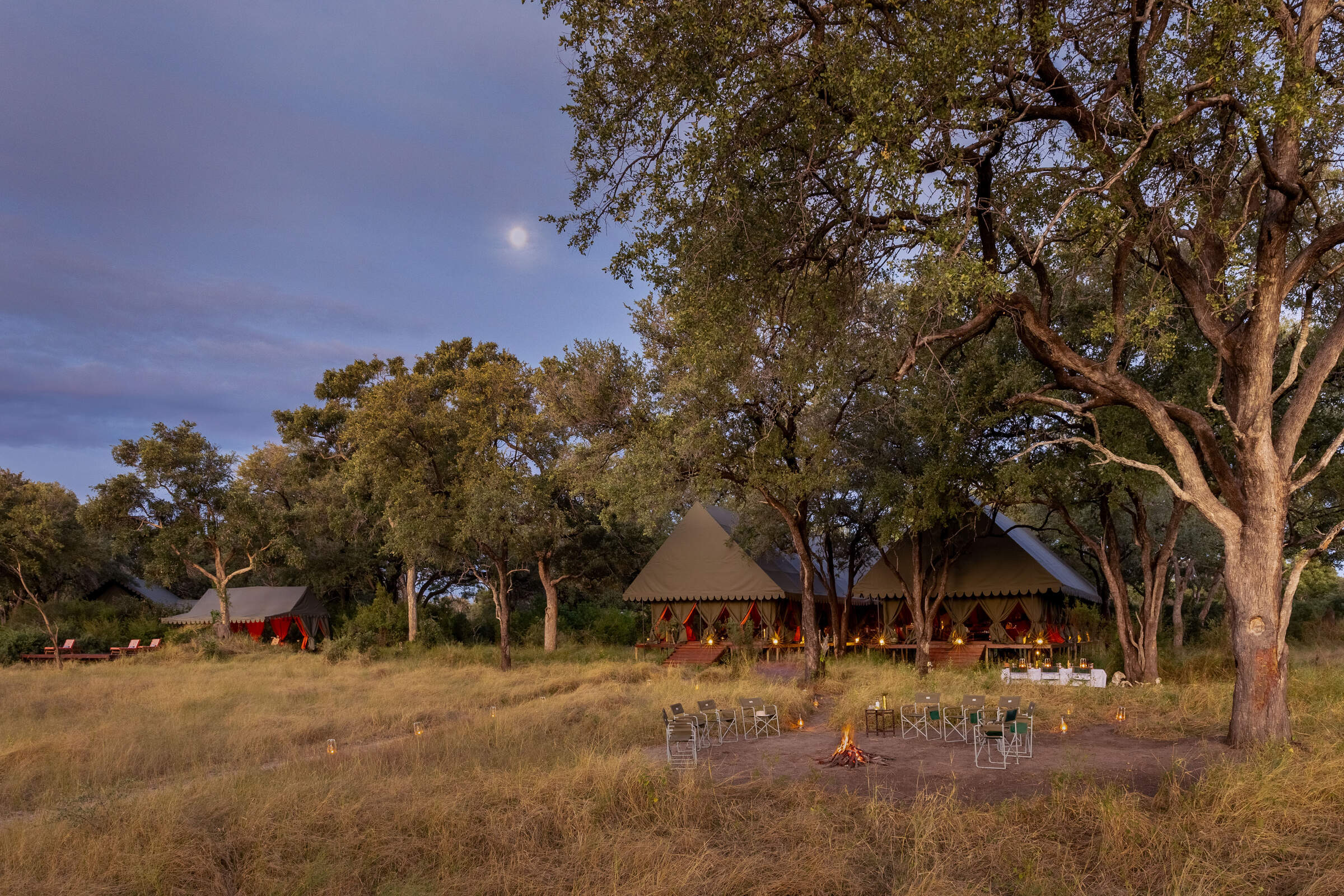
Mbamba
Deep within the northern Okavango, the classically styled Mbamba is located in the same wildlife-rich private concession as its sister camp Dukes.
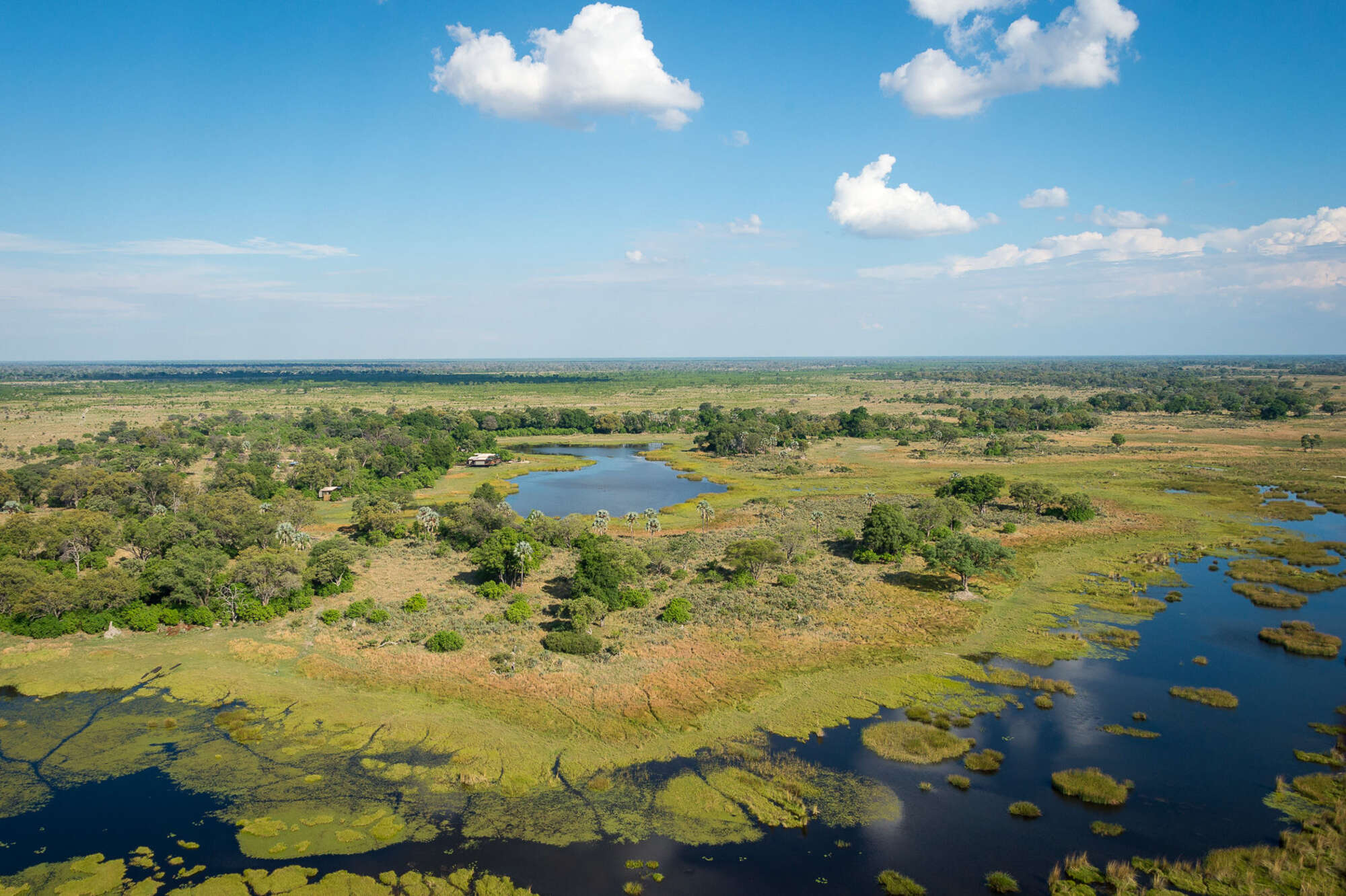
Qorokwe Camp
Luxurious and contemporary, the relatively new Qorokwe Camp is a gem in the Okavango Delta, offering land- and occasionally water-based activities in a prime wildlife area.
When to go to Okavango Delta Safari Reserves
Our month by month guide: What it's like to visit Abu Camp in Okavango Delta Safari Reserves
Jan
Feb
Mar
Apr
May
Jun
Jul
Aug
Sep
Oct
Nov
Dec
Okavango Delta Safari Reserves in January
January marks the peak of the rainy season in the Okavango Delta. Evening rains are often short but heavy, accompanied by occasional dramatic thunderstorms. Temperatures remain high, although cooler than the preceding months of October to December. Wildlife can be harder to spot as animals spread out across the lush floodplains.
This month is a birdwatcher’s paradise, with migratory species in abundance over flooded areas. Rising water levels in parts of the Delta make mokoro safaris possible, offering serene and immersive experiences. The vibrant greenery and dramatic skies provide stunning opportunities for photography. With relatively low rates and fewer visitors, January is ideal for those seeking a quieter, budget-conscious Botswana safari.
- Warm temperatures with frequent evening showers
- Birdlife at its most spectacular in the Delta
- Wildlife dispersed, but insects and smaller creatures abound
- Excellent availability in Delta lodges and camps
Our view
A good time to visit, with pros & cons
Weather in January
Okavango Delta Safari Reserves in February
February mirrors January’s weather patterns, with heavy rains and slightly cooler temperatures. The Delta’s landscape is at its greenest and teeming with life. Smaller animals, insects, and vibrant birdlife dominate, as many species raise their young. The rains create temporary pools and waterholes, further dispersing larger game, while thick vegetation and tall grass adds to the challenge of spotting big wildlife.
However, Moremi Game Reserve and select areas of the Delta still offer excellent game viewing opportunities. Rising water levels enhance water activities, with boat safaris providing unique access to the Delta’s watery beauty. February is particularly rewarding for photographers seeking lush landscapes and dramatic skies and birdwatchers, with many migratory species present.
- Warm with occasional thunderstorms
- Many animals with young in the Delta
- Big game dispersed throughout wetlands
- Big game dispersed, but viewing improves in drier areas
- Lower visitor numbers and great lodge availability
Our view
This is not a great time to visit
Weather in February
Okavango Delta Safari Reserves in March
March marks the gradual end of the main rainy season in the Okavango Delta. Sunny days become more frequent, with occasional afternoon thunderstorms. The Delta remains lush and vibrant, with wildlife activity increasing as animals finish raising their young and begin congregating around permanent water sources.
Rising water levels make boat safaris a highlight, offering intimate access to the Delta’s waterways. Birdwatching is excellent, with both resident and migratory species thriving. With fewer visitors, March offers a quieter, more personal safari experience.
- Rains taper off but temperatures remain warm
- Occasional small thunderstorms in Delta
- Wildlife begins congregating around water sources
- Ideal conditions for boat safaris
- Few tourists and attractive rates at camps
Our view
A good time to visit, with pros & cons
Weather in March
Okavango Delta Safari Reserves in April
April brings clearer skies to the Okavango Delta, with the landscape remaining green and lush. Night temperatures begin to drop, especially in the southern Delta. The annual floods from Angola start to flow through the northern Delta, filling channels and lagoons, creating ideal conditions for water-based activities like boat safaris.
Wildlife viewing improves as vegetation thins and predator activity increases with cooler evenings. Moremi Game Reserve and the private concessions offer rewarding game drives, and walking safaris on the larger islands, such as Chief’s Island, become popular during this time. Birdwatching remains excellent, with many migratory species still present. April’s combination of pleasant weather, wildlife activity, and relatively low rates makes it a rewarding time to visit.
- Cooler evenings and occasional light showers
- Floodwaters begin to fill Delta channels
- Predator-prey interactions increase
- Ideal for walking safaris and boat trips
- Popular shoulder season, rates fairly low
Our view
A good time to visit, with pros & cons
Weather in April
Okavango Delta Safari Reserves in May
May is a popular time to visit the Okavango Delta, marking the last month of the shoulder season. The annual floods continue to spread through the Delta, transforming the landscape. Cooler mornings and evenings encourage predator activity, while thinning vegetation makes wildlife spotting easier, though some tall grasses may still obstruct views.
May offers excellent photographic opportunities with clear, crisp air. It's a favourite time for many visitors, combining good wildlife sightings with pleasant weather. Camp bookings throughout the Delta fill up quickly during this period.
This is a perfect month for scenic flights, offering breathtaking views of the advancing floodwaters. Mokoro trips through the Delta’s tranquil waterways provide a unique perspective on the environment. Camps start to fill quickly as the Delta’s combination of pleasant weather and excellent wildlife sightings makes it a favourite among safari-goers.
- Cool mornings and evenings with little rain
- Improved game viewing as Delta grasses thin
- Predator activity increasing in drier areas
- Scenic flights and water activities highly recommended
- Last month of shoulder season for camps
Our view
A very good time to visit
Weather in May
Okavango Delta Safari Reserves in June
June signals the start of the dry season in the Okavango Delta. Days are warm, with clear skies, while mornings and evenings can be cold, occasionally reaching freezing temperatures. The annual floods reach their peak, creating spectacular conditions for water-based activities like boat safaris along the Khwai River and in private concessions.
Wildlife concentrates around permanent water sources as surface water dries up, improving game viewing. The thinning vegetation and crisp, clear air make June perfect for photography. High demand for camp bookings reflects its popularity, as this month combines great game viewing and pleasant weather.
- Warm days, cold mornings and nights
- Peak floodwaters make boat safaris unforgettable
- Wildlife congregates around permanent water sources
- Excellent conditions for photography
- High demand for camps and lodges
Our view
Fantastic: the very best time to visit
Weather in June
Okavango Delta Safari Reserves in July
July offers cool mornings and evenings with warm, sunny days, making it ideal for wildlife viewing. The floodwaters remain at their peak, providing excellent opportunities for boat safaris. Vegetation continues to thin, enhancing visibility on game drives in Moremi Game Reserve and the Okavango’s private reserves.
Large herds of elephants and buffalo are common sights as they gather near water sources. Predator sightings, including lions and leopards, increase as prey concentrates. Birdwatching is rewarding, and the crisp winter air creates stunning photographic conditions. July is one of the most popular months to visit, with many lodges fully booked well in advance.
- Comfortable days, cold mornings and nights
- Excellent game viewing and predator activity
- Moremi and Khwai areas become busy
- Private concessions offer exclusivity
- High season rates; advance bookings essential
Our view
Fantastic: the very best time to visit
Weather in July
Okavango Delta Safari Reserves in August
August remains a highly sought-after month for visiting the Okavango Delta. Nights are cool, while daytime temperatures rise gradually. Wildlife viewing is exceptional as animals concentrate near water sources, while the Delta’s floods are typically at their peak, offering picturesque settings for excellent boat safaris.
Walking safaris and game drives in areas like Moremi Game Reserve and Chief’s Island are particularly rewarding. Large herds of elephants and buffalo are common sights, and predator activity is high, with increased chances of seeing lions, leopards, and wild dogs hunting. The clear skies and lack of humidity create excellent stargazing conditions. With many travellers visiting during European and North American holidays, lodge availability can be challenging.
- Dry, warm days and cool nights in the Delta
- Fantastic wildlife viewing near water sources
- Excellent opportunities for game drives and boat safaris
- Cloudless skies, spectacular stargazing
- High demand for accommodation – book early
Our view
Fantastic: the very best time to visit
Weather in August
Okavango Delta Safari Reserves in September
September is a favourite for many safari-goers in the Okavango Delta. Daytime temperatures rise, but nights remain cool. The landscape transforms as greenery fades, and hazy conditions create dramatic sunsets. Wildlife viewing peaks as animals cluster around permanent water sources, with especially large numbers of elephants and buffalo. This concentration of prey attracts predators, increasing chances of witnessing exciting hunts.
The return of migratory birds enhances birdwatching. Water levels begin to recede, but boat cruises are still possible. Dusty conditions may challenge photographers, but the stunning landscapes and wildlife action more than make up for it.
- Warm days, cool nights in the Delta
- Prime month for Okavango wildlife viewing
- Migratory birds return, enriching birdwatching
- Spectacular sunsets and dramatic scenery
- High season rates, many Delta camps full
Our view
Fantastic: the very best time to visit
Weather in September
Okavango Delta Safari Reserves in October
October is the hottest and driest month in the Okavango Delta. Wildlife concentrates around the last remaining water sources, creating some of the most dramatic game viewing opportunities of the year. Predator-prey interactions are frequent and visibility is excellent, making for thrilling safaris.
Walking safaris are particularly rewarding, especially on smaller islands, but early starts are essential to avoid the midday heat. Towards the end of the month, the first rains may bring relief and begin rejuvenating the parched landscape. Despite the heat, October offers excellent big-game viewing and dramatic photographic moments of animal interactions.
- Hot days, with late-month chances of rain
- Outstanding big-game viewing near water sources
- Water activities limited as floods recede
- Walking safaris provide unique experiences
- Final month of the peak safari season
Our view
Fantastic: the very best time to visit
Weather in October
Okavango Delta Safari Reserves in November
November marks the start of the green season in the Delta. Rising humidity and temperatures often lead to the first heavy rains; these are typically short, heavy showers in the late afternoon or night, creating spectacular scenes and bringing a flush of green to the parched landscape. Wildlife begins to disperse as waterholes refill, but game drives still offer rewarding sightings.
Water levels may be low, limiting boat activities, but November is exceptional for birdwatching, with the arrival of many migratory species. Scenic flights highlight the contrast between dry and wet areas. The first two weeks are popular for travellers seeking good game viewing at lower rates as the Delta transitions into its shoulder season.
- Hot, humid days in the Delta
- Dramatic rain showers , increasing as month progresses
- Migratory birds arrive in abundance
- Wildlife watching good, but less predictable
- Shoulder season offers mid-range rates
Our view
A good time to visit, with pros & cons
Weather in November
Okavango Delta Safari Reserves in December
December sees the rainy season in full swing across the Okavango Delta, bringing some respite from high temperatures. Game viewing becomes more challenging as wildlife disperses, but great sightings can still be had. The landscape transforms dramatically, with lush vegetation sprouting across the Delta. This period is excellent for birdwatching, with numerous migratory species present.
Water levels begin to rise, gradually improving conditions for boat safaris. The green season offers unique photographic opportunities, with dramatic skies and newborn animals. December is ideal for visitors seeking a more intimate Delta experience, with fewer tourists and lower rates at many camps and lodges. The combination of wildlife, birdlife, and scenic beauty makes it a rewarding time to visit.
- Warm temperatures
- High chance of rain in short, heavy storms
- Wildlife more dispersed across Delta
- Game viewing more challenging in wetlands
- Low-season rates and fewer visitors in most Delta camps
Our view
A good time to visit, with pros & cons
Weather in December

Looking for inspiration on where to travel next?
Visit our trip chooser to explore your options and find inspiration for your perfect African adventure
Inspire me